
A SENSE OF PURPOSE PAGE 6
MAKING AN IMPACT
PAGE 14


A SENSE OF PURPOSE PAGE 6
MAKING AN IMPACT
PAGE 14
DR. BOTTI’S HOPE FOR OUR BOYS PAGE 16
BOYS’ EDUCATION MATTERS PAGE 18
In March, Browning held its inaugural Winter Carnival, which brought together students, families, and faculty for games, obstacle courses, and traditional attractions such as face painting and balloon animals.
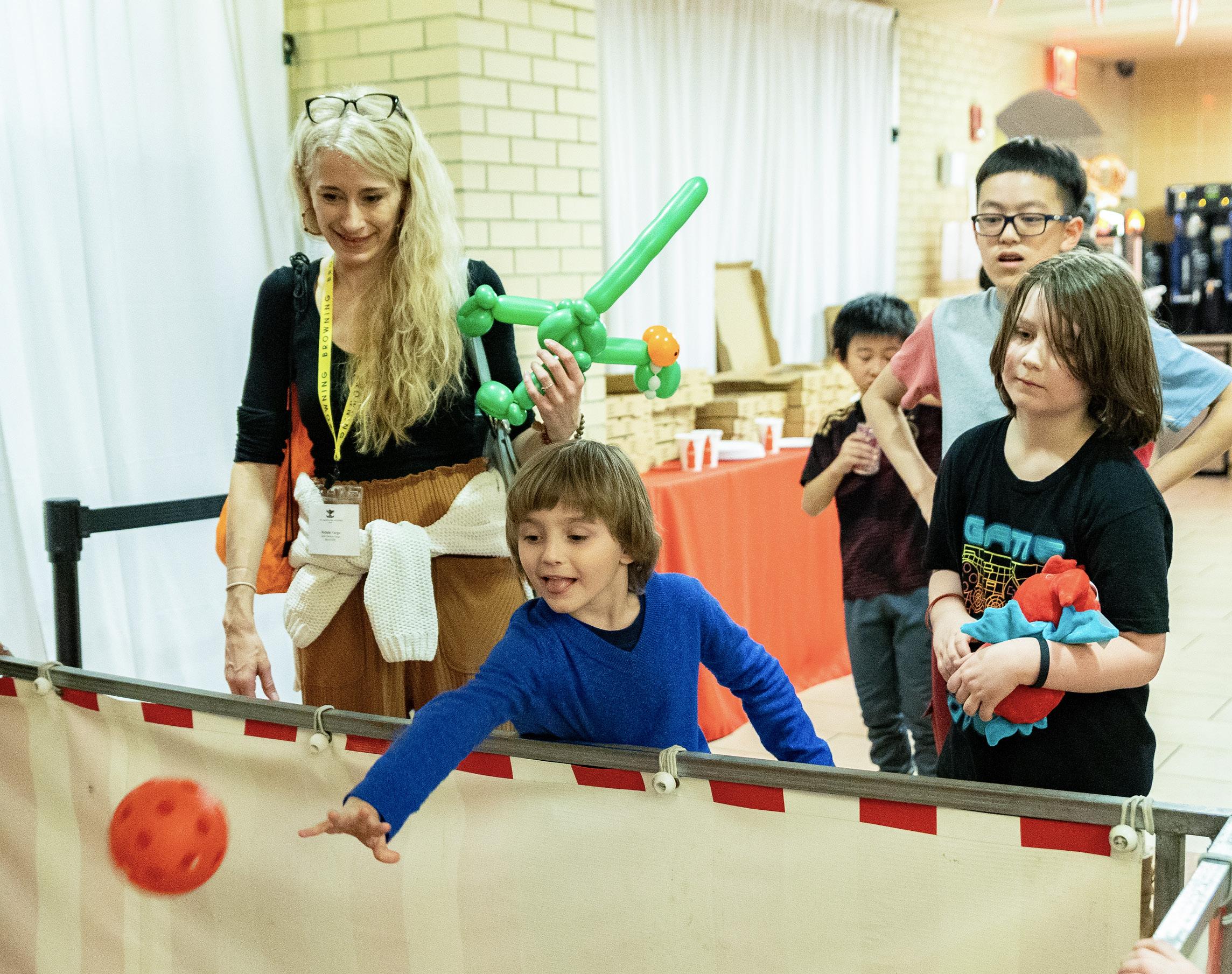

As we continue our series of Buzzer issues centered on the theme of Browning’s four core values, we have chosen this spring to focus on purpose. In a world that seems increasingly volatile, a sense of purpose provides a solid foundation from which one can not only relate to the world, but seek to change it for the better.
Purpose, at its core, is an inner commitment that is outward-facing—an invitation to connect with others—and thereby also a pathway to finding deeper meaning within oneself and the joy that brings. At Browning, we seek to instill in boys the sorts of skills and dispositions that enhance their capacity for academic achievement, and also give them a greater sense of how that achievement can be applied in the real world. As a relational school, we believe that students’ careful study and modeling of appropriate adult behavior can nurture and strengthen these dispositions in a systematic, intentional way.
To be sure, finding purpose is not an easy task in a society that seems to value “hot takes” over self-reflection, and which is driven to distraction by social media and its incessant demand to compare ourselves to others, often in service of acquiring luxury items to raise our status. The steadfastness to pursue purpose requires that boys ignore some of the more pernicious forces of popular culture and instead pay attention to an inner compass, one that directs them towards activities that may not lead them down the same road as the crowd. It can require ignoring those who say that a problem is too large for one person to make a difference, or refusing to see an education as merely the next transactional step on the ladder to career success.
We want every Browning boy to be successful, of course, but we also want him to appreciate that lasting feelings of success so often involve having a positive impact on our challenging world. A great deal of the angst that some boys experience today is rooted in a feeling of not measuring up in a frenzied race to the top that leaves them feeling exhausted and empty. What if the race, instead, was an inspiring walk among others who are asking meaningful questions about what has value in their lives, and how their legacies will be shaped by living those values? We know that young people commonly dream of building a world that is better than the one they will inherit—but too often, those dreams are held back by fear, insecurity, and an inability to imagine and act beyond what they may have already seen. We want our boys to retain that dream, to understand that this world needs more men of purpose, and to recognize that they have what it takes to be those men.

John Botti, Ph.D. Head of School
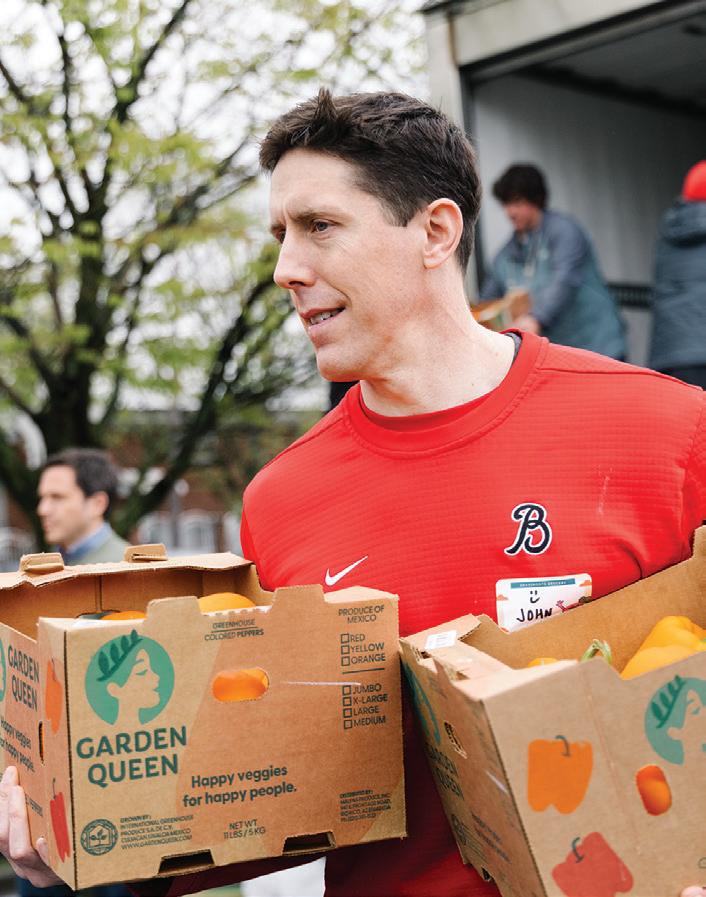
Dr. Botti volunteering at a Grassroots Grocery day of impact.
Read Dr. Botti’s Margin Notes blog at browning.edu/head-of-school.
At Browning, we seek to instill in boys the sorts of skills and dispositions that enhance their capacity for academic achievement, and also give them a greater sense of how that achievement can be applied in the real world.

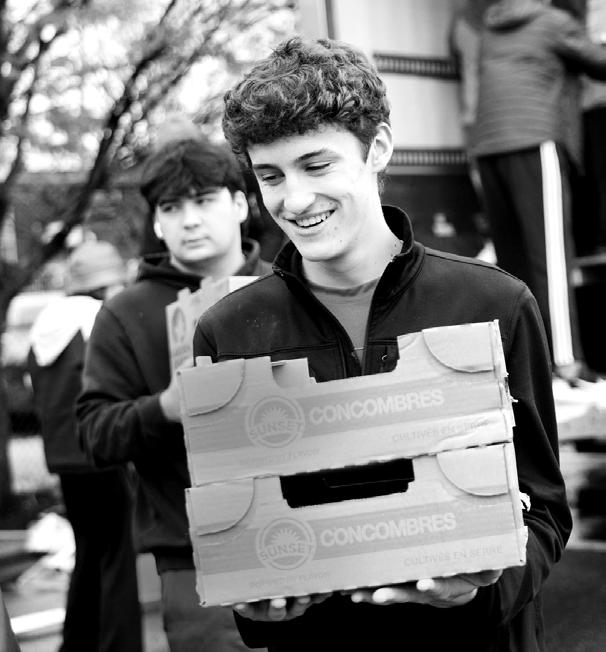
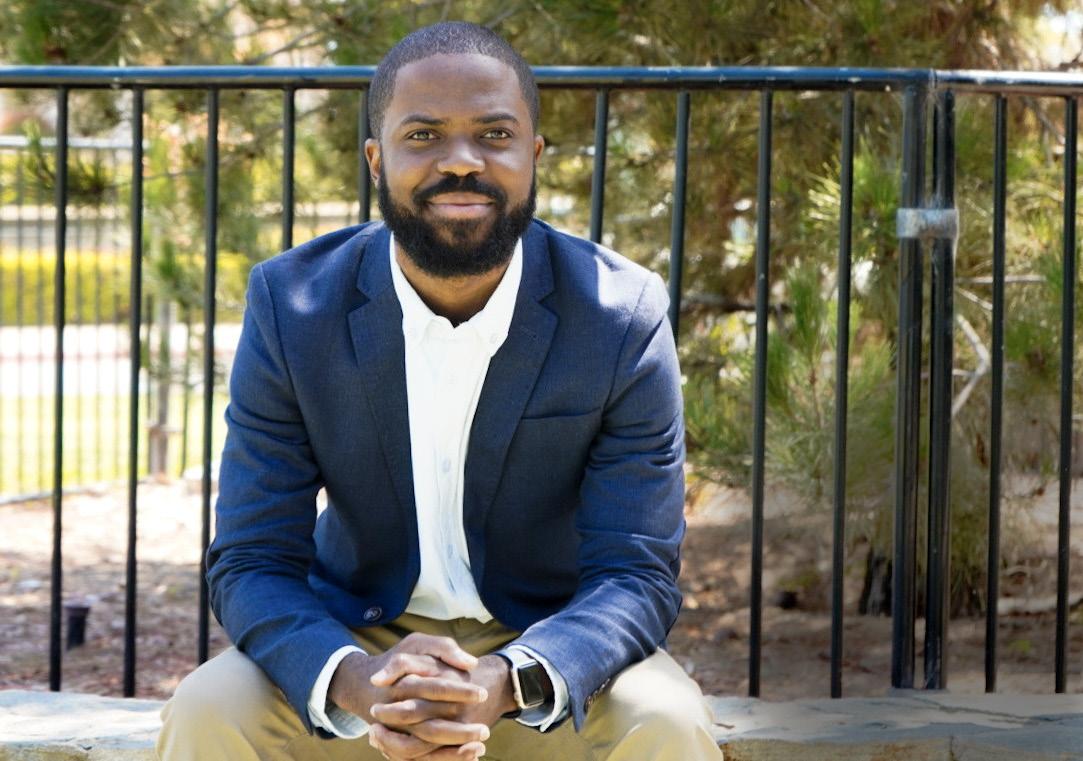
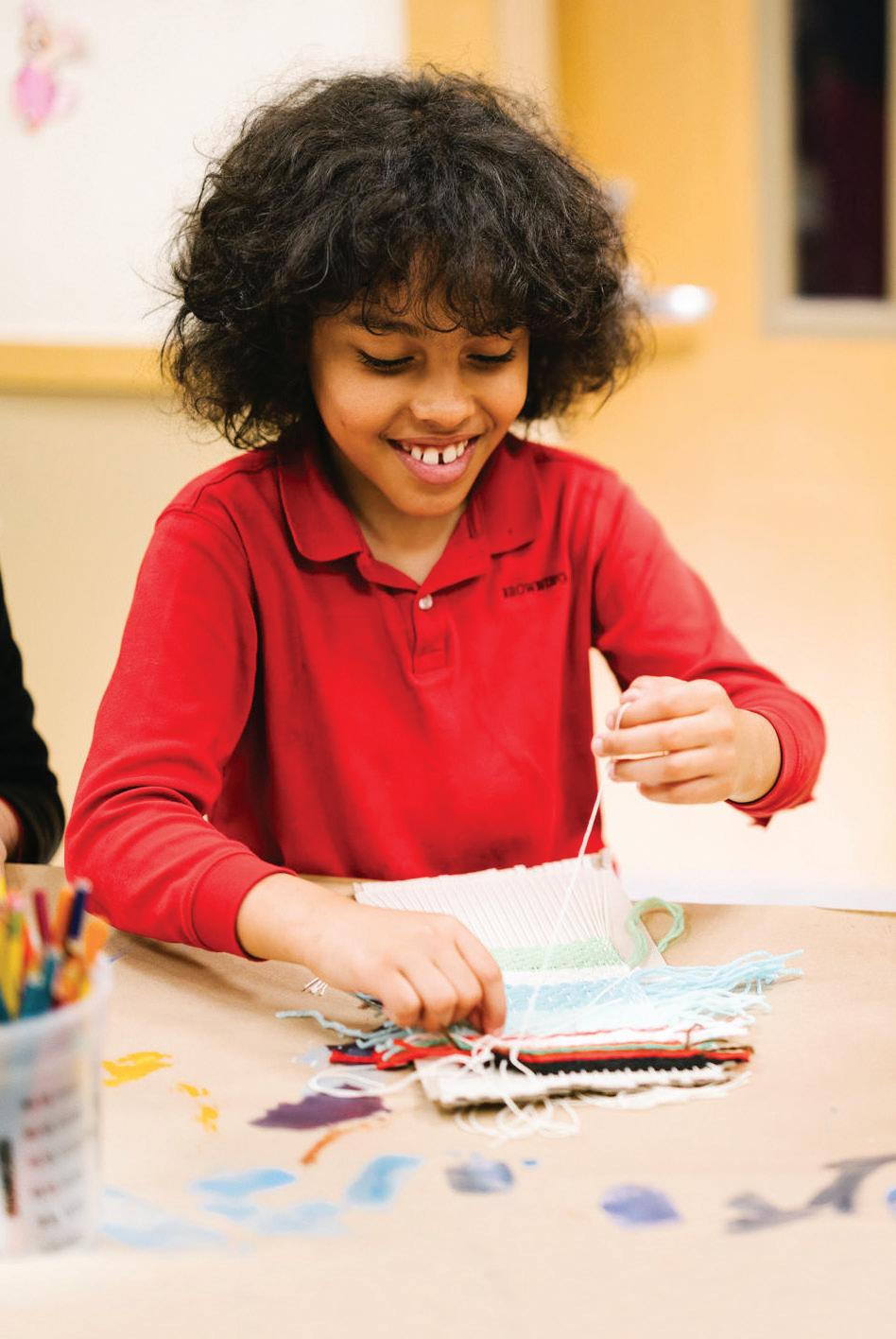

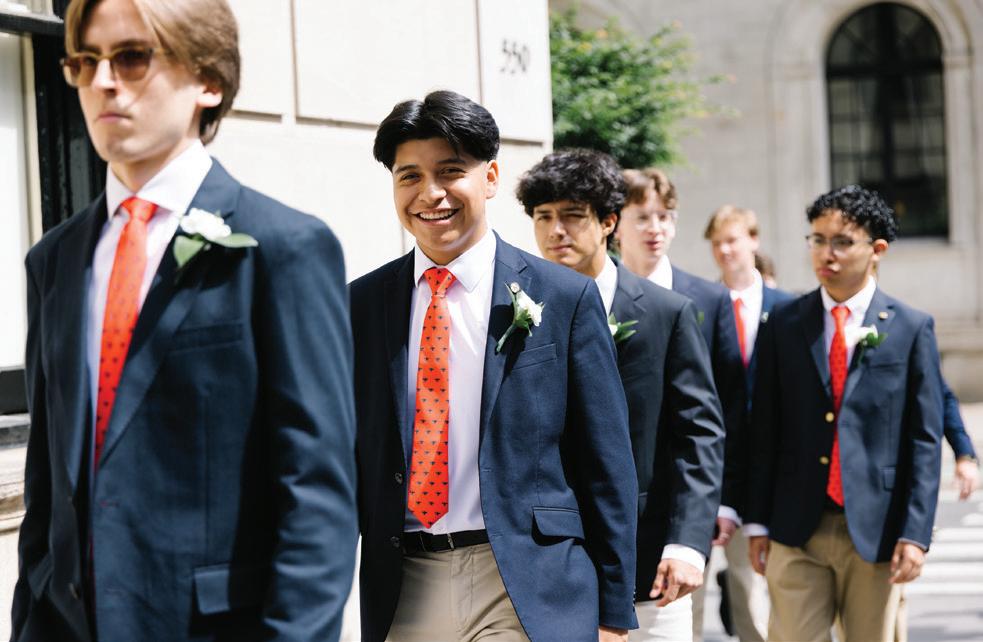

The Browning School fosters growth of courageous and compassionate men of intellect and integrity who aspire to contribute meaningfully to our world.
The Browning gentleman develops amid a community that upholds these values…
We speak the truth, act with integrity and take responsibility for our actions.
We honor and celebrate the dignity of all people and support the power of a diverse, inclusive and welcoming community.
We encourage and celebrate open-minded inquiry about our world and the perspectives of those around us.
We believe that education encourages exploration and discovery in pursuit of meaning and enduring fulfillment.
The Browning School strives to create a diverse community in which all members are safe, respected and valued. We believe that in actively promoting a diverse learning environment, we are fostering intellectual, social and emotional growth for all. Recognizing and pursuing diversity, however, are not enough; we seek to transcend mere tolerance of differences and aspire to a celebration of the varied appearances, abilities, perspectives and values that characterize our community.
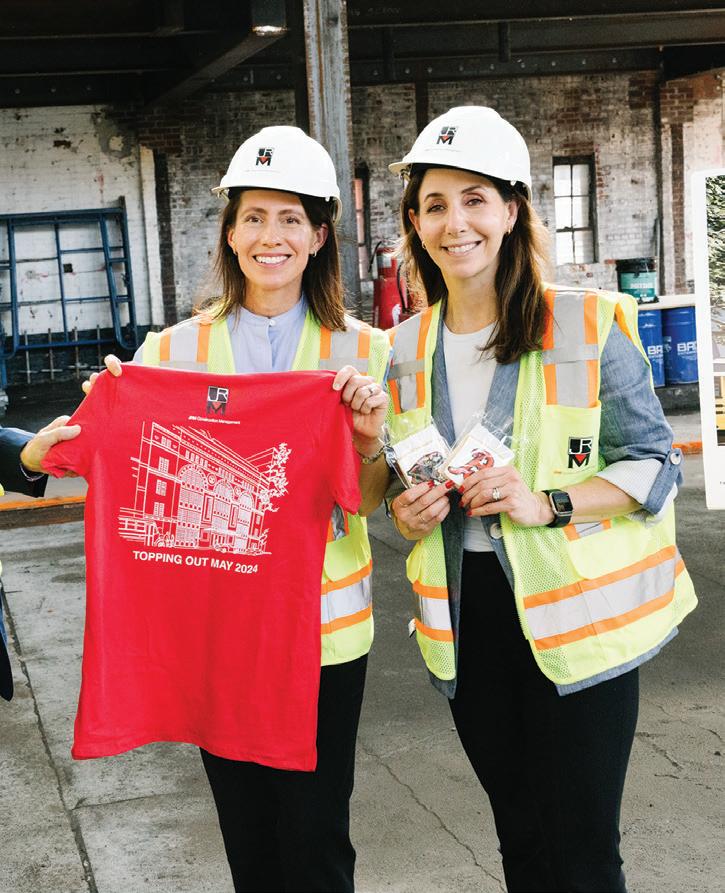
Construction is moving forward smoothly and on schedule at our new Upper School at 337 East 64th Street. Community members toured the site during spring hard-hat tours, while Campaign Co-Chairs gathered for the Topping Off Ceremony in May, a tradition marking the highest structural element placement. The new Upper School will open partially in spring 2025 and fully by the start of the 2025–2026 school year.


Our new Upper School takes shape; students journalists report the news in Lower School.

Visit
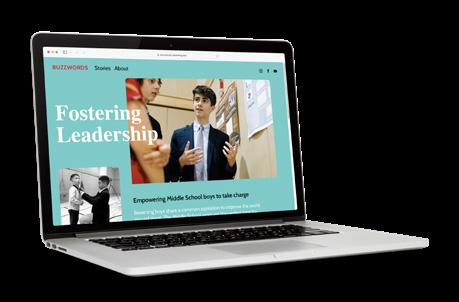
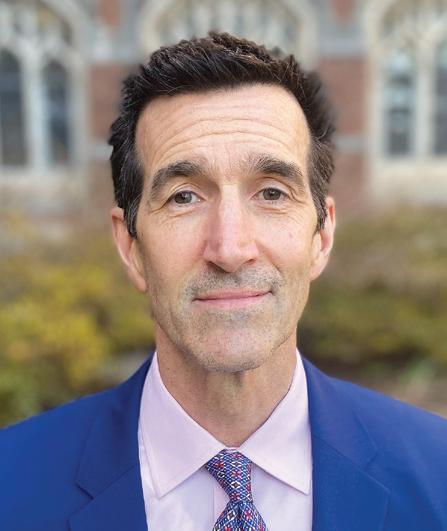
We are pleased to announce the appointment of Jon Willson as Browning’s new Head of Upper School. Mr. Willson, who began his term on July 1, was formerly at the Taft School in Watertown, CT, where he has taught since 1996.
In 2016, he became the first Director of Teaching and Learning at Taft’s Moorhead Academic Center, overseeing resources for faculty, students, and parents. Prior to this, he served as Taft’s Dean of Academic Affairs for eight years. Additionally, from 2018 to 2022, Mr. Willson held the position of Assistant Director at Taft’s Global Leadership Institute, fostering shared learning and leadership experiences among students from Taft and Waterbury public schools.
Mr. Willson’s appointment at Browning marks a return to New York City as he started his teaching career at Brooklyn Technical High School. A graduate of the Taft School, he holds an undergraduate degree from Amherst College and a master’s degree in history from Brooklyn College.
When he’s not nurturing young minds, Grade 1 Teacher
Alex Falberg is a member of PigPen Theatre Co., a seven-man indie folk collective that wrote the music and lyrics for Water for Elephants, which premiered on Broadway last spring! The New York Times hailed the Tony-nominated show’s music as “apt” and “rousing,” praising PigPen’s ability to infuse trenchant lyrics with power and emotion.

Mr. Falberg shared how the core themes of the narrative align with Browning’s values of purpose and dignity: “The show is an epic tale of love and courage, propelled by characters pursuing meaning while reclaiming their dignity amid cruelty and despair.”
Boys make headlines with debut issue of The First Grade Gazette
In their unit exploring the fundamentals of paragraph writing, the Grade 1 boys used the learning vehicle of a classroom newspaper to delve into topics they deemed pertinent to our community. During the planning phase, the boys immersed themselves in the world of newspapers and magazines, as well as gained insight from Ninis T. ’28, a Grade 8 writer who shared his journey to become a journalist for Time for Kids
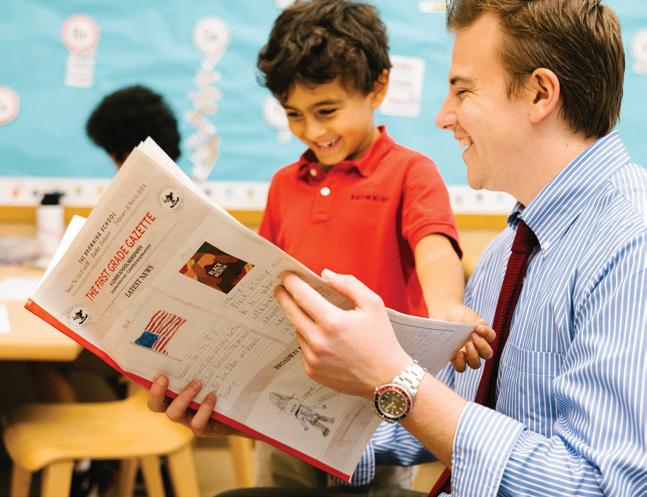
“Not only did this immersive experience enrich the learning journey of the boys, but the Gazette was a huge hit with the community,” Grade 1 Teacher Julianne Rowland shared.
Editors
Jan Abernathy, Chief Communications Officer
Jeremy Katz ’04, Director of Communications
Editorial Contributors
John Botti, Head of School
John Morin, Director of Alumni Affairs and Special Events
Eric Ogden, Head of Lower School
Francesca Ryan, Senior Director of Major Gifts
Andrew West ’92, Director of Athletics
Contributing Photographers
Coffee Pond Photography
CoverD Photography
Asher Dorlester
Brandon Hill
Da Ping Luo
Sanford Pelz ’71
Tommy Tang
Design by Michael Wiemeyer / Designlounge, NY.
The Buzzer is published twice a year by The Browning School. Submissions may be sent to Jeremy Katz at jkatz@browning.edu. All submissions may be edited for length and clarity.
Follow Us
Visit our website: browning.edu
Board of Trustees 2024–2025
Valda M. Witt, President
Andrew E. Vogel, Vice President
Jeffrey M. Landes ’83, Secretary
Raul Pineda, Treasurer
John M. Botti, Head of School
Sarah H. McGee, President, Parents Association
Alexander Perruzzi, Vice President, Parents Association
Stevie Rachmuth ’10, President, Alumni Association
Maegan Boger
Hayley Broadbent
Sandra Buergi
Mitchell Bunnell
George Cabrera, III ’98
Sandrine A. Cousquer-Okasmaa
Nathaniel X. Garcia ’06
Christopher L. Hartmann
Carolyn Lamphier
John M. Liftin
Betty Noel-Pierre
Nazmi Oztanir
Manish S. Parikh
Jerry C. Pi ’95
Ian J. Sandler
Jodi J. Schwartz
Martin Small
Graig J. Springer ’98
Angelos M. Stergiou
Vance Wilson
Sara B. Zablotney
James S. Chanos, Honorary Trustee
Stuart J. Ellman, Honorary Trustee
Allan L. Gropper, Honorary Trustee

By Jeremy Katz ’04 Director of Communications
At Browning, we ask, “Who do you want your boy to be?”
As a relational school, we emphasize practical skills and attitudes that go beyond academic success—creating and supporting intentional programming, which guides boys to lead lives that exemplify our four core values of honesty, dignity, curiosity, and purpose. There are many ways in which our value of purpose can be nurtured in our students, and this story illuminates some of them.
Boys focus on purpose in their Philosophical Thinking class, a Grade 9 elective.
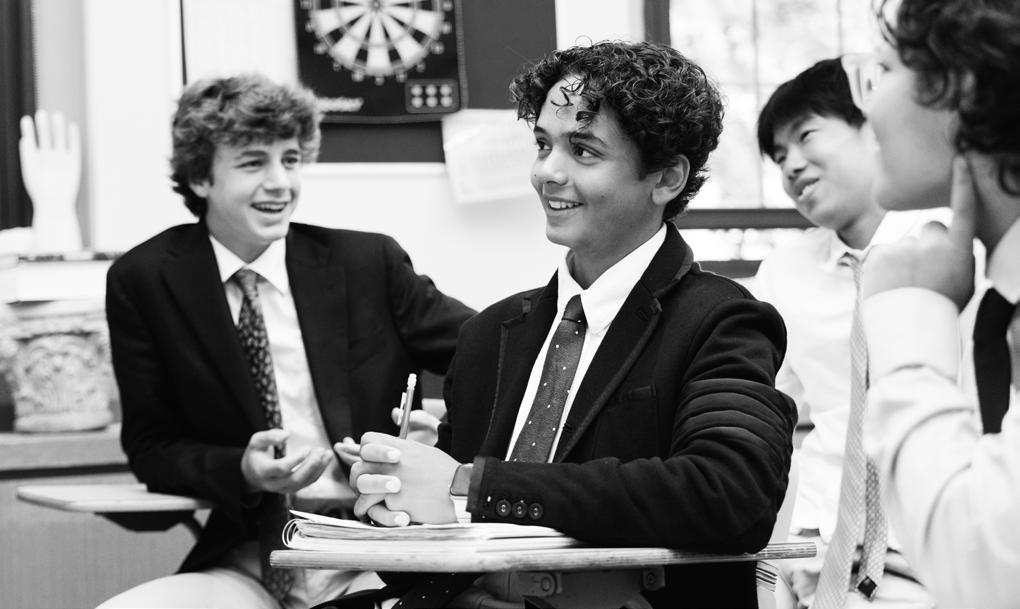
Seniors serve as role models and leaders for younger boys.

Affinity groups such as the African Diaspora help students connect over shared identities, fostering deeper appreciation of their backgrounds.
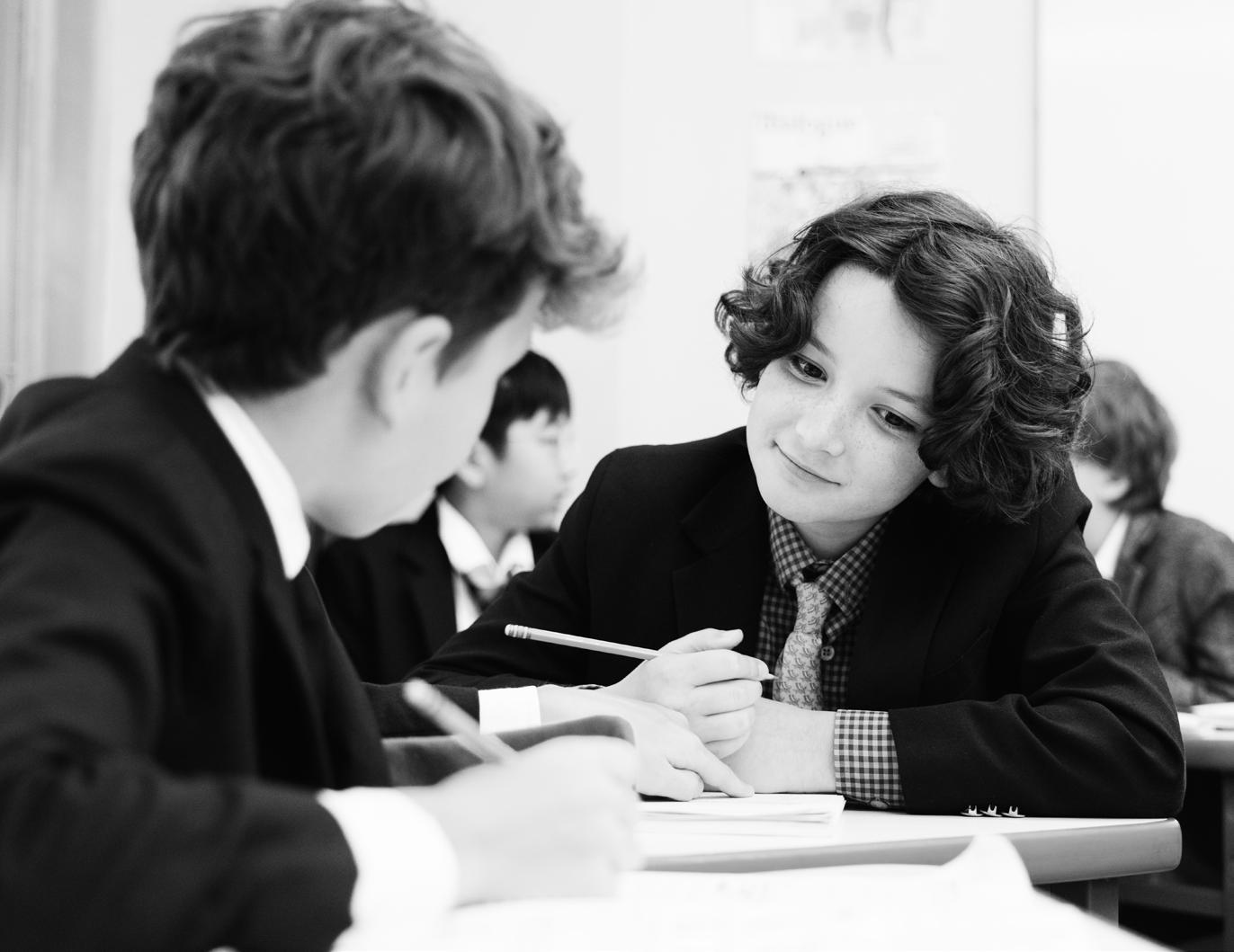
At Browning, we actively promote a focus on healthy masculinity as a core rationale for a boys’ school experience. We believe that there are essential skills and dispositions that can and must be taught, side by side with academic subjects, to help guide boys to self-discovery, meaningful relationships, and an understanding of the commitments they can make to themselves and others to create a well-lived life. Whether being ambassadors for the school with prospective families, creating fellowship with other students through affinity groups, or studying the ways in which masculinity is experienced, our students learn to lead purposeful lives that are grounded in empathy, connection, and service.
Boys’ education redefined
Modern Masculinities courses offered in Middle School provide structured skill building for boys to attain the tools necessary for building a more purposeful and satisfying life. Grade 5’s Radical
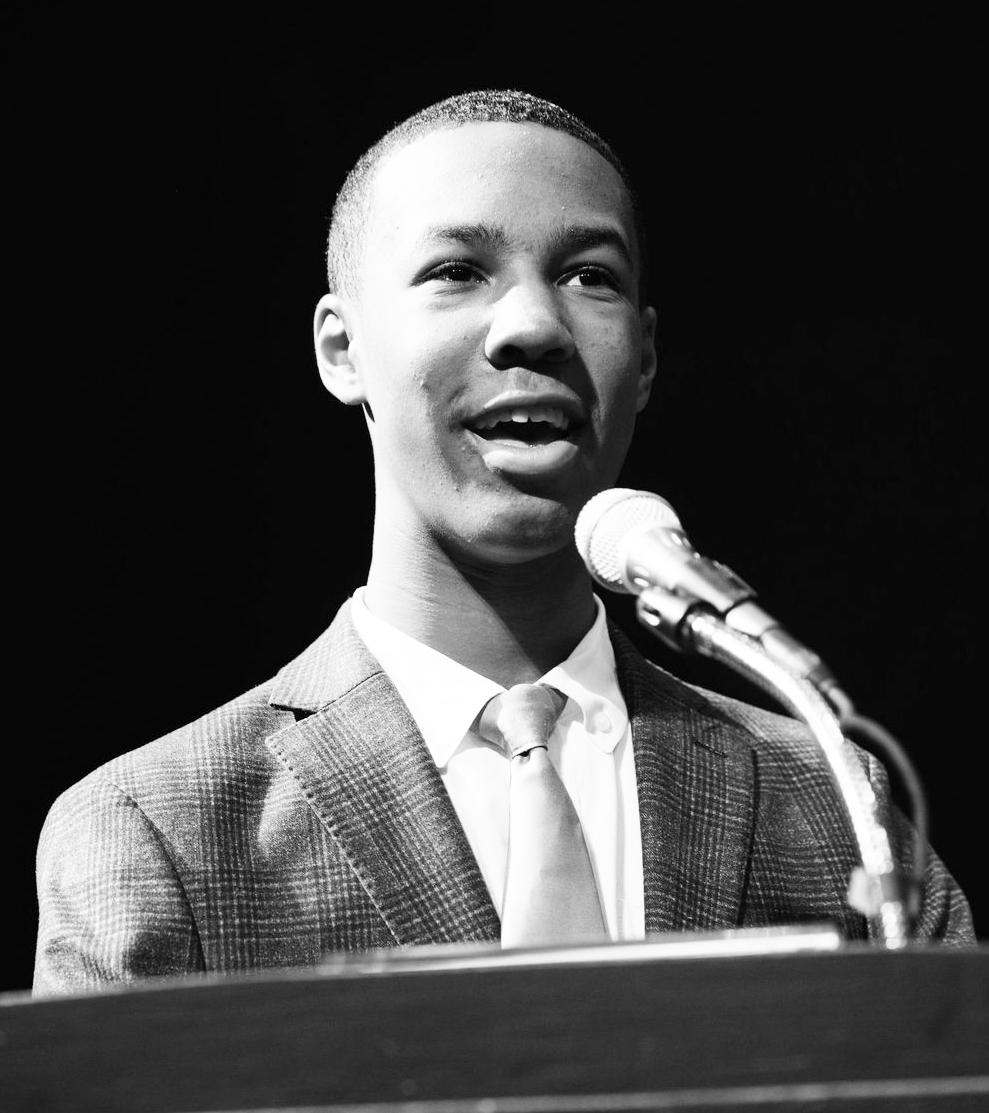
Empathy class, as its name implies, is dedicated to helping boys value understanding and sharing their feelings while teaching them how to be actively empathetic in their daily lives. After distinguishing between sympathy and empathy, the boys learn deep listening skills through interactive exercises and discussions designed to foster understanding and connection with others’ emotions and perspectives. Teaching the boys to support others through empathy and address impactful causes even inspired a program to limit food waste this year (sidebar at right for details).
“We can build empathy by being deliberate and thoughtful, consciously putting ourselves in others’ shoes,” Dean of Middle School Student Life Megan Ryan says. “Having healthy connections with other people is fundamentally built into purpose. You can’t have purpose if it’s not in service to others in some way.”
Expanding on the fifth grade curriculum, the Grade 6 Panthers Connect course explores how appreciating and supporting connections with others will create good men.
“If purpose involves pursuing personal meaning while benefiting others, it inherently involves connection,” Ms. Ryan says, “We explore the links between connection and wellness, friendship skills, the impact of gender, solitude versus loneliness, and barriers to connection.”
After exploring why connection matters as well as the forces that hinder or diminish it, Grade 6 engages in a “social school” project to construct physical models of spaces at Browning that could be redesigned to maximize
human connection. Meeting with professional architects and designers to study basic notions of architecture, the boys engage in a hands-on design process that takes into account Browning’s core values. They render the building’s elevation and lobby, focusing on how these areas welcome visitors and foster connections.
Students also design one floor, considering the spaces, services, and furniture that best meet the needs of the entire community.
Field trips offer our boys the opportunity to expand their perspective, and explore passions that may lead to purpose, as well as foster stronger community bonds. Overnight trips begin in Middle School, where boys delve into immersive experiences like exploring Mystic Seaport Museum in CT and discovering the history of our nation’s capitol. In Upper School, boys travel to The Island School in the Bahamas to develop a global perspective and ecological awareness, and the College Trip tour for
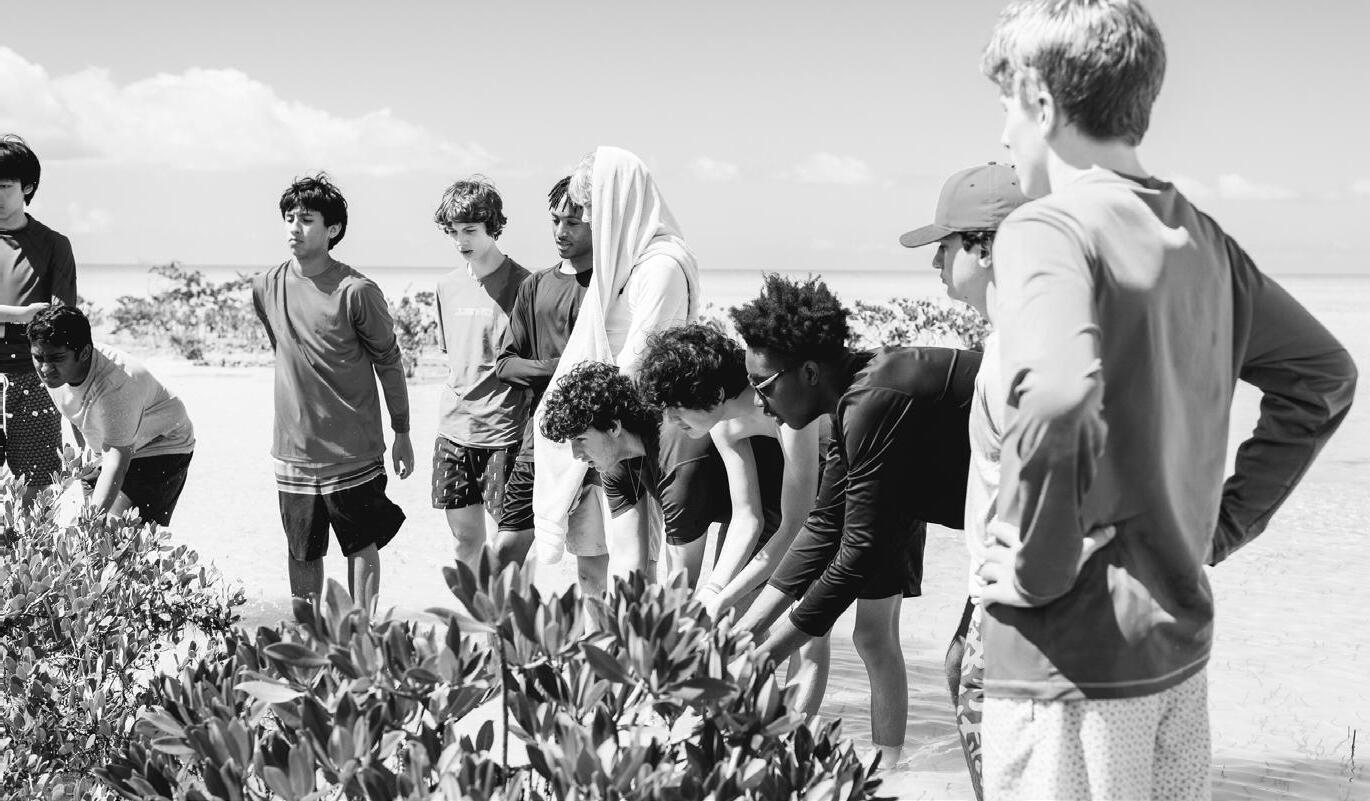
juniors and seniors allows those students to think critically about what they want out of their higher education experience.
“Trips can be personal, transformative experiences,” Head of Middle School Ophelia Ma says. “When people go through it together, a trip has the power to really bring them together.”
This year, Grade 6 began a new tradition with a visit to China Folk House Retreat in WV, enriching their study of ancient China in history class and strengthening their camaraderie.
“The most powerful trips always have deep curricular roots,” Ms. Ma says. “As students
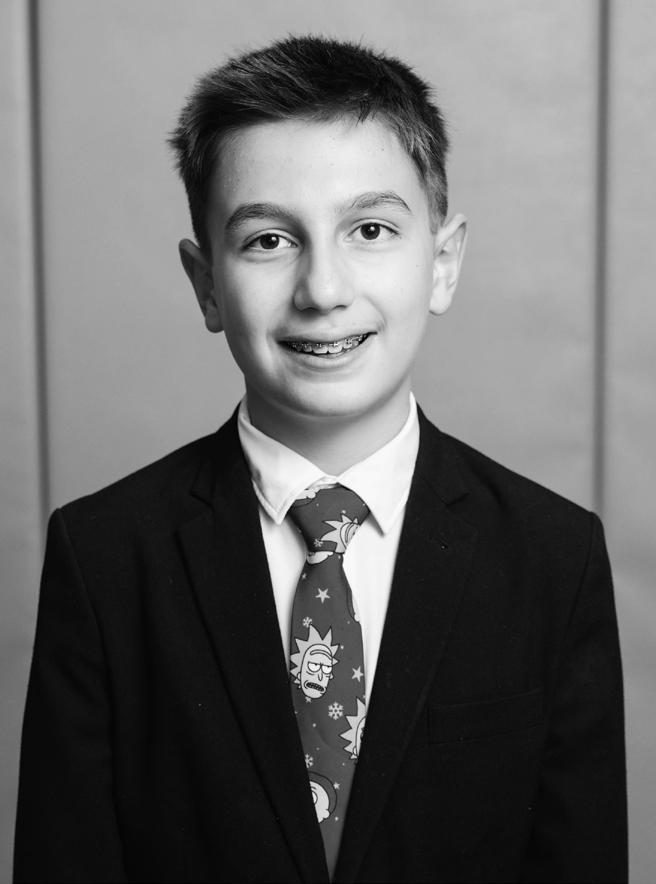
Ethan S. ’30 and his classmates have helped launch a food recovery program aimed at reducing Browning’s food waste and providing meals to those in need. The boys’ mission is to combat food waste, by partnering with social service agencies Grassroots Grocery and Fresh Opportunities, as well as Marymount School and Nightingale-Bamford School, to tackle one meal at a time. Ethan shares more:
Tell me how you became engaged in this social impact project.
Our Radical Empathy course last year taught my classmates to be actively empathetic in our daily lives, leading to the creation of this nonprofit that addresses a primary social cause in
New York. This laid the groundwork to partner with other student-led food recovery programs across the city.
How did your experiences at Browning contribute to the start of this project?
At Browning, we believe that education fosters exploration and discovery, guiding us towards meaning and lasting fulfillment, so I would say that our core values have significantly influenced me, particularly the emphasis on “purpose.”
What insights have you gained about yourself through this work?
The program was a lot of fun, and meeting like-minded people was a bonus. I also discovered my passion for helping others.
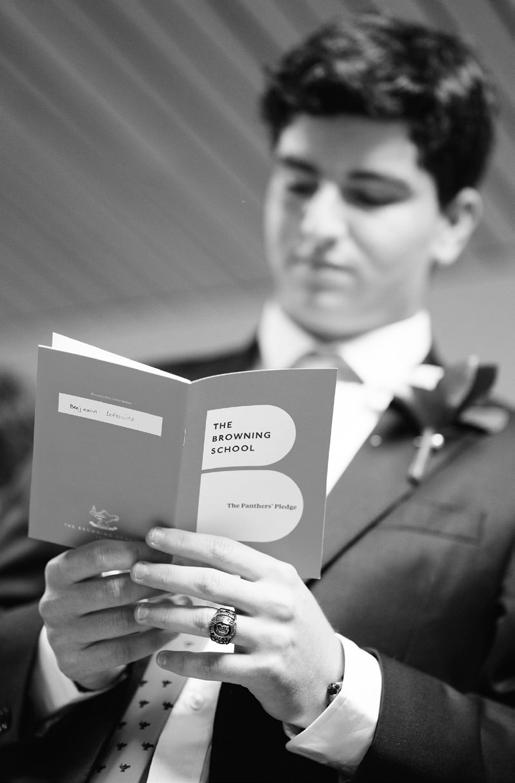
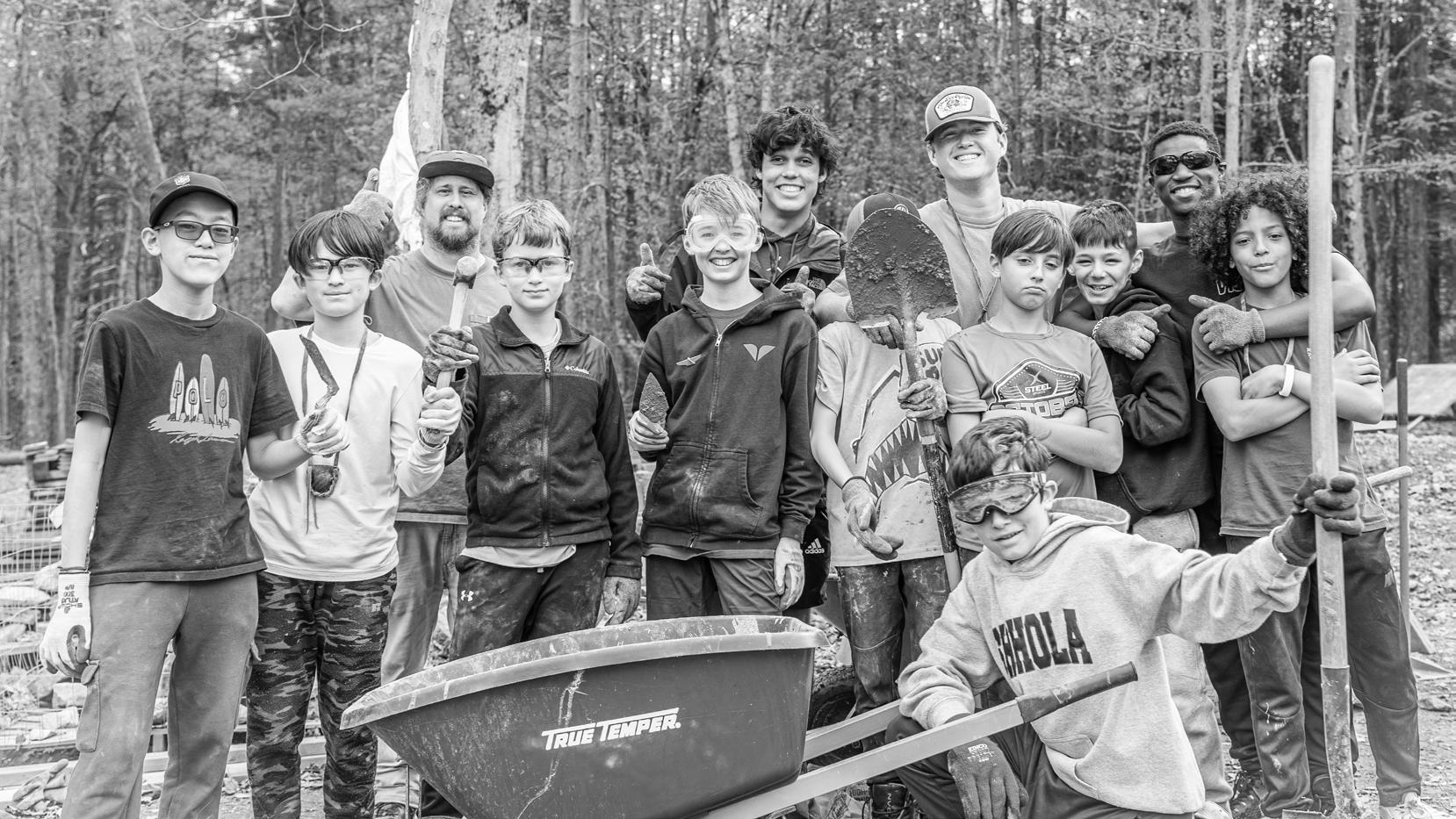
spent time at the wildnerness preserve, they seamlessly integrated classroom knowledge with real-world exploration, delving into Chinese culture and cosmology through hands-on investigations of architecture, folk art, and agriculture. They felt purposeful contributing to the cultural reserve through building and gardening, culminating in a virtual museum that will serve as a global student resource hub.”
To expand opportunities for cross-divisional mentorship, members of the senior class served as counselors for the trip. This was the first time that older students were given this role on an overnight field trip.
“Having seniors join the Grade 6 trip as counselors creates a unique opportunity for
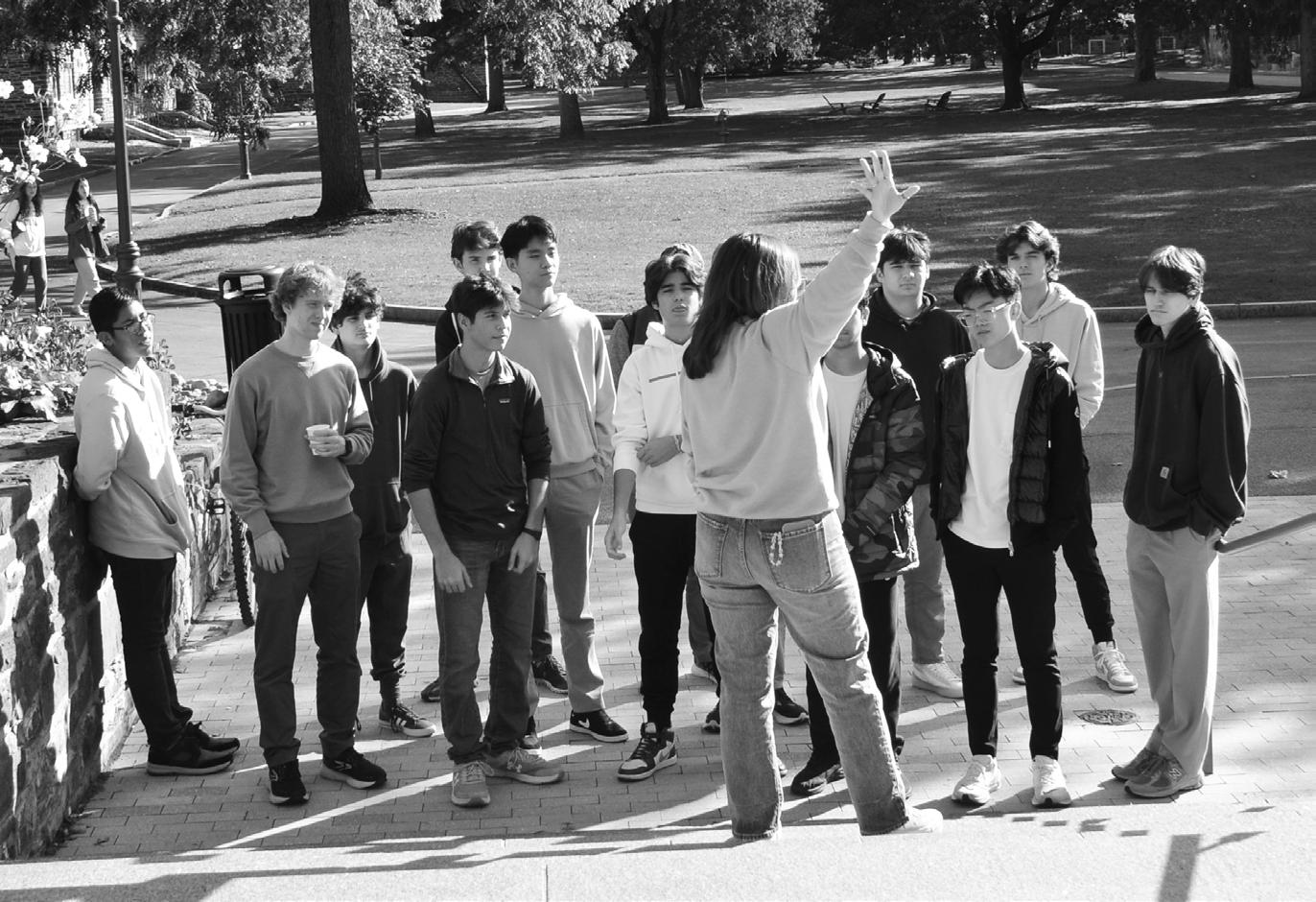
community building,” Ms. Ma says. “As the older students model what it means to be a Browning boy, they foster a sense of belonging and care for the younger boys. Living together in the cabins, the seniors offered guidance and companionship, transforming a simple trip into a memorable experience that highlighted the essence of Browning’s values.”
Throughout the Middle and Upper School experience, boys discover their purpose through service by actively planning programming that fosters community and belonging. The Upper School Student Council, led by senior co-presidents and representatives from each grade, cultivates community bonding through diverse initiatives including meaningful assemblies, birthday acknowledgments, and spirit weeks.
“We’re always striving to support each other, and the Student Council is a direct way to address our fellow students’ wants and needs,” Chase K. ’25, incoming co-president, says. “As a representative, I feel that our agency and responsibility stems from our tight-knit community and a desire to help friends.”
Students can become involved in the Student Council beginning in Middle School, providing another pathway for committed students to advance ideas for the division’s benefit, while the Assembly Club helps manage biweekly programming for these community-
continued on page 12
By Eric Ogden
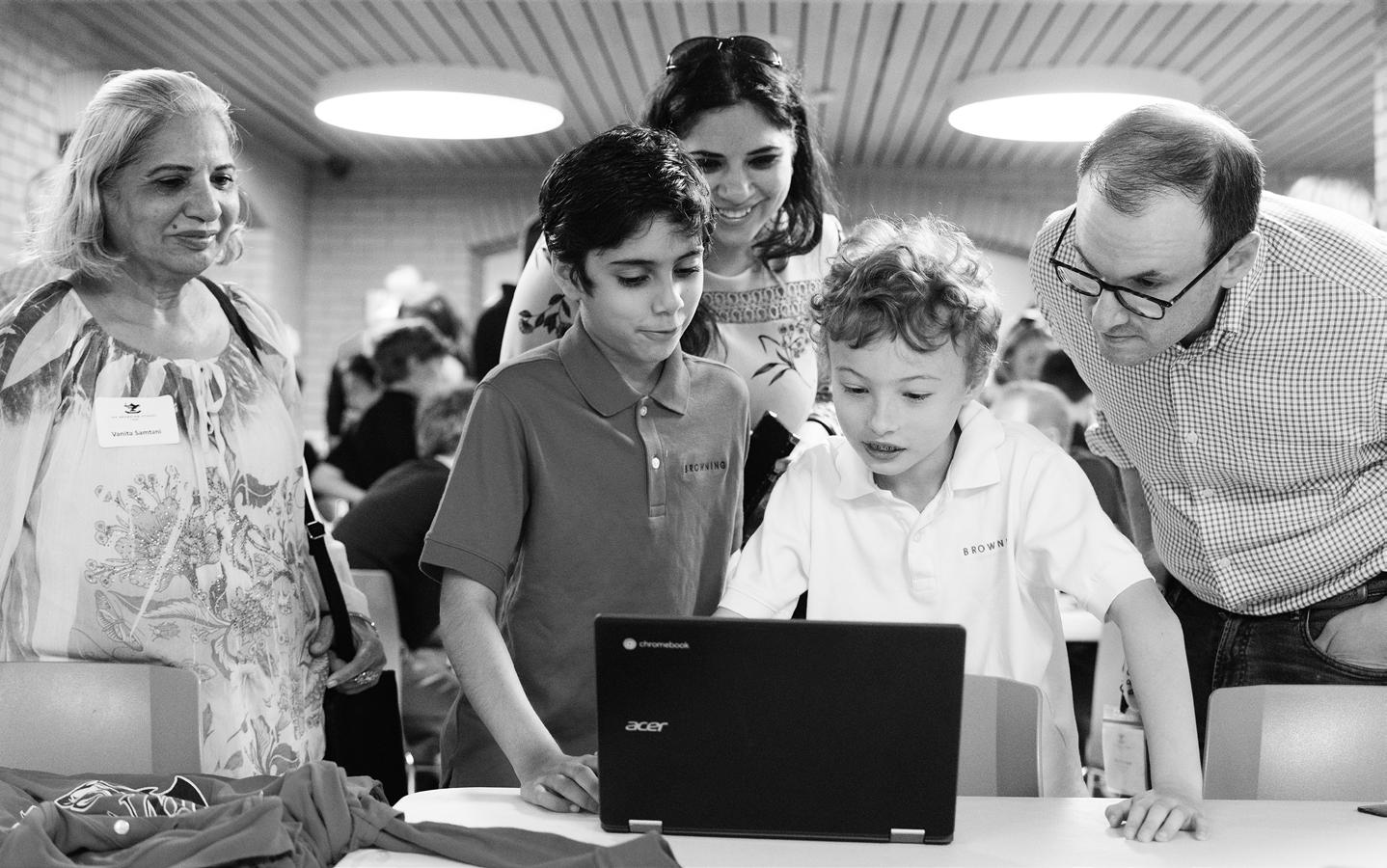
Purpose is a defining characteristic of a Browning education, but it’s also a truly complex and somewhat abstract concept for our youngest students. In our Lower School, we help boys understand purpose by defining the concept as the act of discovering meaning in their lives. I sometimes think of the Lower School years as a giant buffet of options to explore their passions, whether it’s through chess, arts, writing, literature, sports, math, or science. The possibilities are endless, and as teachers, we delight in guiding them through this journey each day.
In recent years, we’ve focused on infusing our academic program with deeper purpose. One way in which to accomplish this is through Celebrations of Learning. Inspired by Ron Berger’s work in Leaders of Their Own Learning, Celebrations of Learning are integral to our Target-Focused Teaching in Lower
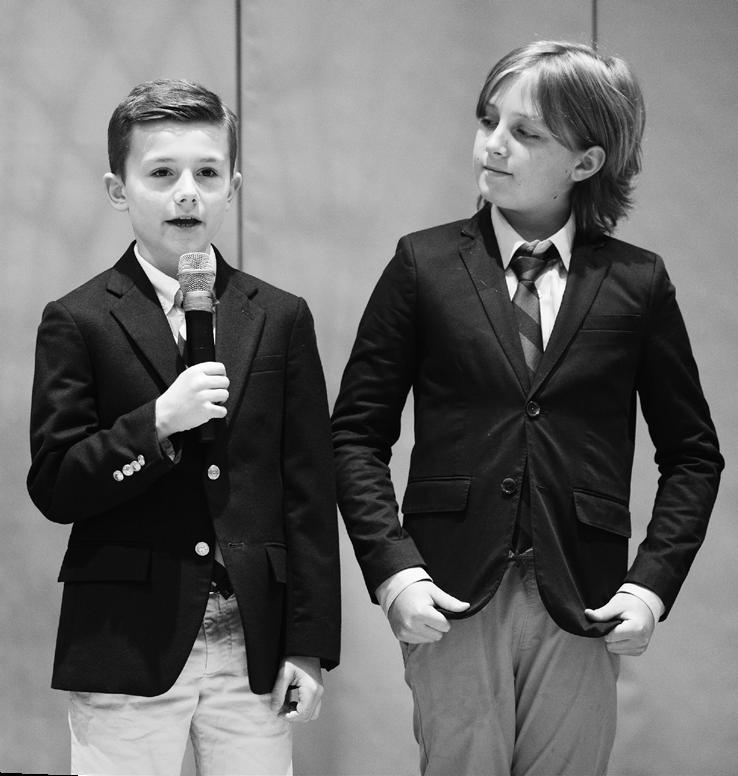
School. These events provide boys with opportunities to showcase their mastery of learning targets to a real audience, fostering a sense of purpose in their learning journey. Berger emphasizes that presenting work to an authentic audience elevates expectations and commitment to producing high-quality products.
Celebrations of Learning tap into the concept of teaching with transitivity, which is championed by the research of Michael Reichert and Richard Hawley in Reaching Boys, Teaching Boys. This approach involves elements like drama, presentation, storytelling, and role-play, enriching the academic curriculum and helping students find meaning and purpose in their school experiences.
These Celebrations have taken on a host of forms in our Lower School this year. Kindergarteners hosted math game sessions for families. Grade 1 boys published The First Grade Gazette and shared it at a “Coffee and the News” morning event. Grade 2 boys wrote persuasive letters and mailed them. Grades 3 and 4 boys gave speeches to be delivered in front of guest judges at the Lyman B. Tobin Public Speaking Program and showcased innovations at the Invention Convention.
Through various events, our teachers help our boys find meaning in their learning beyond the classroom. By introducing an authentic audience and some transitivity, Lower School boys get the chance to explore purpose through their academic accomplishments, and have a great time learning along the way!
The Panther Games, an enduring tradition, unite students across divisions in spirited competition, fostering camaraderie and interaction.
building events. The Assembly Club members introduce guest speakers, encourage thoughtful community engagement, and use the Mood Meter to help their peers monitor their emotional well-being.
“This year’s student leadership has been impressively productive, standing out as one of the most effective I’ve ever seen in my career,” Ms. Ma says. “They’ve coordinated division events and holiday celebrations, and organized fundraisers that support social impact orga-
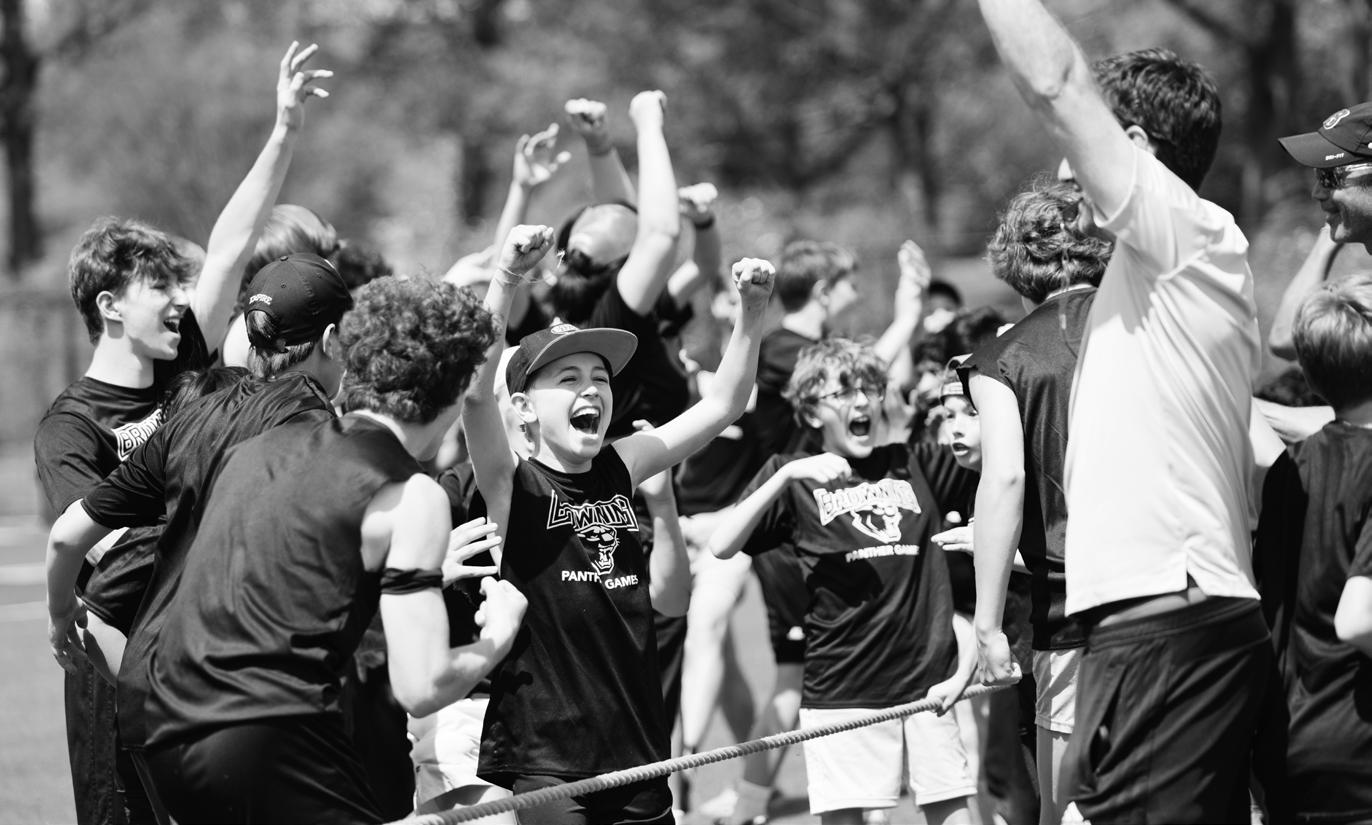
nizations. They even addressed accessibility concerns by ensuring proper distribution of left-handed desks in classrooms.”
Inspired by the team spirit and camaraderie of the Panther Games at Field Day—where students compete as part of four teams represented by Browning’s colors (red, black, white, and silver)—the Color Core Club extends this collaborative spirit beyond the sports field. “This initiative, led by students, seeks to enhance the Color Core experience beyond healthy competition to strengthen connections year after year,” Ms. Ryan says. “We’re exploring new avenues such as integrating public speaking contests, literary achievements, and musical performances into the Color Core framework.”
Juniors and seniors in the Key Society serve as Browning’s ambassador group, exemplifying its mission and core values. Selected in a competitive process, and trained rigorously, “they are vital in helping us recruit and enroll mission-aligned students and families,” Director of Admission Kelly West says.
Sharing their perspectives and articulating their experiences can be the difference maker, especially for families with older sons who are considering Middle and Upper School. Through
TODAY’S BOYS, MAKING AN IMPACT FOR TOMORROW:

Pierce W. ’25 has developed an awardwinning algorithm that surpasses the accuracy of human operators in predicting resource needs for 911 calls. The algorithm
could save $123 million annually by reducing unnecessary hospital transfers for mental health and substance use cases. Pierce shares more:
What motivated you to develop this program?
My experiences as an Emergency Medical Responder witnessing recurring mental health crises and the strain on emergency resources motivated me to explore AI solutions to optimize response, potentially mitigating the crisis and easing the burden on healthcare systems.
How did your experiences at Browning contribute to this project?
I opted for Browning’s Data Science track Certificate of Distinction, which aligned with
my interest in the EMS Incident Dispatch data set. My advisor, Dr. Ting, has consistently supported and encouraged my project, and facilitated participation in science fairs that provided valuable opportunities for sharing and learning.
What insights have you gained about yourself through your journey?
I’ve learned the importance of embracing uncertainty, overcoming failure, seeking help when needed, that tackling challenges is worthwhile, and about valuing the impact of individual contributions, regardless of age or skill set. We can all make a difference by figuring out how to act on a spark turning an idea into action to improve a system that could impact millions of people.
Key Society ambassadors share their personal Browning experiences to educate prospective families.
their experiences, the Key Society boys learn how to reflect thoughtfully on their time at Browning and showcase Browning in a way that goes beyond facts and figures to provide insight into how students lean into our mission.
Fostering belonging and building community
Affinity clubs provides students with an additional avenue to find purpose and take pride in their identities while providing support for others. These clubs, which encompass a wide range of identities, create a sense of belonging for students with similar backgrounds. They foster cultural exchange and shared experiences within the Browning community while interacting with similar groups across schools in the city.
“It’s basically kind of like a family,” Declan D. ’27, a Multicultural Club member, says. “We’re there for you, ready to help whenever you need it.”
These clubs also create bonds between younger and older students as they plan activities, discuss successes and challenges, and navigate the Browning experience.
“Affinity spaces allow our younger peers to understand that their identity is part of something bigger. We can help the younger kids appreciate that it’s a means of expressing pride in who they are and sharing that sense of self with others,” Pablo R. ’26, a La Sociedad Latino member, says.
“I feel a duty to guide younger affinity group members, especially those who are new to the school, to help them feel welcome and accepted in our community,” Daouda C. ’25, an African Diaspora affinity club member, says. “I want them to know they can always reach out to me for support.”
Over the year, each of the affinity clubs organizes events for members to celebrate their identities and connect with the wider community. La Sociedad Latina has hosted potluck game nights with students from across the city; the Jewish Alliance Group organized a Hanukkah party for the Browning community to come together; the Asian Affinity
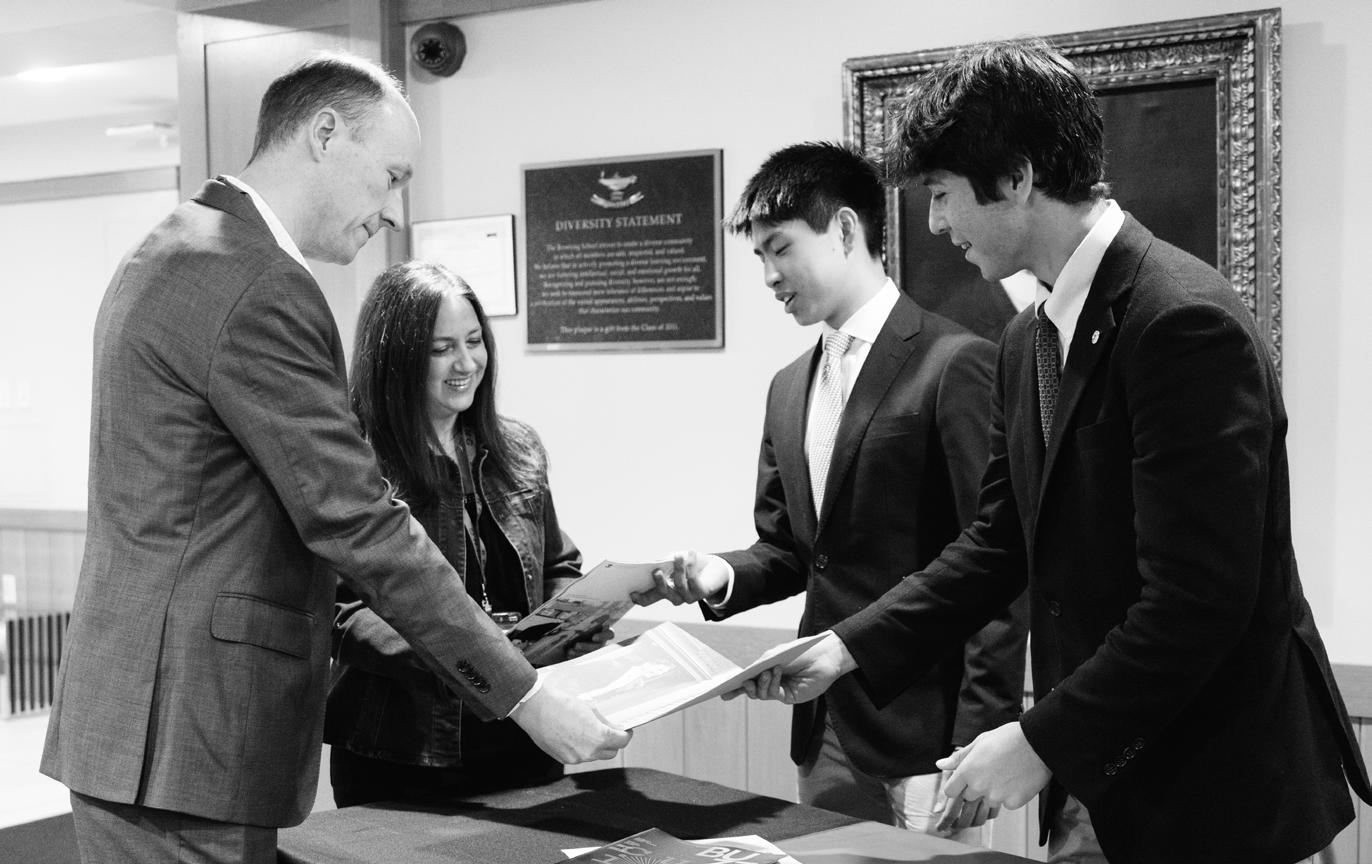
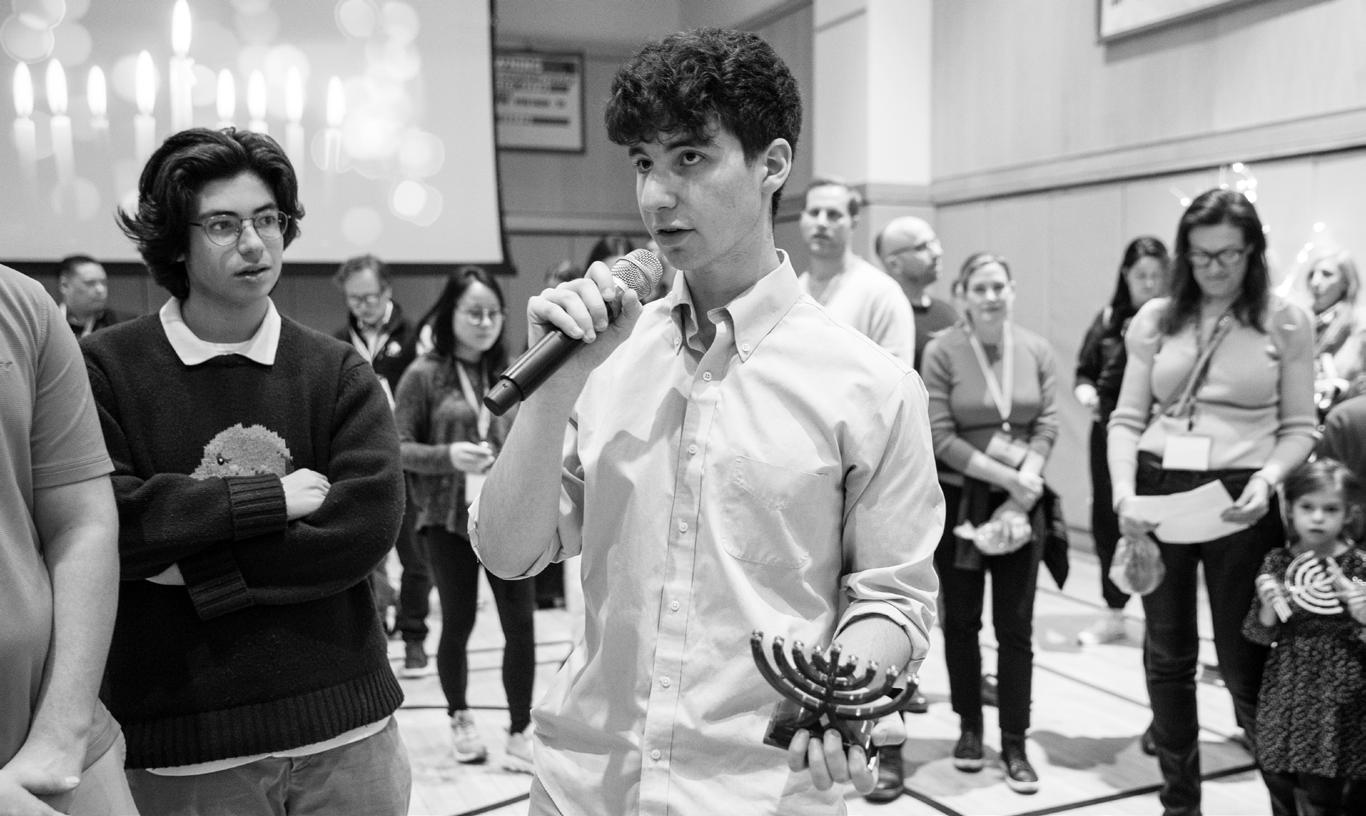
Group hosted a conference for New York City AAPI students and educators; and the African Diaspora connected with counterparts at other schools while exploring arts themes related to the members’ identities. Many of our affinity club members also attend the annual Student Diversity Leadership Conference, where they connect with students nationwide, share personal experiences, and collaborate on positive initiatives for their schools.
“Deeply integrating myself into Browning’s Latino affinity space has transformed my experience by opening up more opportunities to connect with like-minded peers and learn from their diverse perspectives,” Marcos I. ’25, a La Socieded Latina member, says.
“Through events and mentorship, we’ve connected with others and grown under the guidance of our leaders and advisors,” Daoda says. “Overall, we’ve learned how to become better people.”
By Jeremy Katz ’04 Director of Communications
Grade 12 students conclude their Browning journey with Senior Projects, volunteering at organizations including
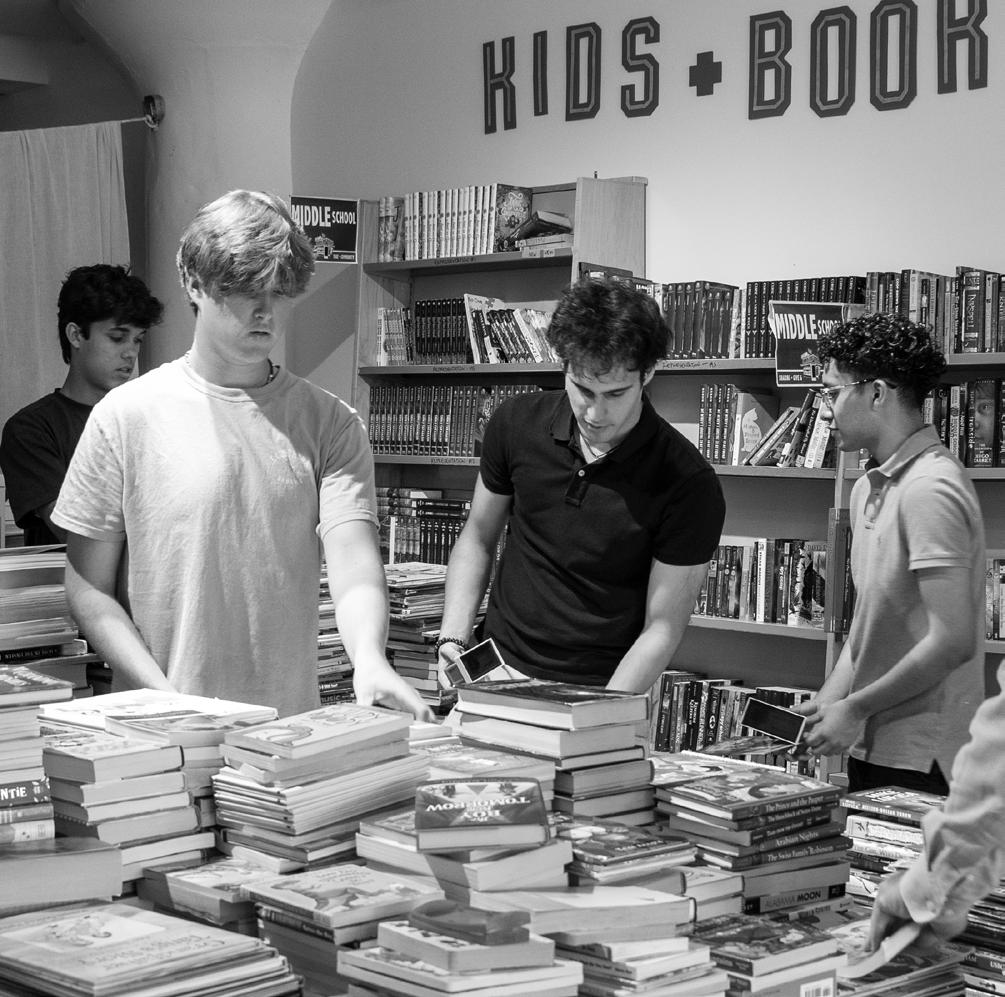
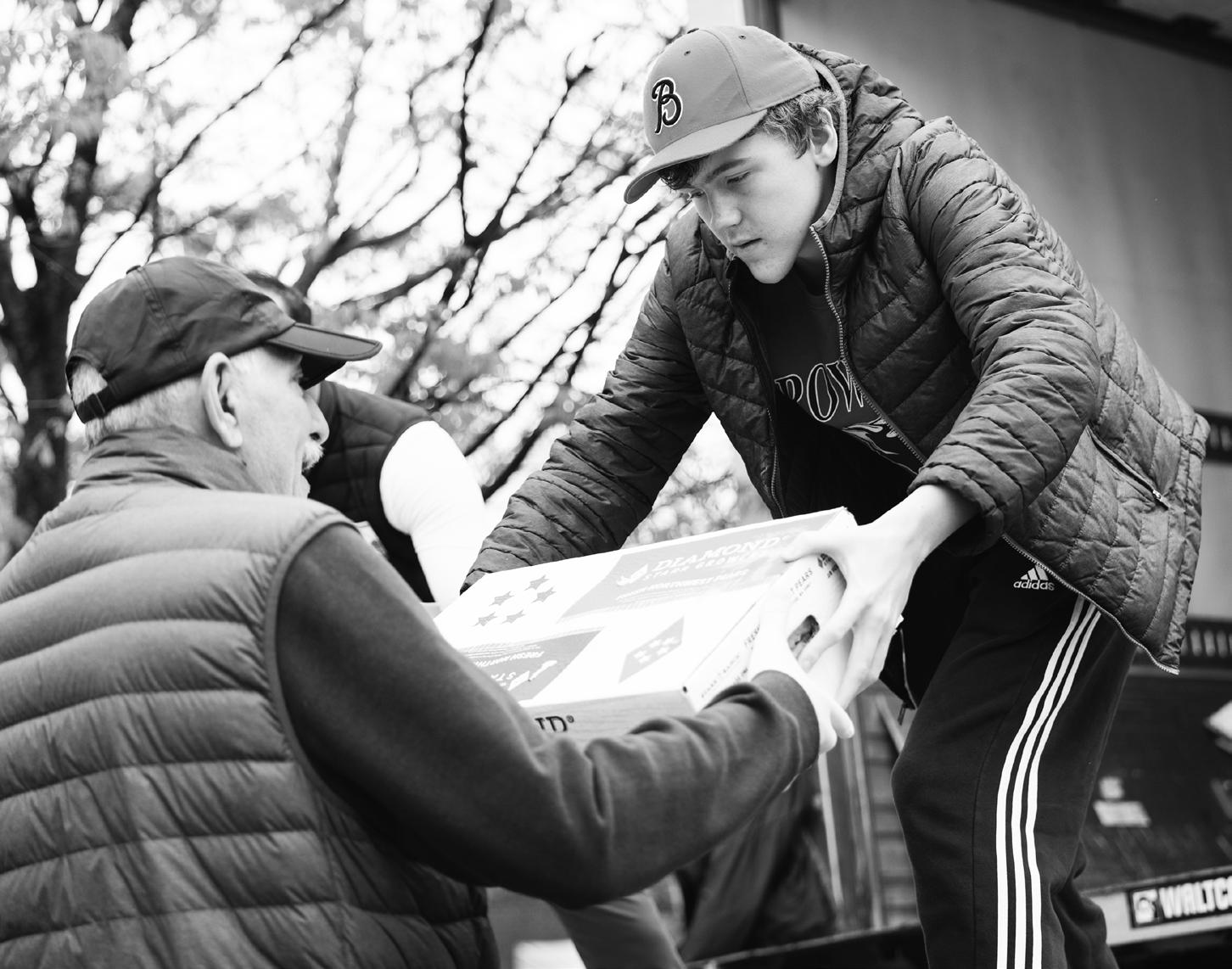
Browning’s social impact program goes beyond community service to value deep engagement with partner organizations like Grassroots Grocery, and serves as a model for purpose-driven involvement.
What keeps you up at night?”
This is the question that Naledi Sean Semela, Chief Equitable Practices Officer, poses to young minds, urging them to pinpoint issues that captivate their attention and inspire change. Instead of waiting until adulthood to act, he encourages them to contemplate what
they can do now as students. At Browning, boys dive into social impact through our integrated curriculum, events, and student groups, alongside a strengthened dedication to community outreach beyond the campus. We spoke with Mr. Semela about the transformative work our K–12 students are doing to foster social responsibility and make a difference.
Q. How do social impact programs differ from community service projects?
A. Previously, you’ve encountered the term “community service” predominantly in the context of brief, one-time activities within underserved neighborhoods or programs tailored for marginalized communities, such as soup kitchens. We know the value of relationships in all we do as a school. Our goal with social impact initiatives is sustained engagement, ensuring our students and families connect with communities over time, not just in one-off scenarios.
Social impact is intertwined with equitable practices because, we believe, it fosters a sense of belonging and shared experiences among our students. Rather than viewing it as one community aiding another in need, we aim for mutual growth and understanding. Our goal is to instill in students, starting with the Lower School, the capacity to find meaning and then enact their purpose accordingly.
Q. How has distinguishing between social impact and community service widened the boys’ outlooks?
A. We’re guiding these boys to identify areas for improvement and empowering them to get involved as soon as possible. As they strategize solutions, they raise awareness among peers and the school community, taking direct action like volunteering. We’re fostering their sense of agency, amplifying their awareness, and extending their impact beyond their own efforts, helping them recognize their potential to influence and drive meaningful change both within and outside the school environment.
Middle School students collaborate with girls’ schools on diverse social impact initiatives through the year.
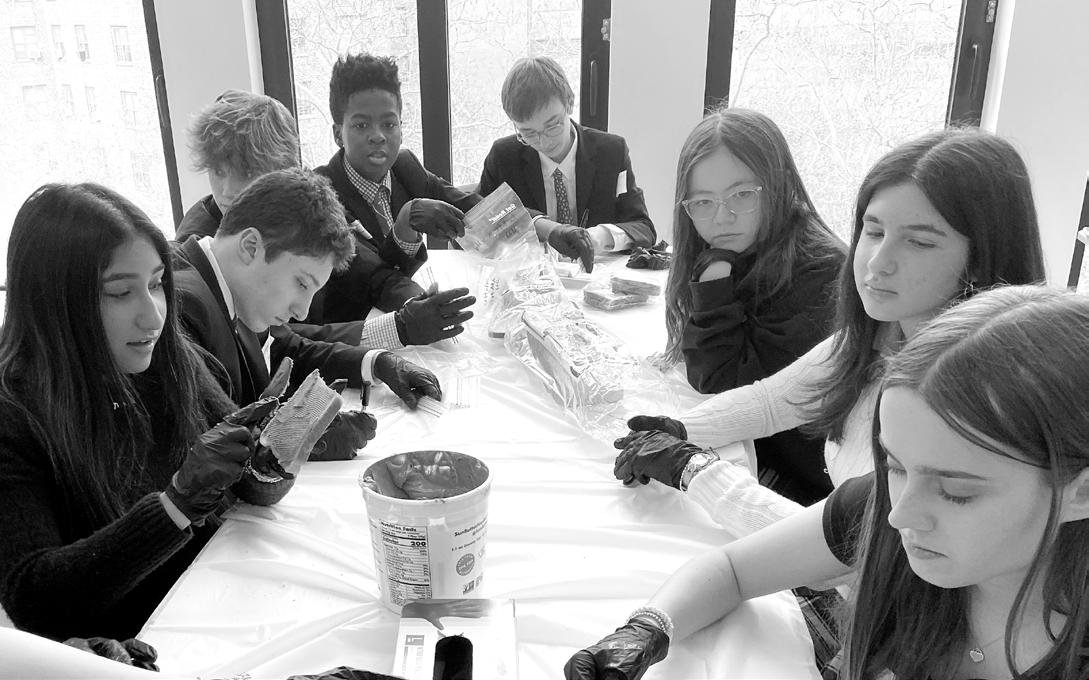
Q. What are some of Browning’s current social impact projects?
A. Daniel’s Music Foundation, which provides free music programs for people with disabilities, partners with us to provide K–12 disability awareness programs, promoting appreciation for diverse talents. By Upper School, students are delving into topics like the Americans with Disabilities Act and ongoing progress for disabled individuals in everyday life.
Brooklyn Book Bodega combats illiteracy in New York City by helping families get books for their children at home. Our students have volunteered at their Brooklyn headquarters to sort, pack, and distribute books. We’ve also hosted book drives for impactful donations.
Grassroots Grocery helps fight food insecurity by supplying fresh produce to community fridges run by volunteers. This fills a logistical volunteer gap, reaching those who may avoid traditional food services due to dignity, visibility, and transportation concerns.
Q. Browning has worked with Grassroots Grocery for more than two years. What insights have the boys gained about food insecurity?
A. Boys (and their families) participating in our Days of Impact program at Grassroots have learned about worsened food insecurity during the pandemic and gained an appreciation for unused food that can aid neighbors in need. While learning about food safety, Middle Schoolers are leading a food rescue campaign, urging city schools to distribute surplus food to community fridges.
Q. What do you believe has fueled the surge in volunteering in recent years?
A. Volunteerism surges during crises like the pandemic. As it became safe to do so, there was a strong desire to engage in more in-person volunteering. People are responding to that need. We experience physical and mental health benefits from doing good—it’s enjoyable and it fosters community and relationships.
Q. How do the Senior Projects symbolically cap a Browning boy’s career?
A. Browning seniors conclude their year by volunteering with nonprofit organizations across the city. More recently, this program has shifted to align more closely with our mission by translating skills into meaningful impact, where the boys engage with our partners: Make-AWish Foundation, Brooklyn Book Bodega, and Grassroots Grocery. Students translate learned skills into real-world impact, reflecting their development in research, hands-on learning, teamwork, and presentation. It’s a chance for seniors to lead and an opportunity to make a difference.
Q. Where do you see our social impact program growing in the future?
A. I wish for Browning students to consider engaging with social impact as a core aspiration throughout their entire time here. As our Upper School moves to a new space, I hope for older students to mentor younger ones and involve them in such initiatives. Just as students aim for distinctions in academic disciplines, I want them to strive to be social impact leaders in the School.
A larger engagement with the world is our hope for our boys
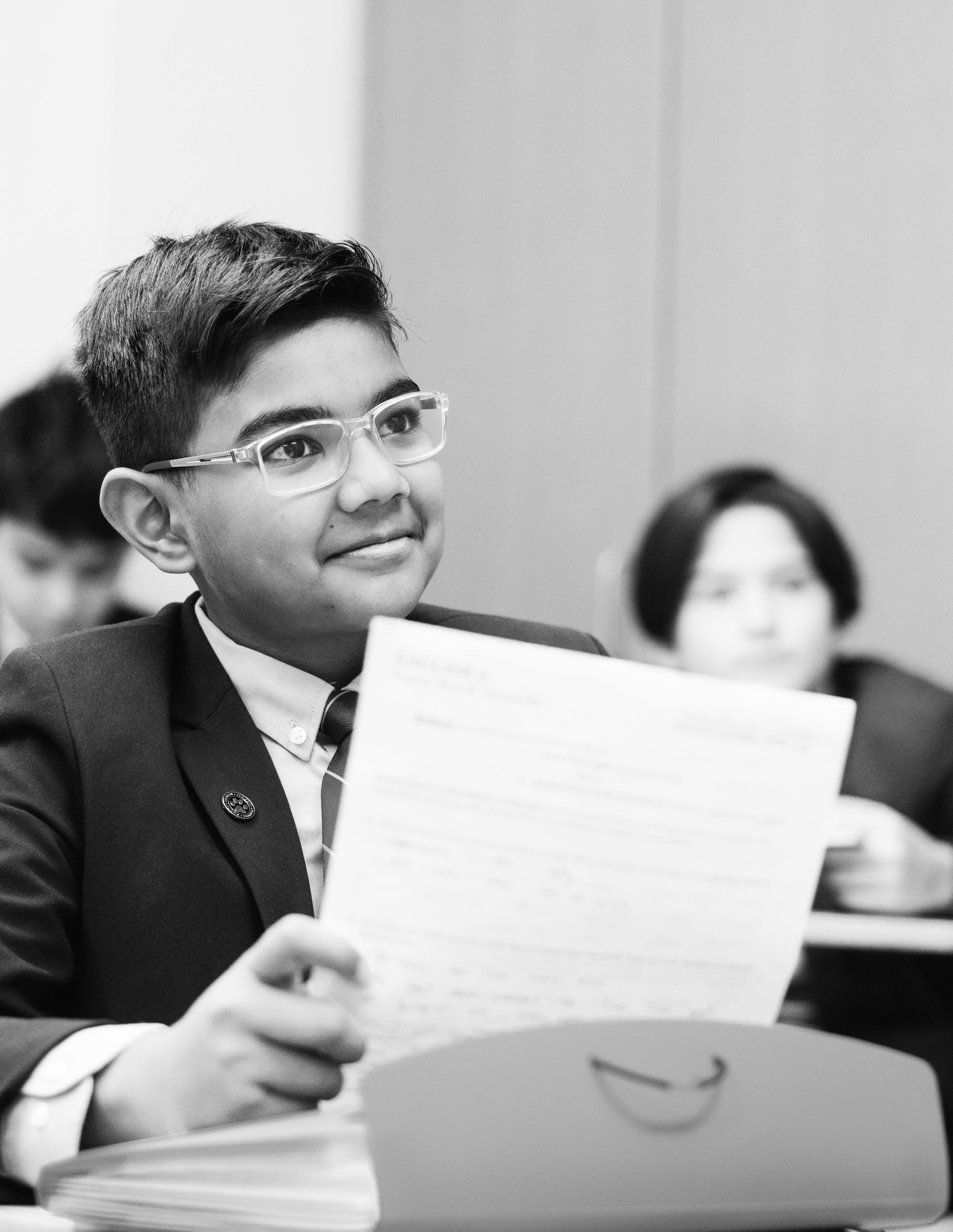
Relationships
By John Botti Head of School
When I think about what I want boys to get out of Browning, dozens of things come to mind: deep friendships, self-confidence and self-awareness, understanding of math and science and literature and language, physical fitness and aesthetic skill, grytte, and—most certainly—capacities for honesty, curiosity, and dignity. But I believe the most important aim of a Browning education is finding a sense of purpose.
Our expression of this core value draws upon the definition offered by William Damon of Stanford University: “A stable and generalized intention to accomplish something that is once meaningful to the self and of consequence to the world beyond the self.” On this understanding, purpose is something more than a personal passion or a short-term goal; it is, rather, a larger orientation, something that brings us out of ourselves and into engagement with the world, something enduring which both offers direction and encourages resilience.
What makes the pursuit of purpose such an important element of Browning’s education—and what makes its realization such a true gift—is the degree to which it represents a countercultural effort. We are all subject to torrential messaging from a media apparatus that insists we will be fulfilled if only we would affiliate ourselves with that brand, or acquire that credential, or win that competition. While there is surely nothing inherently detrimental about consumption, achieve -
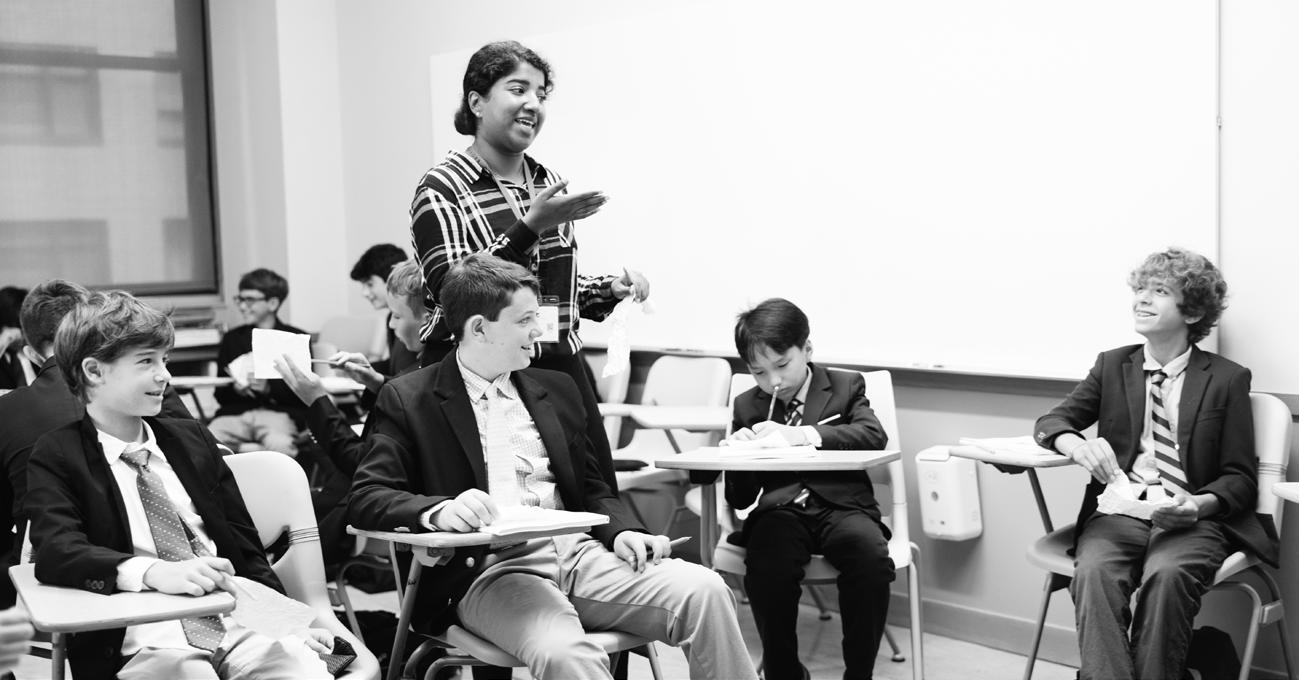
ment, or striving, a contemporary world that emphasizes speed, scarcity, and status very seldom encourages us to pause and reflect upon what all that consumption, achievement, and striving might actually be for. In a society that bombards us with messages about how to meet short-term or purely instrumental goals, and which extols necessity of self-promotion and material gain, all of us—particularly our young people—would benefit from having space to slow down, to consider longer time horizons, and to examine what kind of difference we think we can make in the world.
This is precisely the space that we seek to provide for all our boys. School is not simply a place to be trained; it is, rather, an opportunity for students to discover what fully captivates them and to explore what the world is calling them to do. A boy may participate in multiple group projects over several years in our history curriculum, and he will surely learn something about the Han dynasty, the French Revolution, and independence movements in 20th-century Africa. But he may also find that organizing a team, bridging cultural divides, or understanding geopolitics speaks to him in a way that goes beyond the bounds of a specific course—it becomes something he pursues not because it’s part of an assignment, but because he needs to do it, and he increasingly sees it as part of himself and part of what he wants to give to the world. When I see our students learning the elements of the scientific method, tinkering with models, and adopting the
thinking routines of biology and chemistry and physics, I am seeing boys not only grasp our curriculum—I am seeing them invited into discussions about what this curriculum means, both to the world and to themselves. The child who is given the chance to cavort with scientific concepts is also the child who is increasingly and intentionally invited to wonder about themselves as a problem-solver, an engineer, or an explorer, and how such identities (and attraction to such identities) might serve as a springboard to a life that makes a significant contribution to the world. In this way, play can become passion, and passion can become purpose.
To be sure, studying math, languages, and literature are worthy endeavors in their own right, as is involvement in sports, arts, and civic commitments. But these endeavors are further enriched when they propel a boy towards finding a way to organize his life around creating art, fighting injustice, improving lives through innovation, healing the sick, or mentoring the young. At Browning, we structure curricular and co-curricular experiences so that boys will understand their education not simply as a path to transitory and thin understandings of success, but rather as an invitation to explore meaningful, intentional activities that are both personally engrossing and of consequence to the world we inhabit. This is the power of a real education—the power, as Damon puts it, to find an “ultimate concern” that animates, directs, and gives meaning to the journey of our lives.
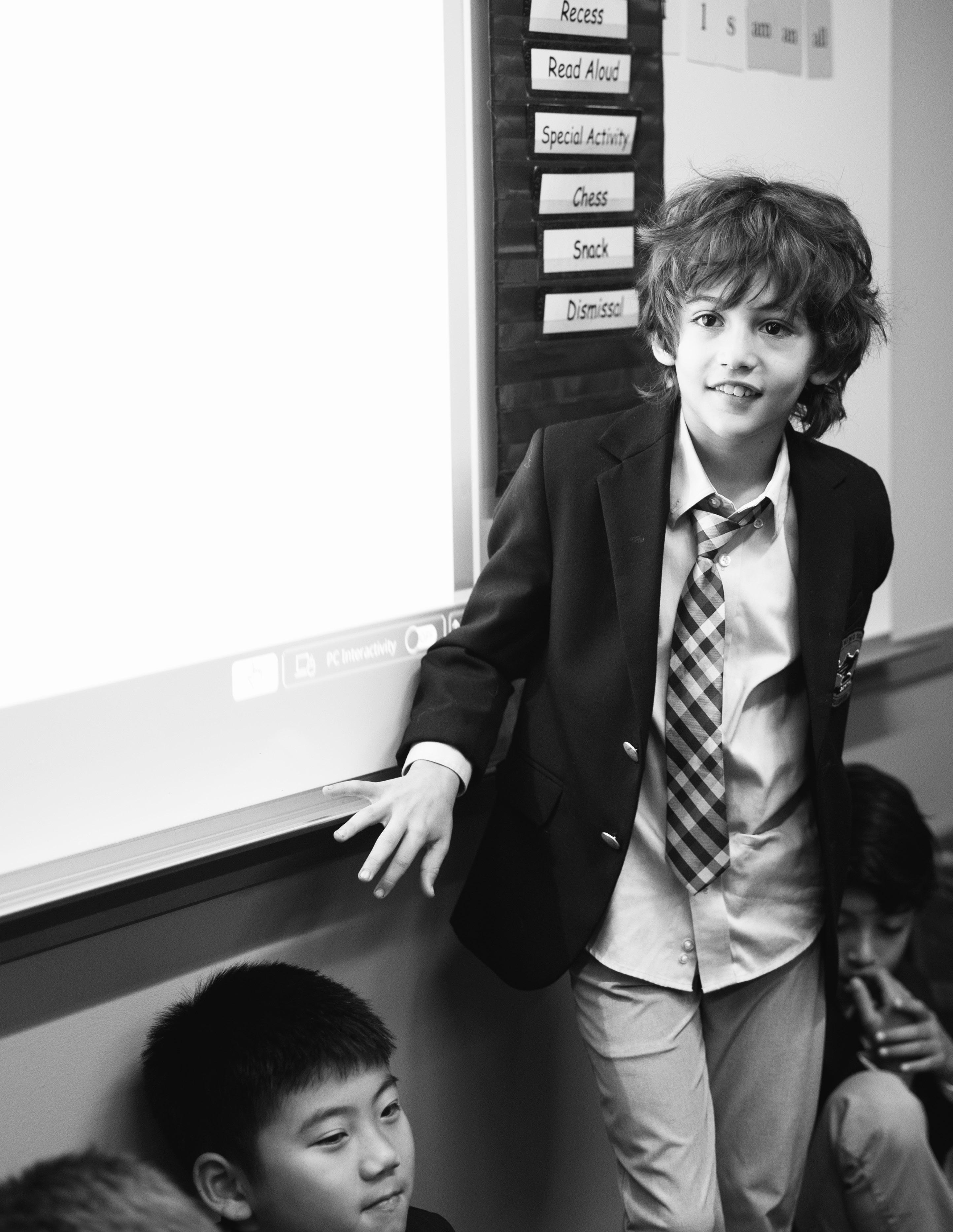
A conversation with Assistant Head of School Janetta Lien
By Jan Abernathy Chief Communications Officer
When Assistant Head of School and Director of Enrollment
Janetta Lien came to Browning to teach science in 2005, she was new to boys’ schools. Now she extols their virtues to prospective families and educates colleagues worldwide about best practices in boys’ schools. Here, Janet tells us why schools like Browning are effective, the value of relational learning, and how working with boys brings her joy.
Q. What are some of the misperceptions that families have about boys’ schools?
A. So often we hear prospective families say that boys’ schools let boys move around more or have more outdoor time. We also hear there would be fewer distractions without any girls in the classroom. The worst misperception is that boys’ schools are a version of Lord of the Flies, where it’s all about survival of the “fittest.” People can be surprised when they see how easily Browning defies those stereotypes. When you walk into our classrooms, you understand pretty quickly that our school is nothing like that.
Q. Why are boys’ schools relevant today?
A. Not all boys’ schools are the same, so I think it’s important to dig a little deeper. At Browning, we talk about boys’ education based on developmental stages. We know that boys’ and girls’ maturation rates are different. We also know that schools tend to be geared towards girls for a lot of reasons, and this can be particularly noticeable in elementary school. In fact, Judy Chu’s research shows that
Janetta Lien leads Browning’s Speaker Series, Today’s Boys, Tomorrow’s Men, which facilitates conversations on issues confronting boys today.
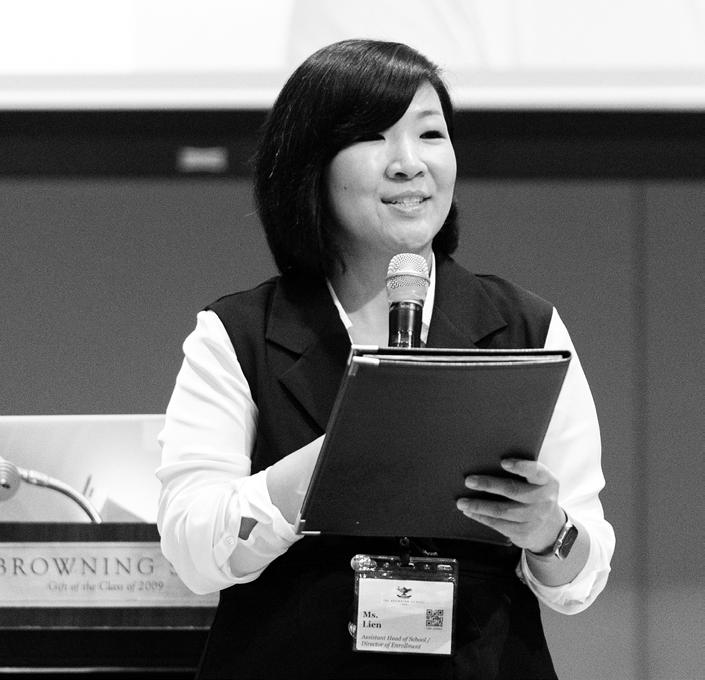
boys are policed about their gender from as young as age four.
In middle school, boys’ bodies are growing in ways they don’t necessarily understand. Their brains are developing rapidly, but there is research to suggest that the prefrontal cortex develops later in boys. So boys in the early adolescent years may need help navigating their own development, friendships, and inner lives.
A boys’ high school can nurture boys into taking real intellectual risks from a place of psychological safety. I think a boys’ school like ours gives students this space to branch out, to experiment, and to try new things, which is so important as they prepare for college and life.
Q. What does our membership in the International Boys’ School Coalition do for Browning?
A. Browning is a proud founding member of the IBSC, which advocates for and commissions research on boys’ education. John Botti is currently on its board and I’m on a board committee for programming. Some of the studies they’ve promoted include Adam Cox’s work on communicating with boys and Michael Reichert’s study on relational teaching and learning with boys. The IBSC also sponsors a terrific action research program, in which I’ve participated both as a researcher and an advisor. This program allows teachers to research and implement innovative programs, gather data, and work to uncover best practices in the classroom. Browning will be launching its own action research program this year.
Q. What makes for a good boys’ school educator? And a good boys’ school?
A. A great boys’ school teacher should be passionate about their subject and demonstrate an interest in the students’ lives beyond the classroom. They need to be firm but fair. Great boys’ schools need to demonstrate that they’re actively reckoning with what it means to be a boys’ school today. If they aren’t clear on why they exist, or why they serve boys best, then what philosophy are they embracing? Is it just “tradition”? Be cautious about a school that says “boys will be boys” or that traffics in gender stereotypes.
Q. Where have you found joy in working in a boys’ school?
A. It was in learning how to build relationships in a single-gender environment. How do you bring boys back into the fold if the relationship between you has been temporarily upset? Adults who are facile at this can turn such moments into joy. When I was a new teacher here and shared with a peer what I found challenging, she told me, “You know what you’re doing? You are teaching the way you learned.” And I really had to reflect on why that would be a problem—after all, it worked for me. I visited several colleagues’ classrooms, refined several classroom strategies, and relinquished some of the unnecessary control to accommodate what I perceived the boys needed from me as their teacher. I’m happy to say that, over time, these adjustments unlocked so much more engagement. And, on the best days, working with boys is simply a ton of fun.
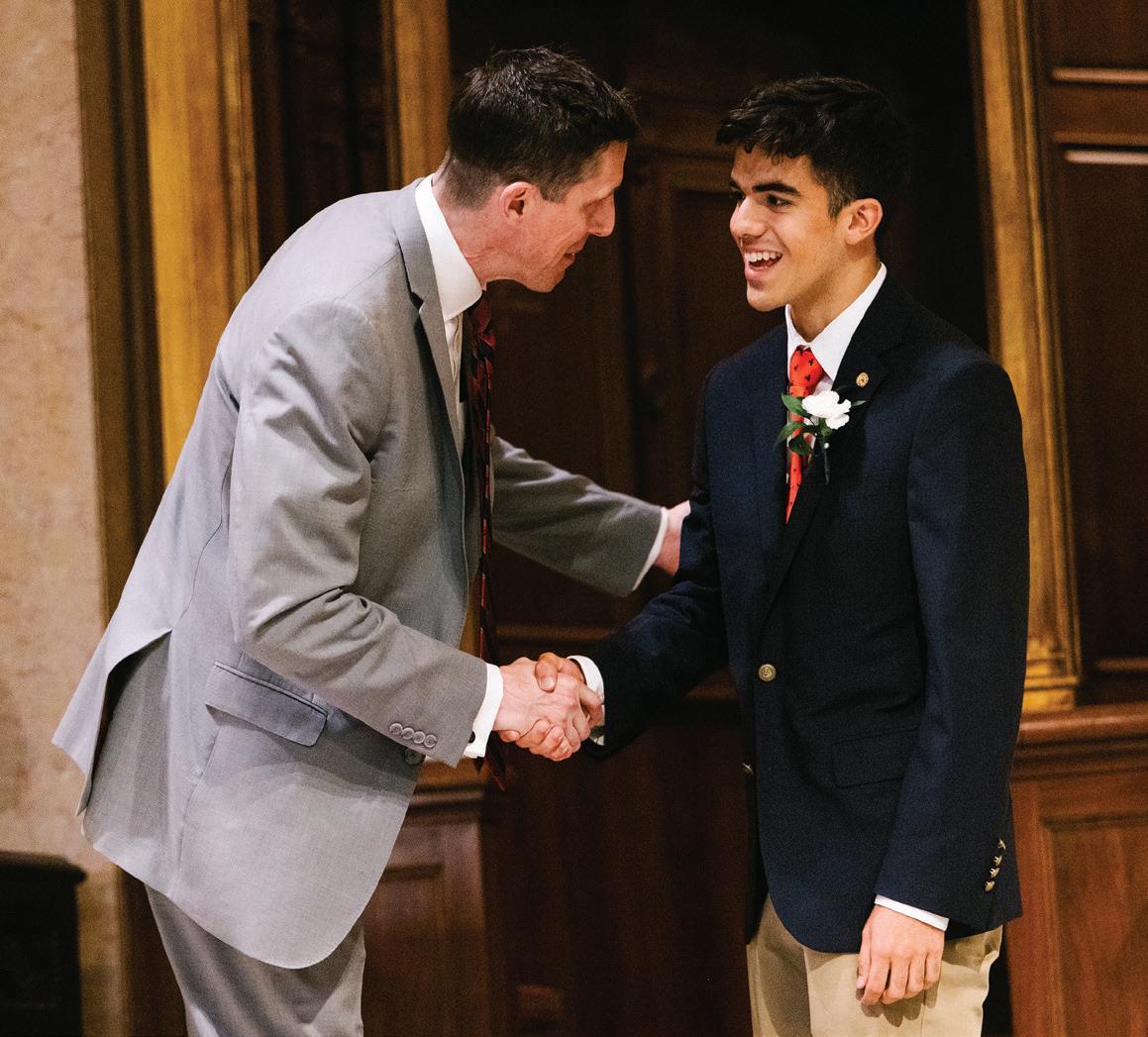


Following his years in the rigid French educational system, Luca’s transition to Browning fostered his creativity and academic success.
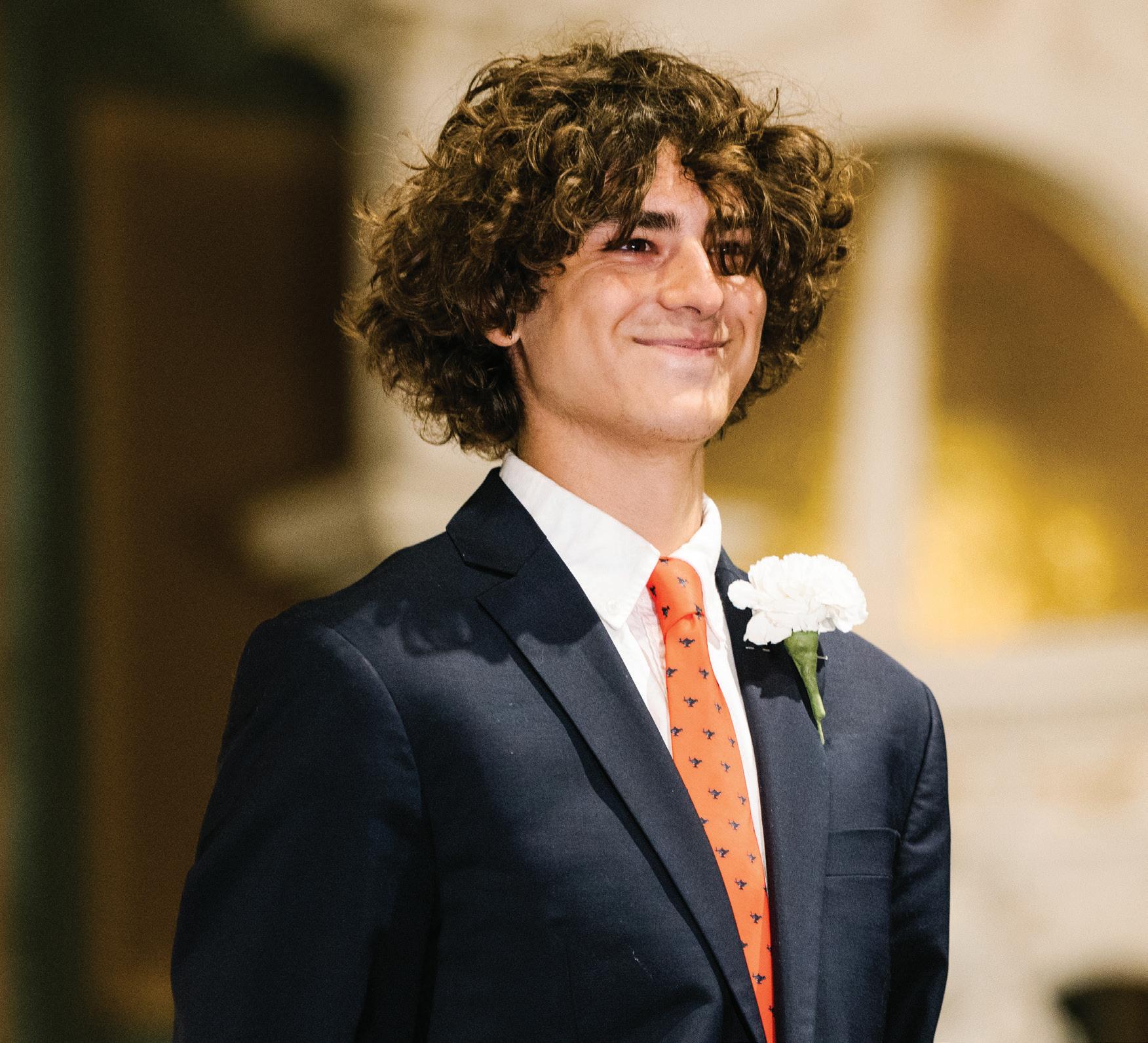

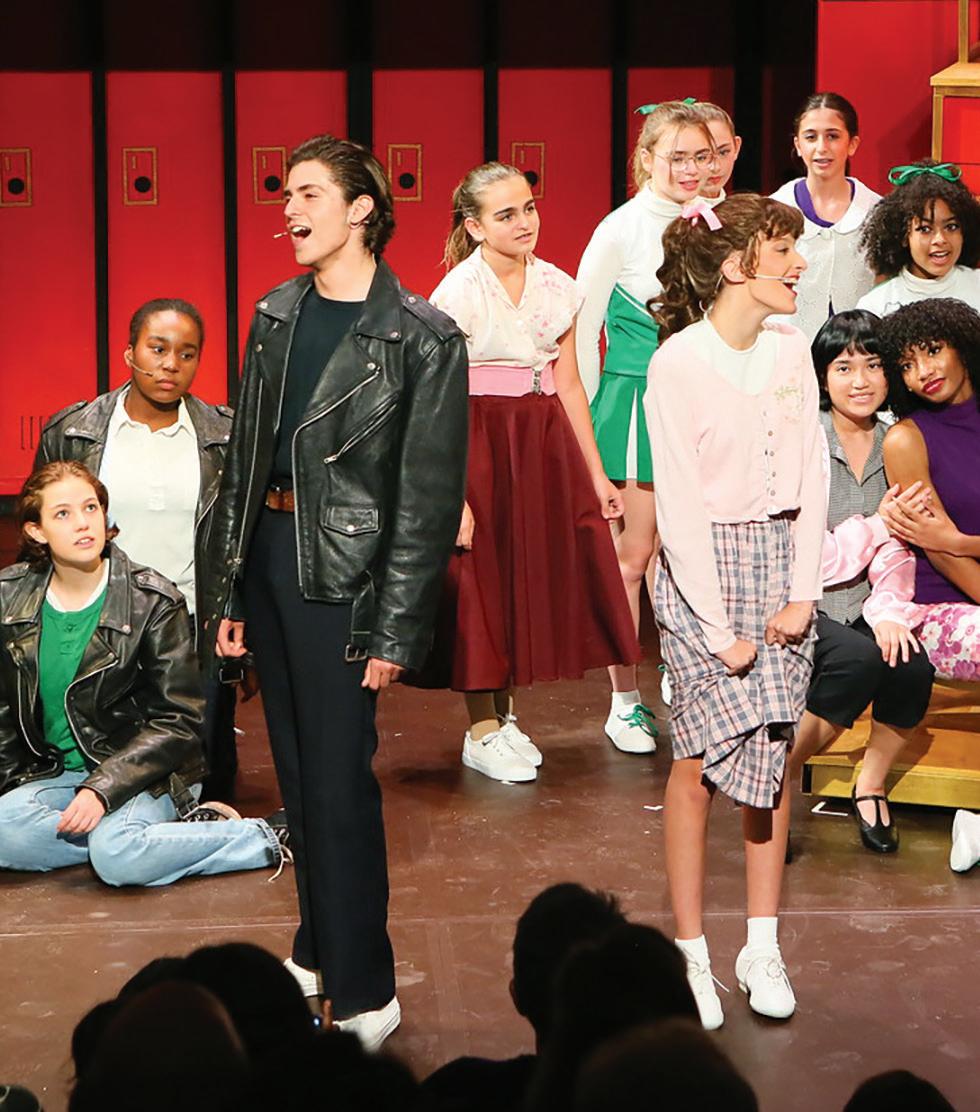
Joining a new school and learning a new language is challenging for any teenager. But for Luca Girodon ’22, what was supposed to be a one-year sojourn in an American independent school instead evolved into a lifelong identity as a Browning Panther.
By Jan Abernathy Chief Communications Officer
The word he uses most to describe Browning is love,” says Luca’s mom, Janine di Giovanni, an American-born award-winning journalist and author, and Executive Director of the Reckoning Project, a war crimes unit in Ukraine. “I spent a year researching nearly every private school in New York City and the minute I walked into Browning I knew this would be our home.”
Luca, a native of France, had attended an elite school there. “The French educational system is very rigorous but lacks many things—compassion, individual attention, analytical adaptation, clubs, after-school sports, and most of all, creativity. It’s very rigid,” Janine says. “I knew Luca needed to experience the American prep school system. I wanted him to play sports, be able to join clubs, work with other students, and work closely with great teachers.”
Janine says it was the warmth of the admissions team, testimonials from older boys, and Browning’s small size and excellent academic profile which drew her in, and it was soon clear that Luca didn’t want to return to a French education. “He said, ‘After knowing this much love, how can I ever go back to that?’” she adds.
standardized tests, choosing instead to “do it the old fashioned way—he studied and studied and studied until he literally raised his SATs by 300 points, which is apparently unheard of. I say that is down to Browning teaching him about the joy of working hard and seeing the reward in the final product.”
Luca’s college list included institutions that focused on “strong international relations, languages, and a global view of the world,” Luca says. With encouragement from Sanford Pelz, Director of College Guidance, one of these was Yale University. “Both Luca and I never thought he would get in,” Janine says. “He was unusual—a French kid teaching himself English with YouTube and Debate Team—but still, it was a 3 percent acceptance rate. It was Mr. Pelz who convinced us and helped us understand early admission. He helped Luca think about writing the essay that really explained who he was.”
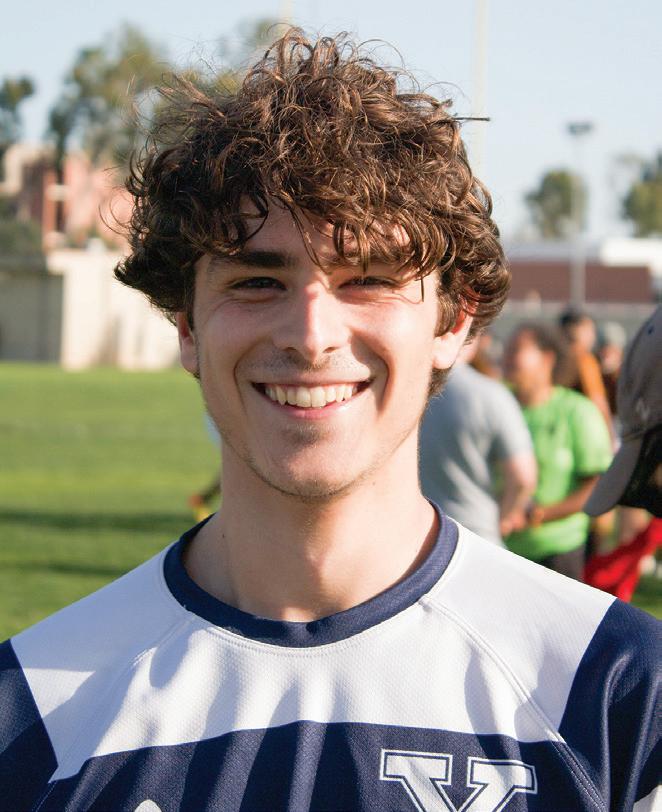
Despite not having studied in English (or knowing how to knot a tie), Luca adjusted easily to life behind the Red Doors. “Teachers came in early to work with him before school, and he was given constant love and attention. He joined everything—including baseball, which he had never played in his life before—and that helped him integrate with the other boys.”
Luca Girodon ’22 currently attends Yale University.
Now in his second year at Yale, studying global affairs and international relations, Luca is also on the rugby team, writes political op-eds for the Yale Daily News, and was just inducted into one of the university’s oldest secret societies. “He is maintaining a 3.9 GPA by studying about five hours a night—which is something he never would have done had he not gone to Browning. He complains a lot about the workload, which is intense, but he also realizes the extraordinary opportunity he has been given by having a Browning education,” Janine says.
“He hated studying when he was in Paris—but at Browning, he would come home after school activities and hit the books. I would have to force him to sit down to dinner. He became rather ‘competitive’ and loved the challenge of things like Debate Team—which also helped him with his English. He learnt a lot of creative competition, and most of all, he learned how to ask for help—many of the other boys were wonderful mentors.”
When it came time to apply to college, the family didn’t rely on outside tutors for Luca, who was unused to American
Luca, who says that the best things about Browning were “the attention, the rigorous humanities, and most of all, the camaraderie,” hopes to share the experience of being a Panther with his own sons someday. Janine adds, “Browning got him at the turn in the road when great educators make a huge difference in a young man’s life. His Dad and I gave him his core values—compassion, public service, and a deep commitment to human rights and making the world a better place—but it is Browning which gave him his intellectual rigor, curiosity, and the lesson that hard work brings rewards. We are forever grateful. Browning helped shape a young man’s life.”
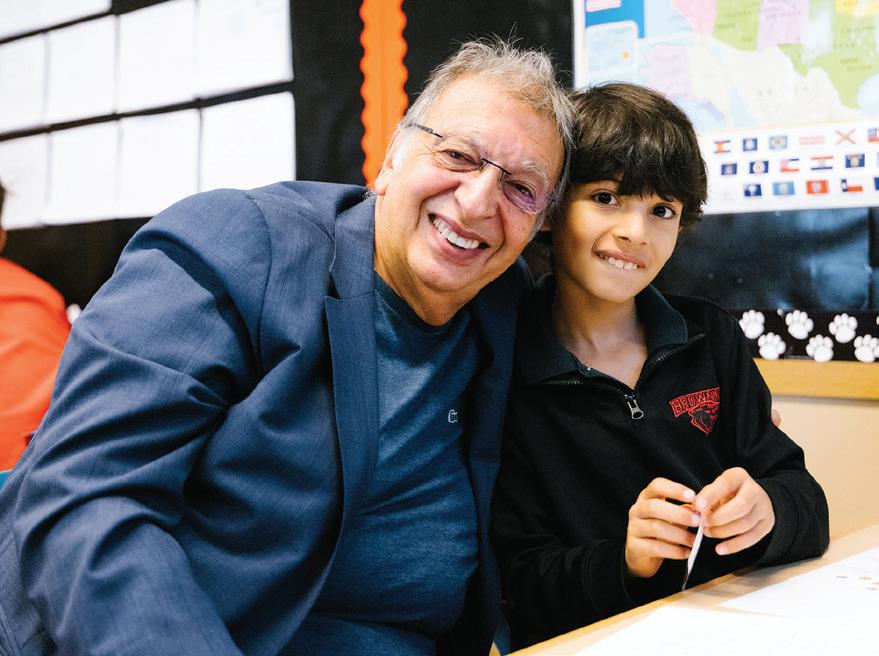
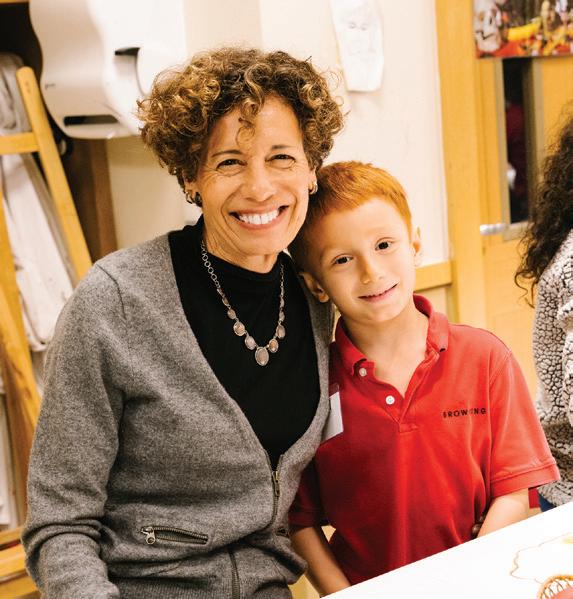
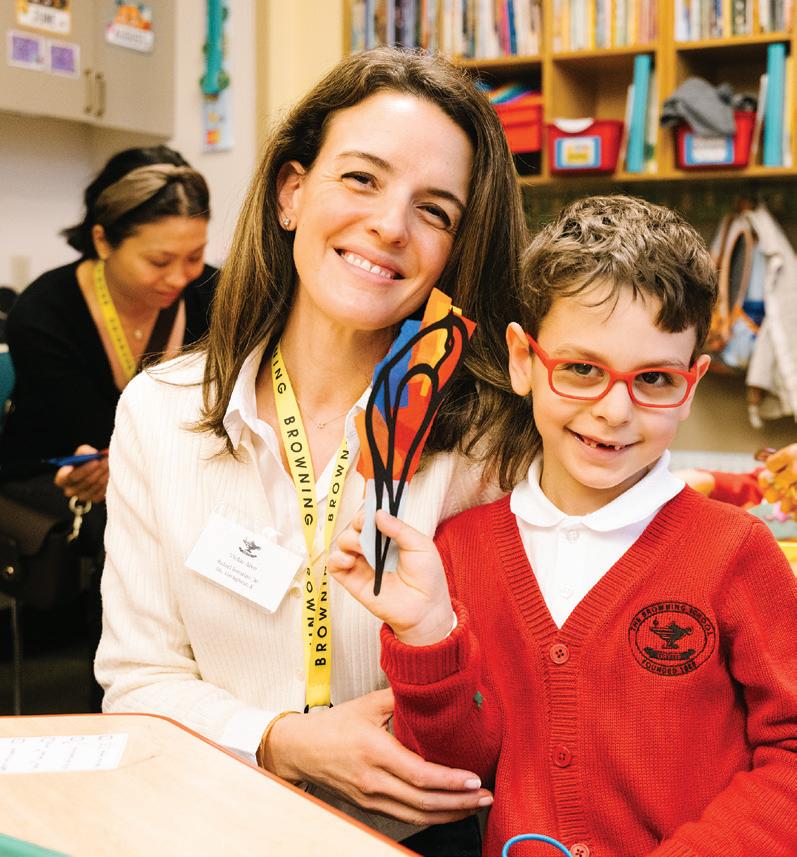
In May, boys from Kindergarten through Grade 2 welcomed their grandparents and special friends behind the Red Doors for a morning of laughter and learning. Guests enjoyed breakfast and a Lower School choir performance, then visited classrooms with their little ones to meet teachers and engage in interactive projects in music, science, math, and art. The Lower School community’s vibrant spirit shone in every classroom that morning.
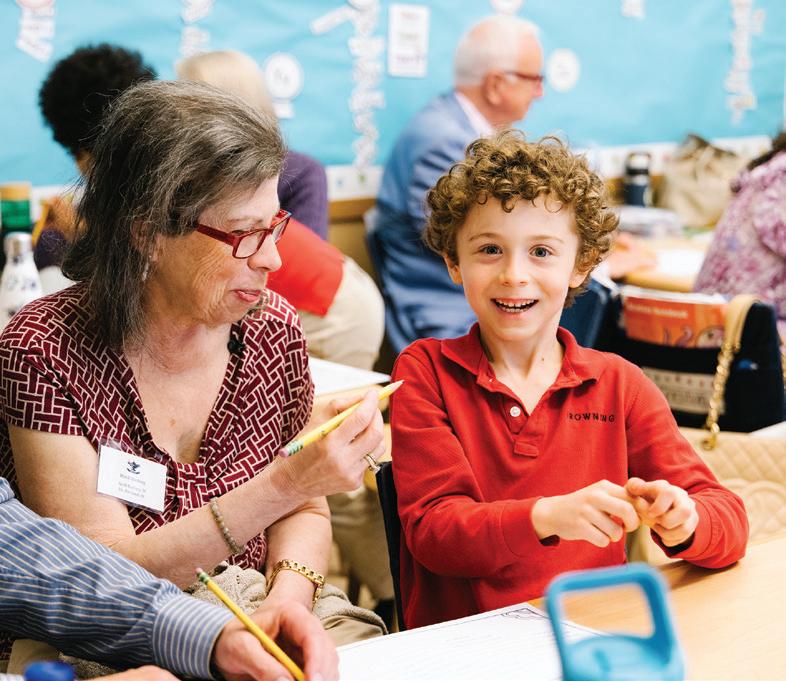
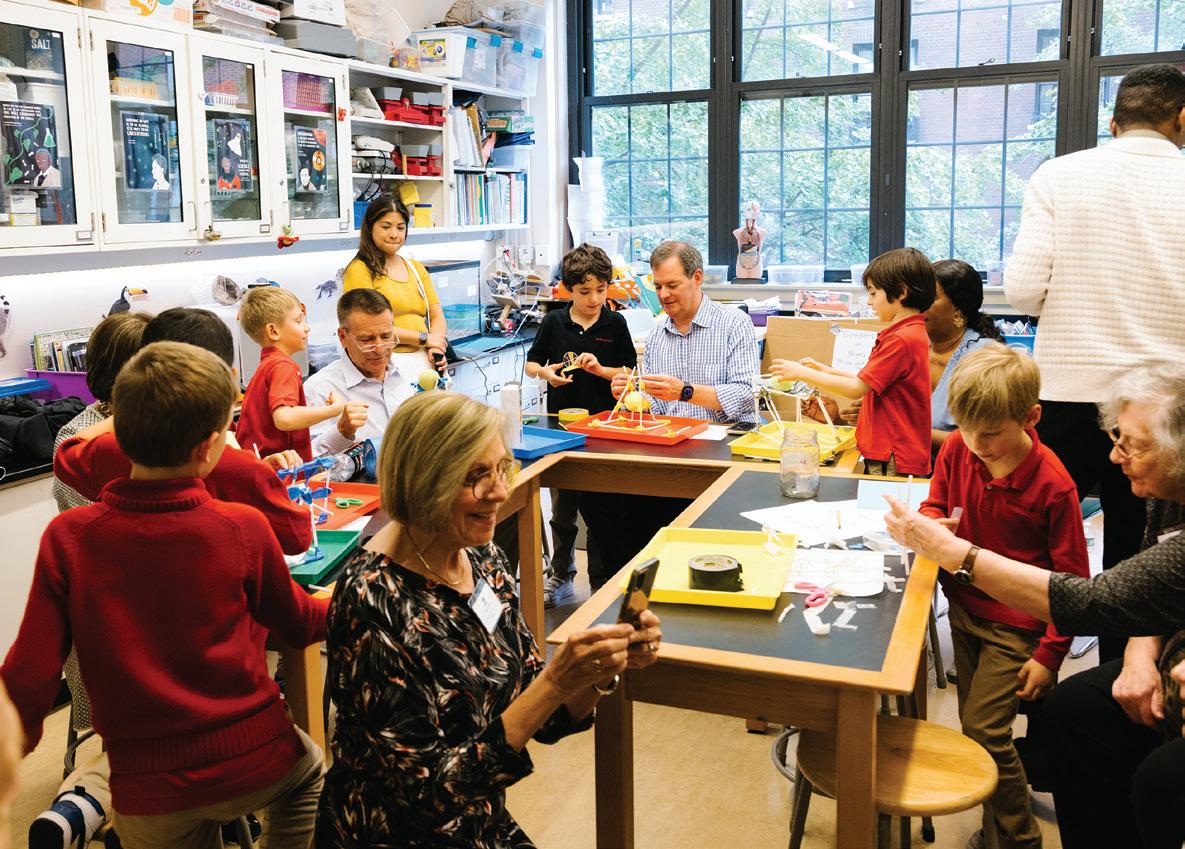
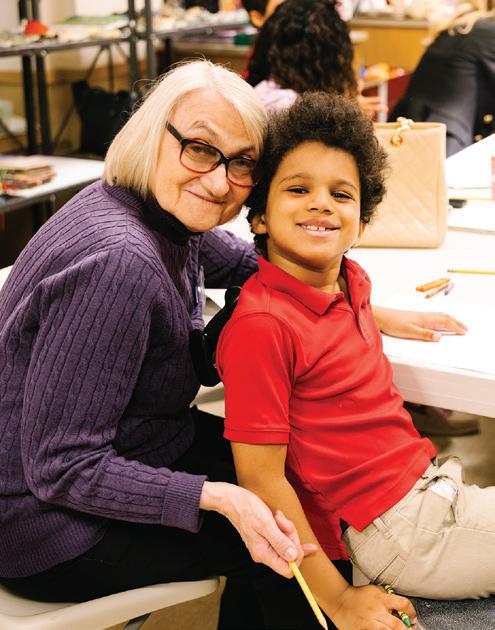
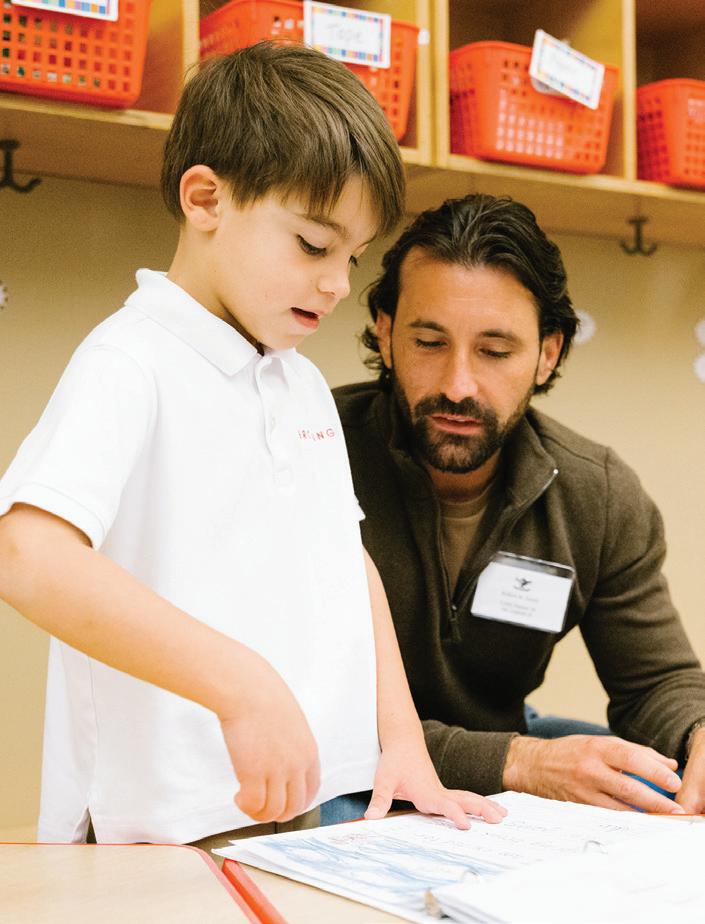
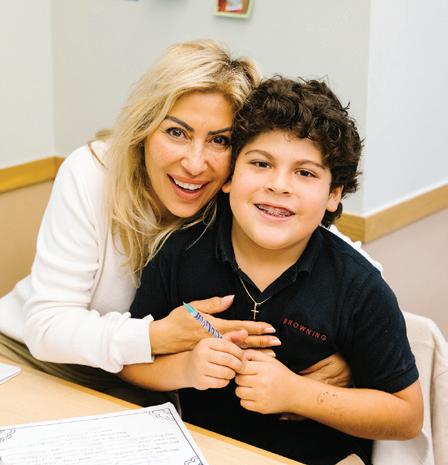
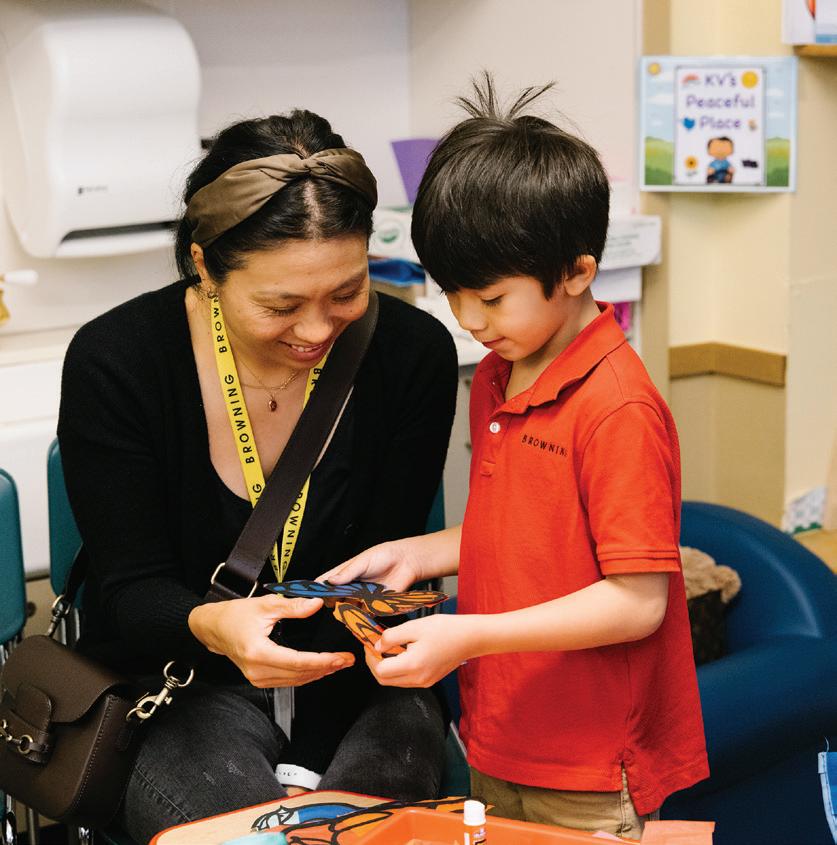


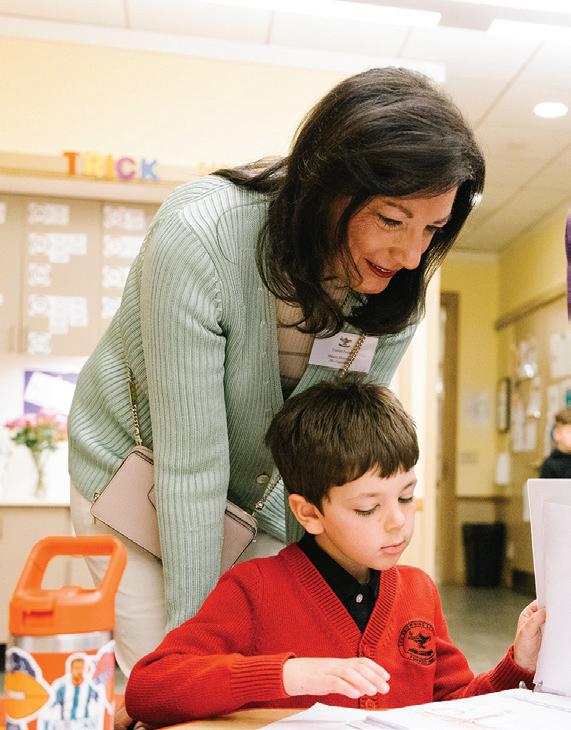
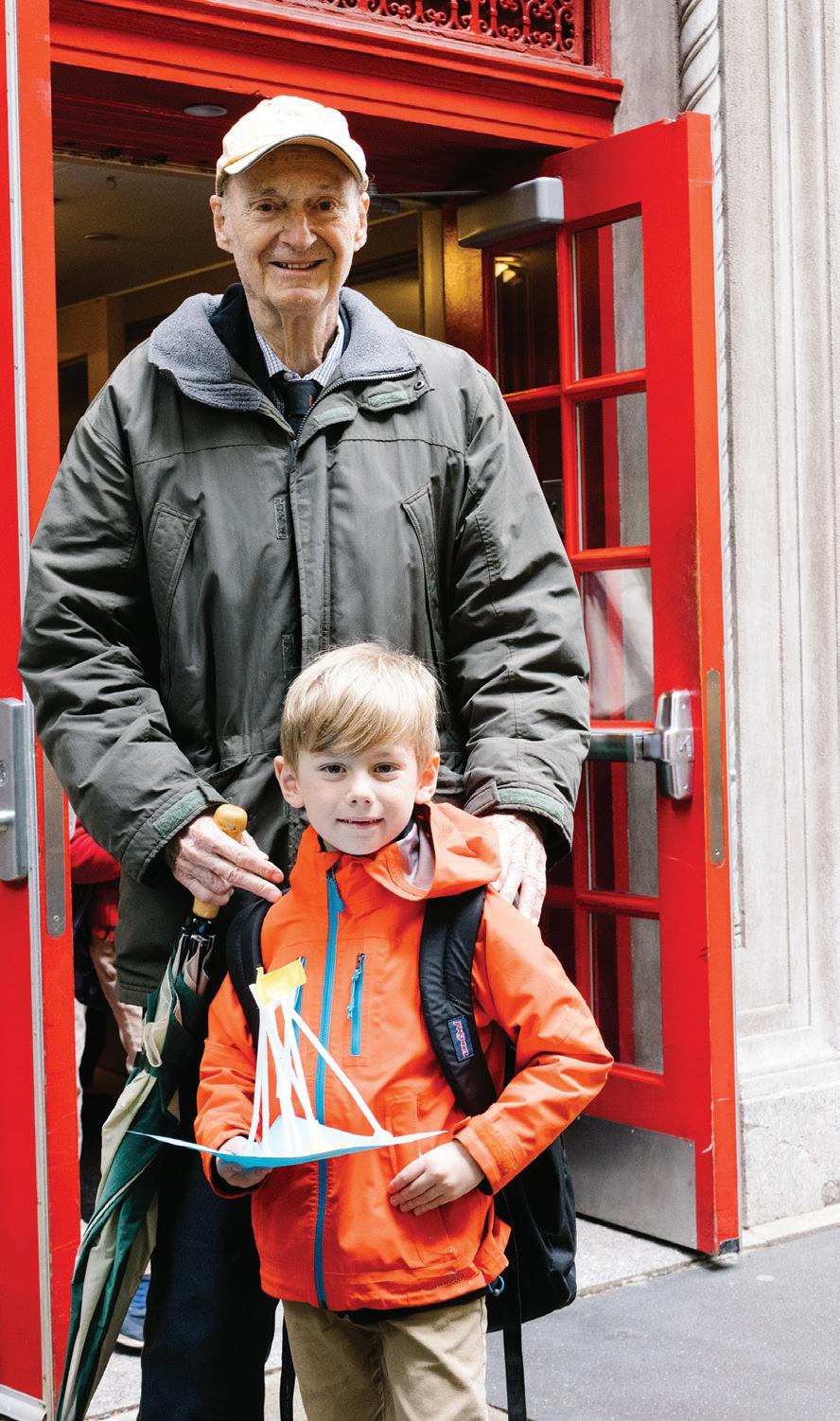
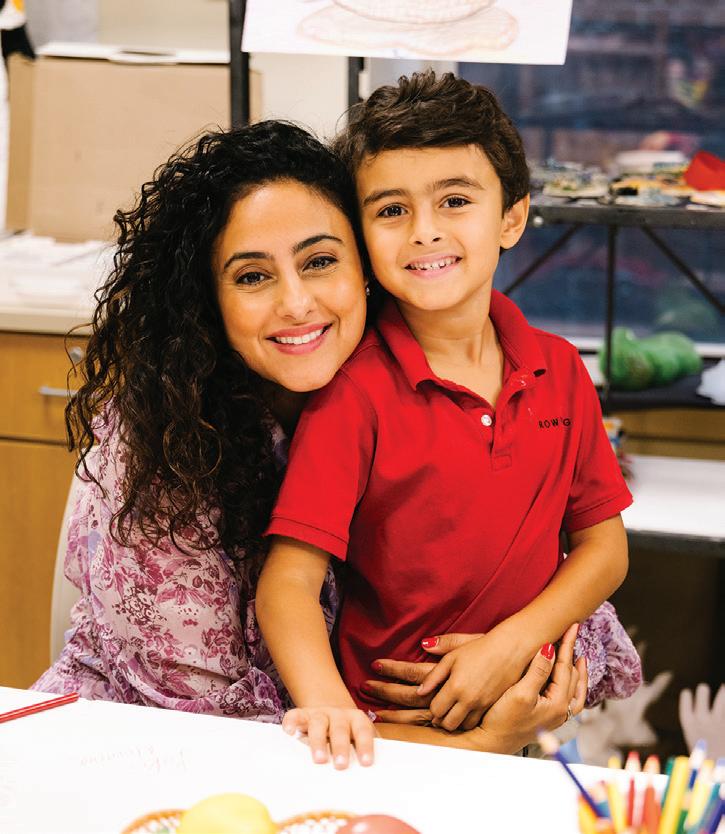
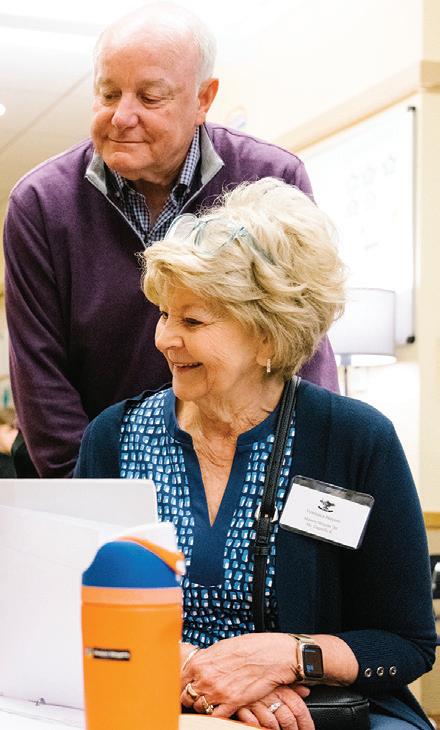
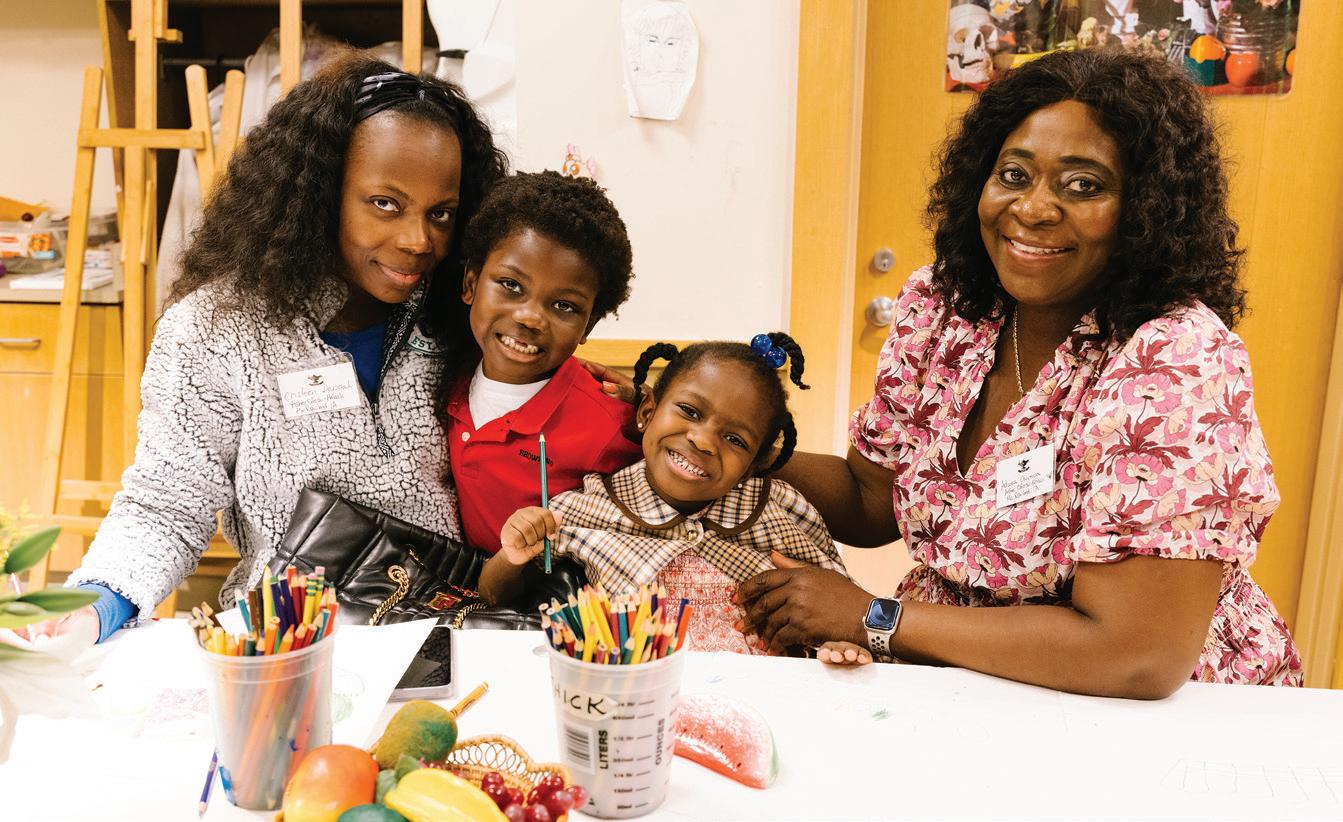
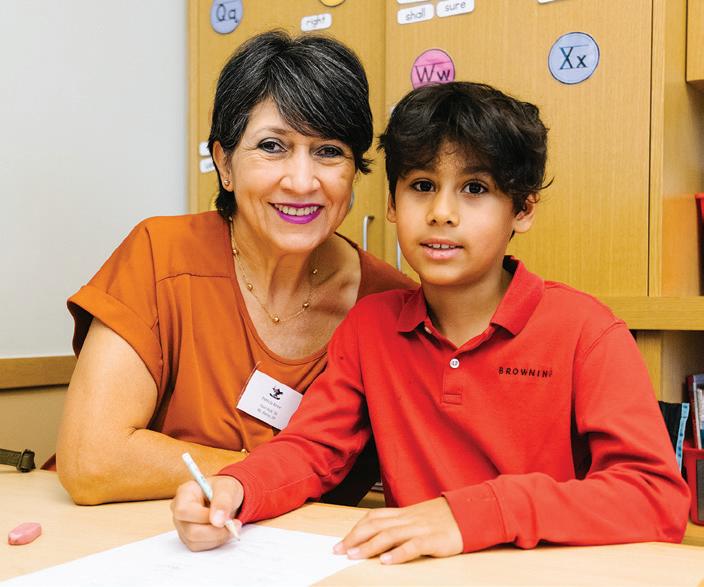
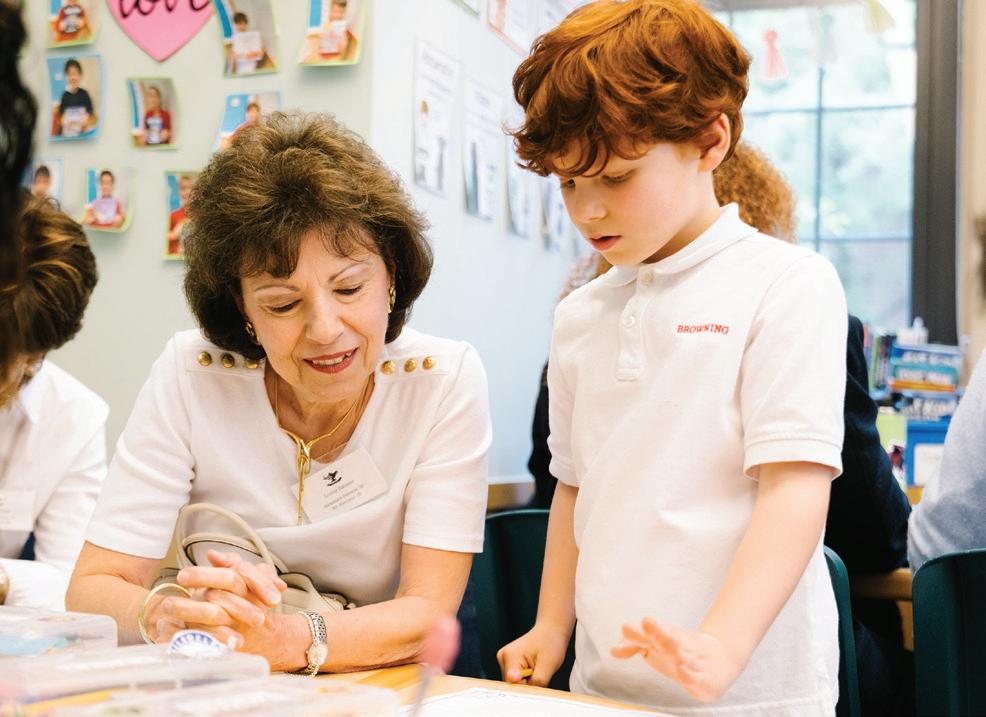
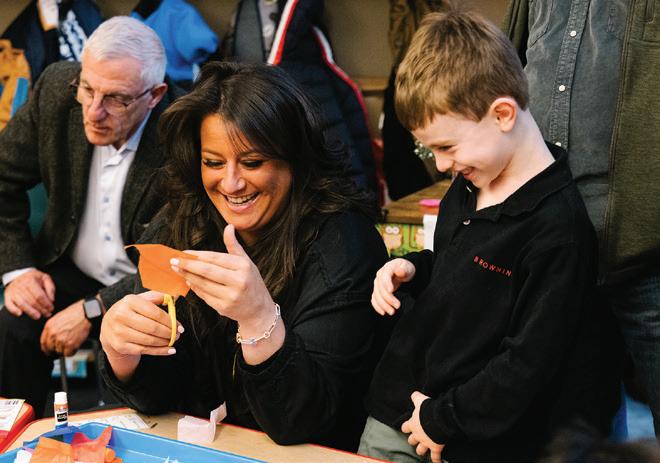
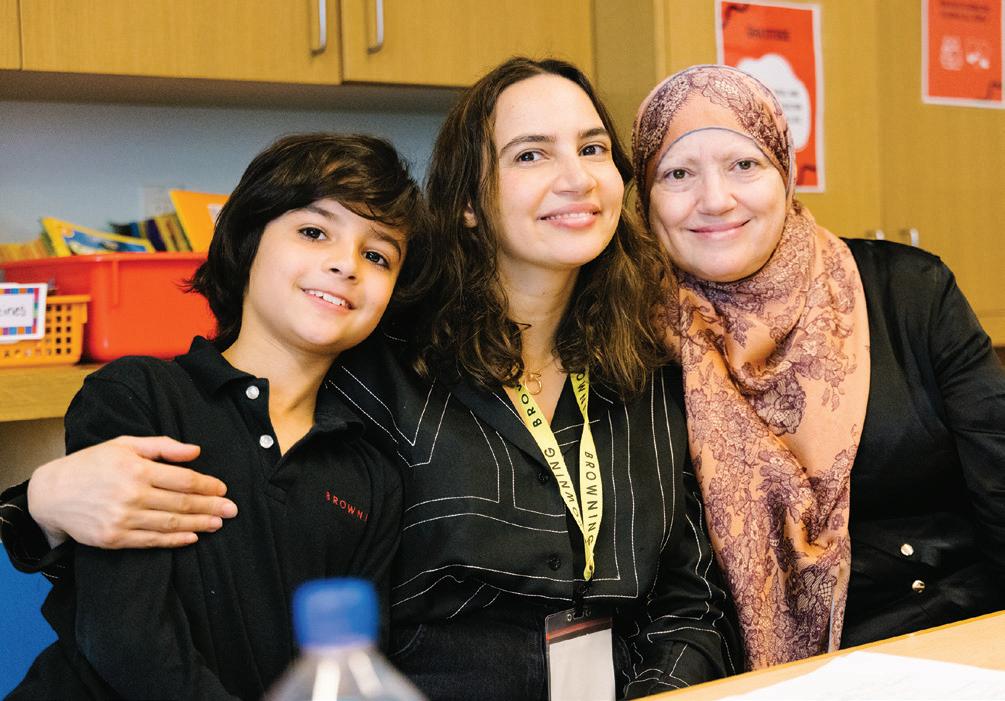
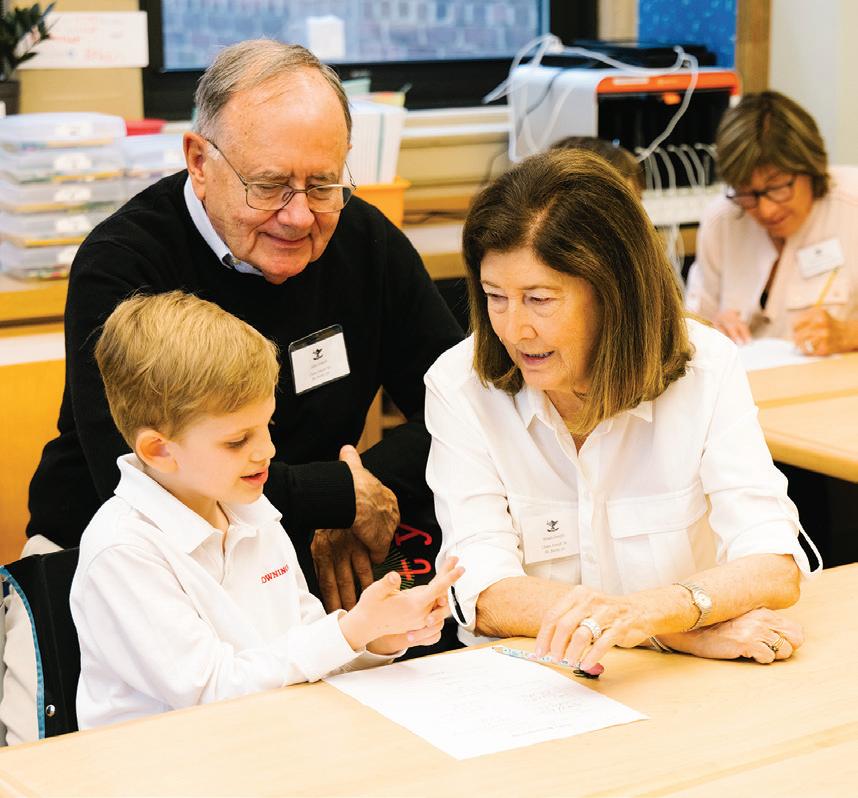
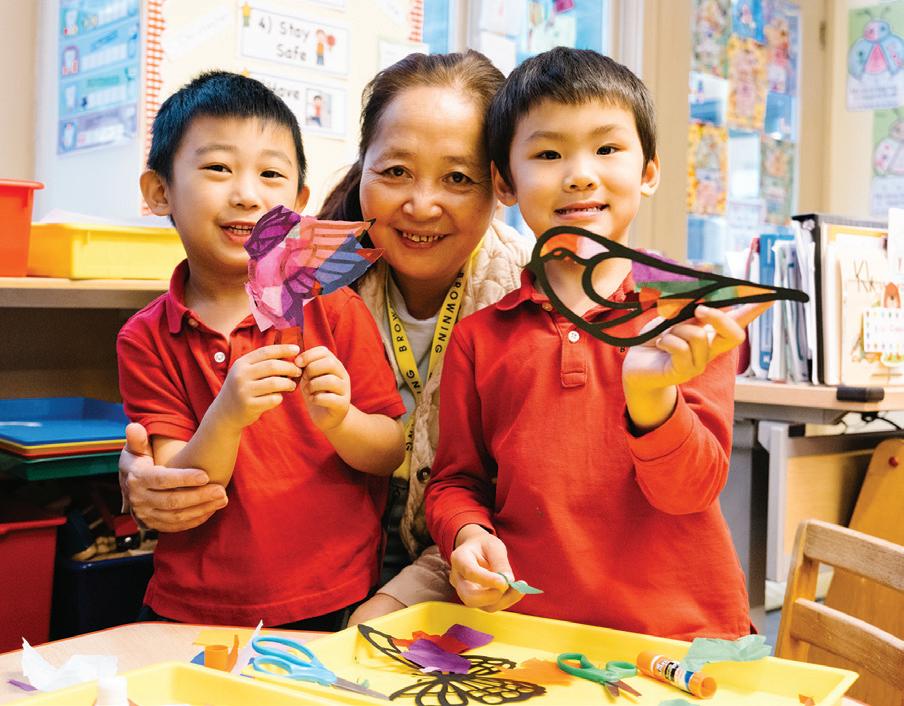
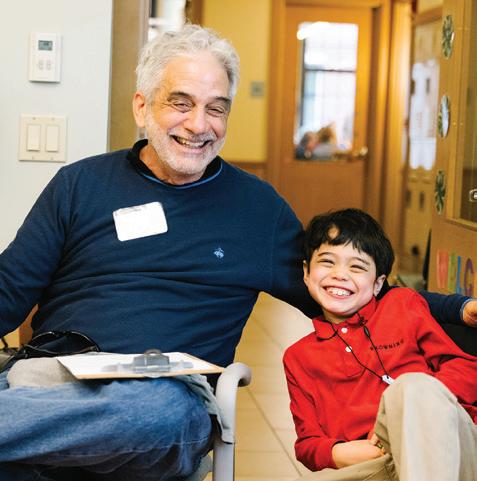
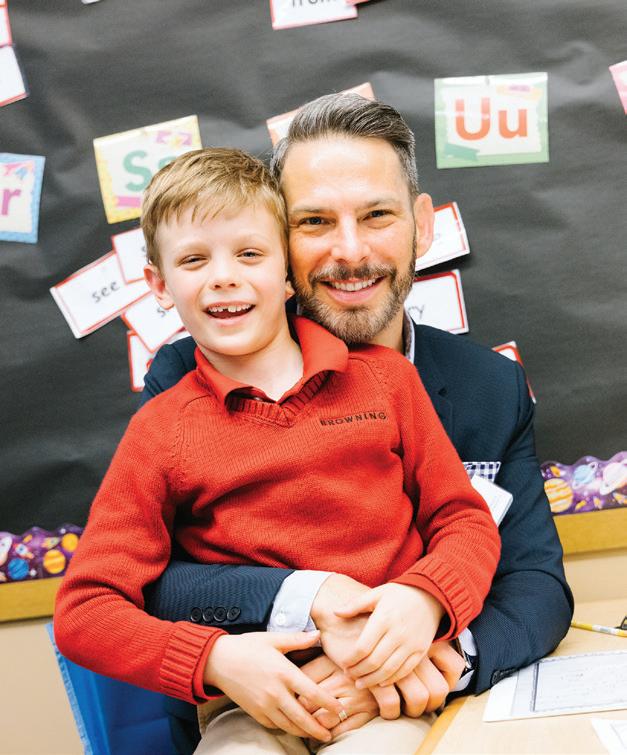



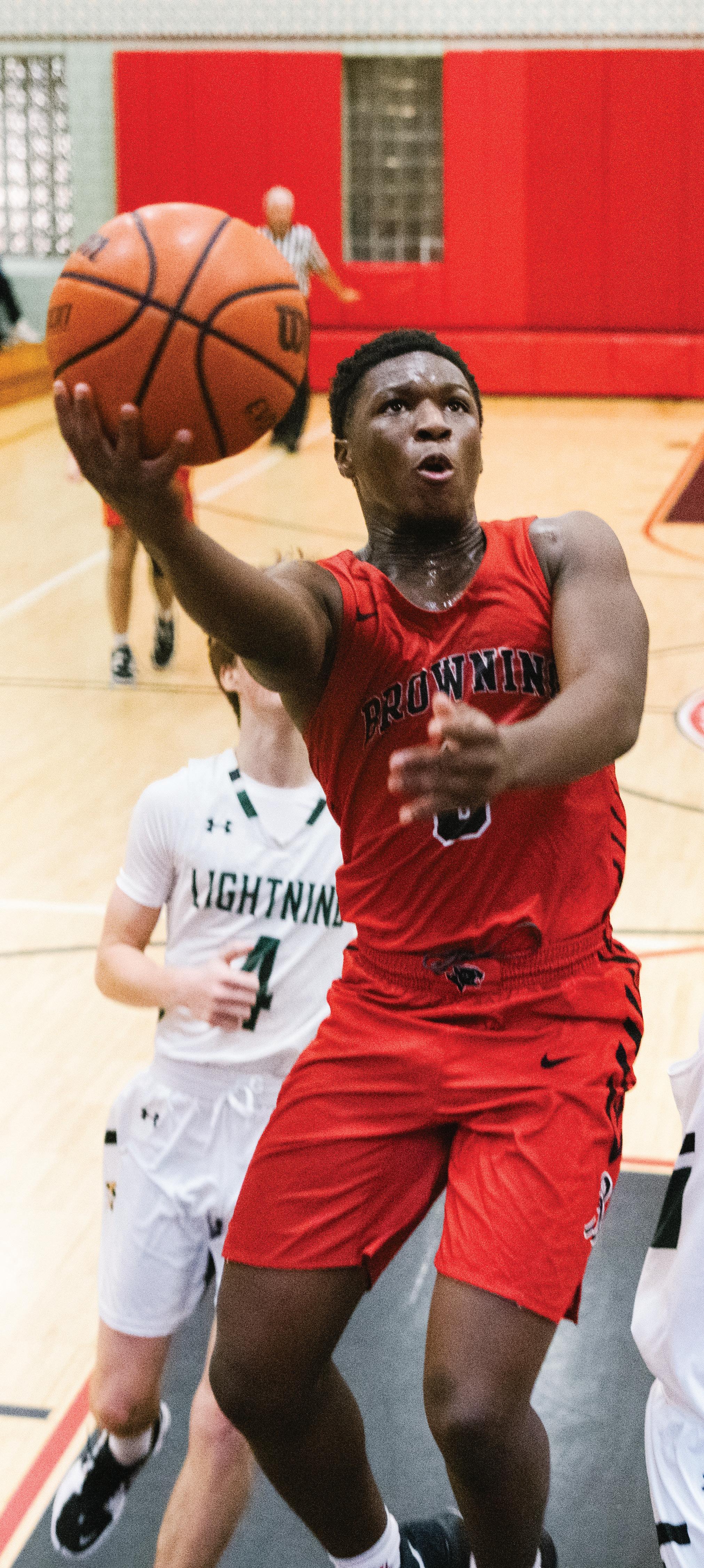
By Andrew West ’92 Director of Athletics
Last winter season was filled with lots of excitement.
The varsity basketball team finished the season playing their best by making the playoffs and coming up just short after a battle with Loyola in the NYCAL quarterfinals. The JV hoopsters made the School proud day in and day out with tremendous work ethic and effort all year round. Our Middle School teams always represented the school
with strong effort and sportsmanship. The highlight of the winter season goes to our varsity squash team for their strong season (13–4 overall), capped off with a trip to Philadelphia to compete in the Squash Nationals for the first time ever. The varsity table tennis team finished in third place in the ISTTL as this sport continues to grow at Browning.
#PantherPride

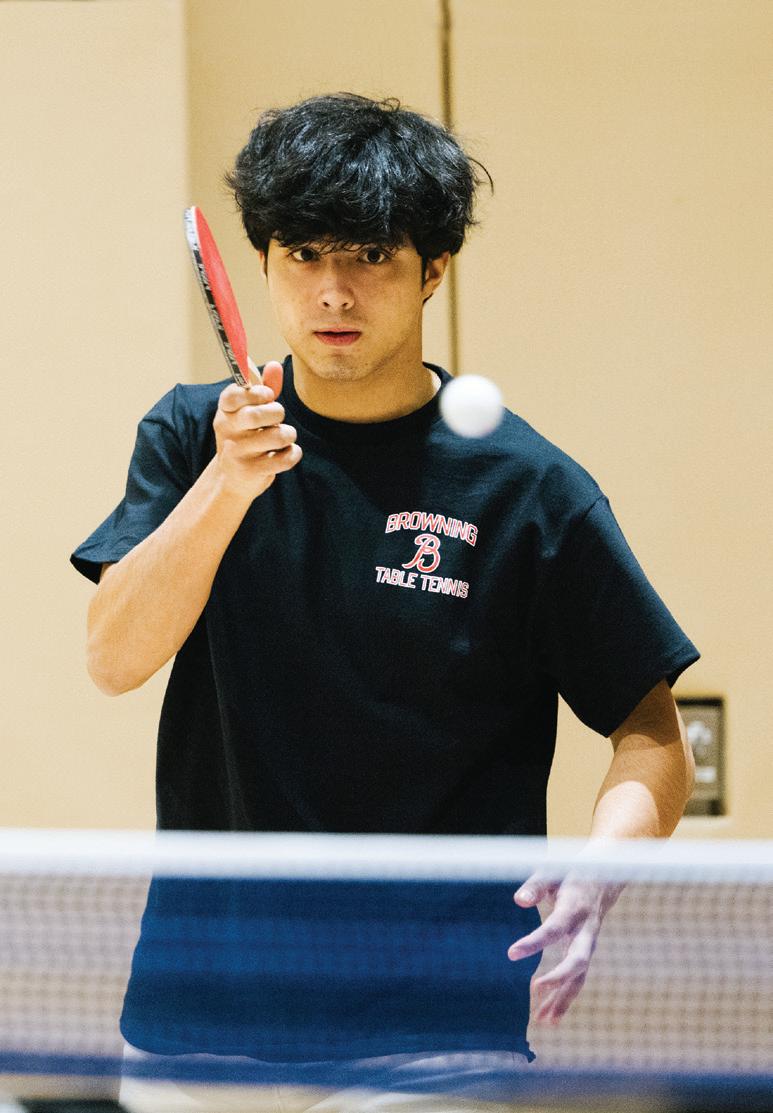


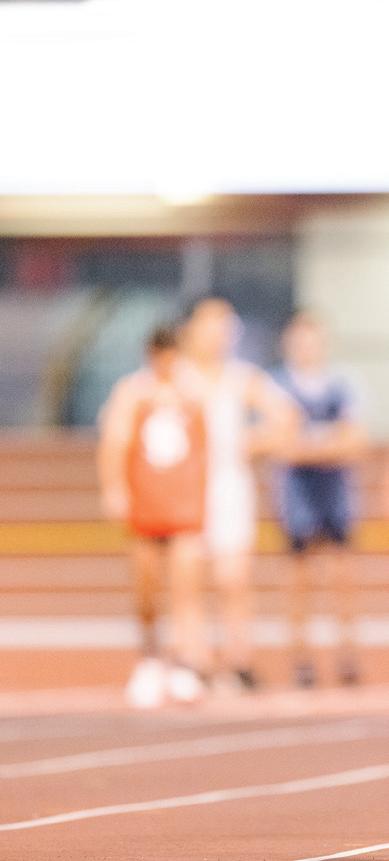
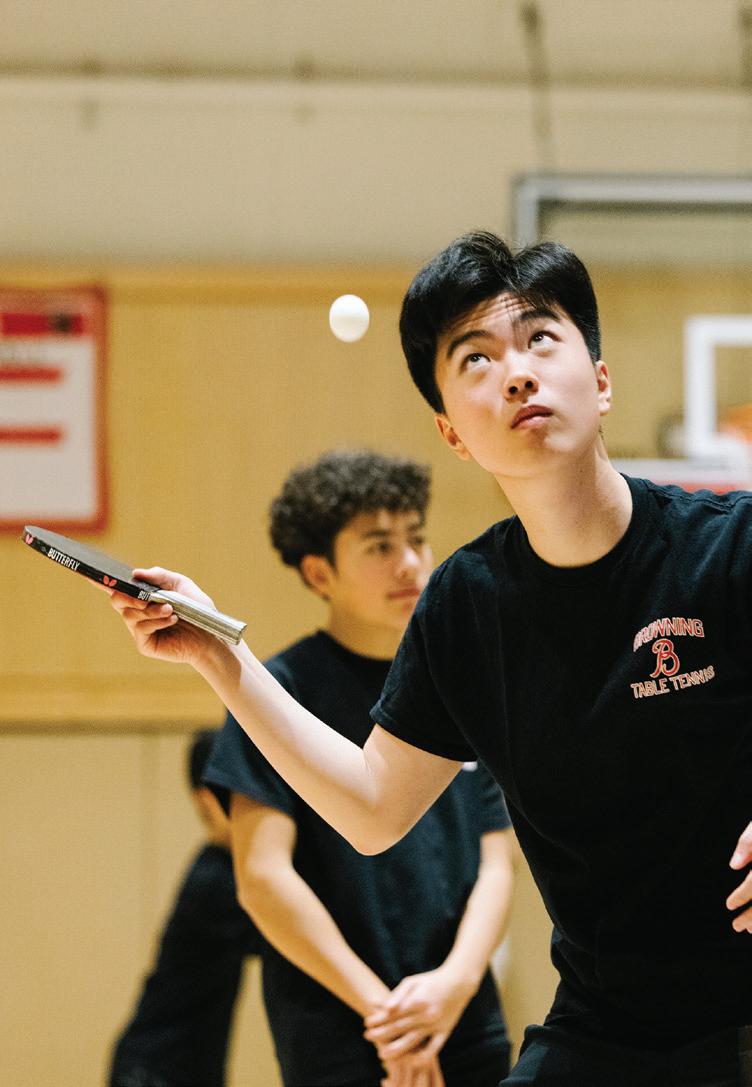
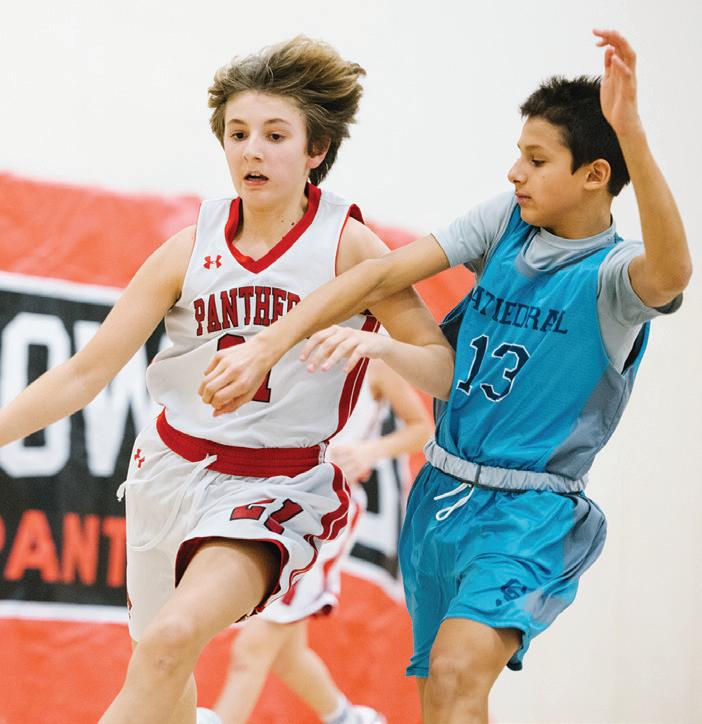
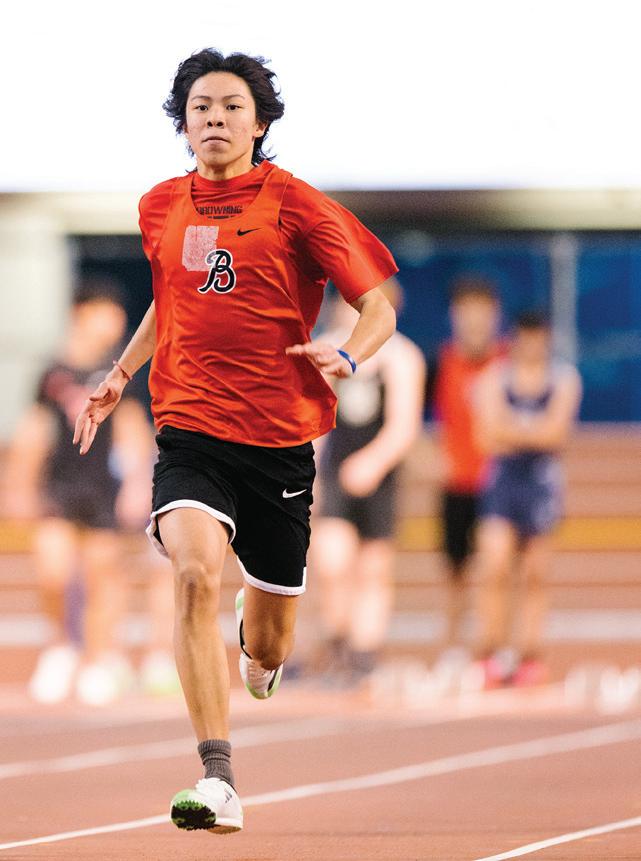
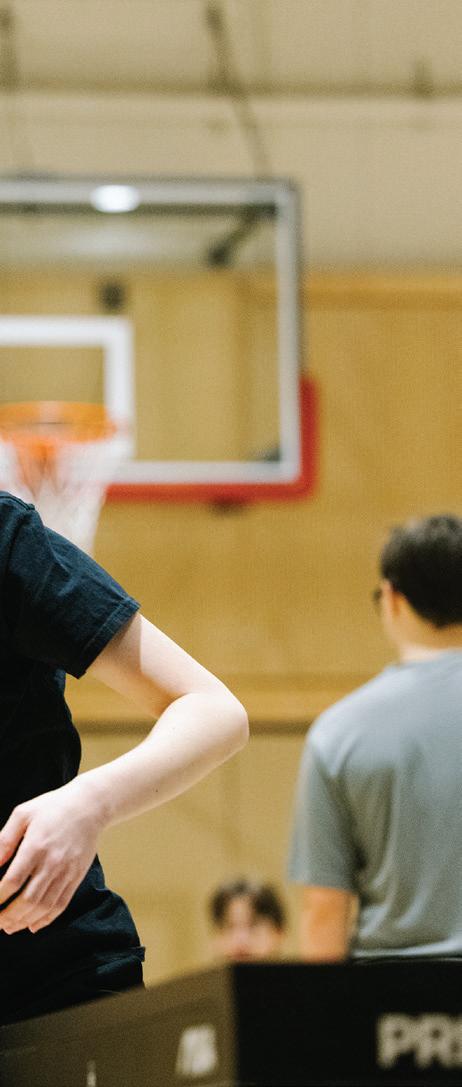
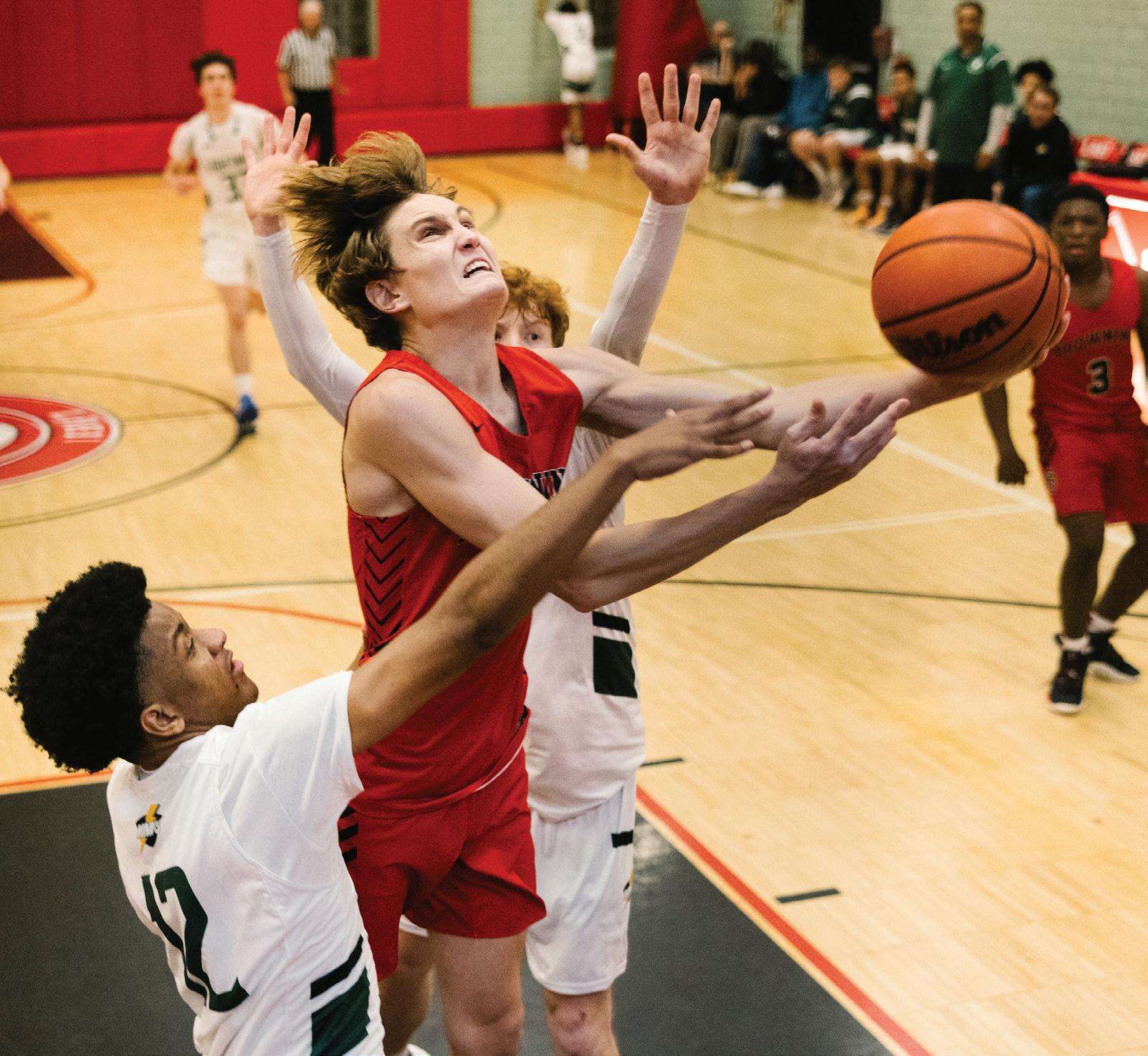
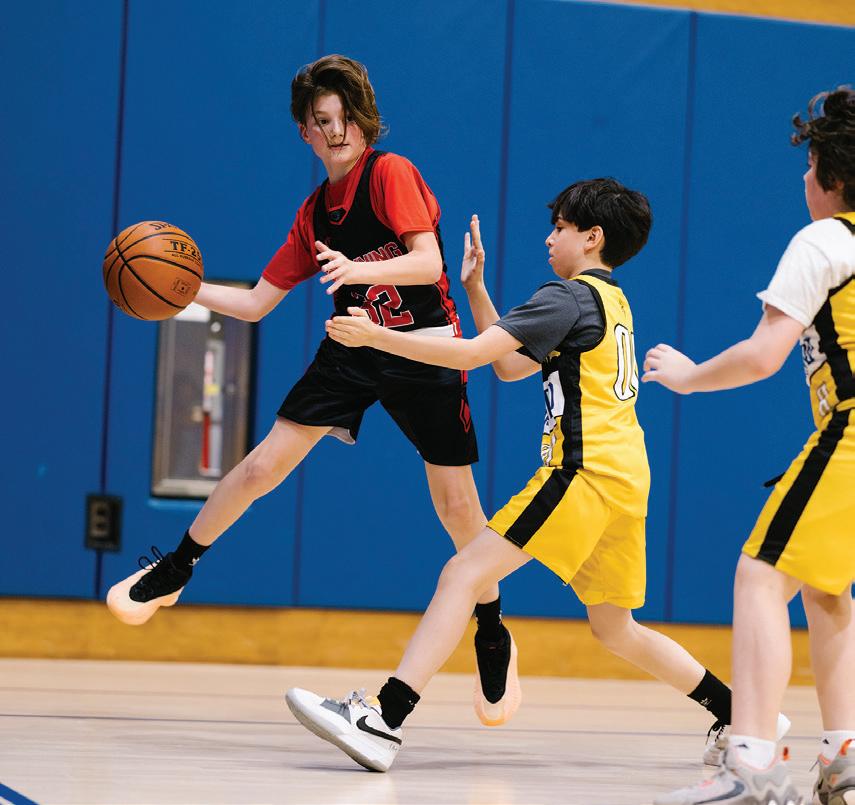
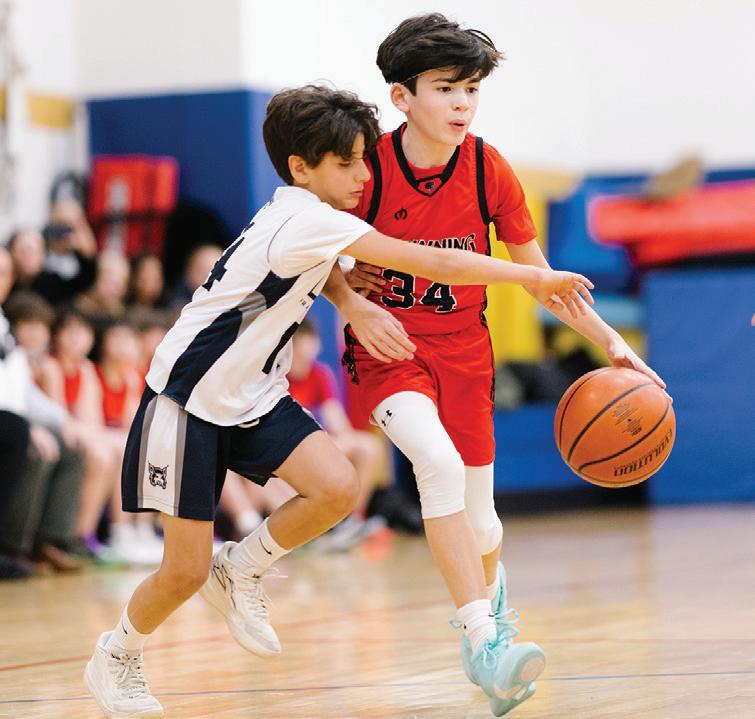
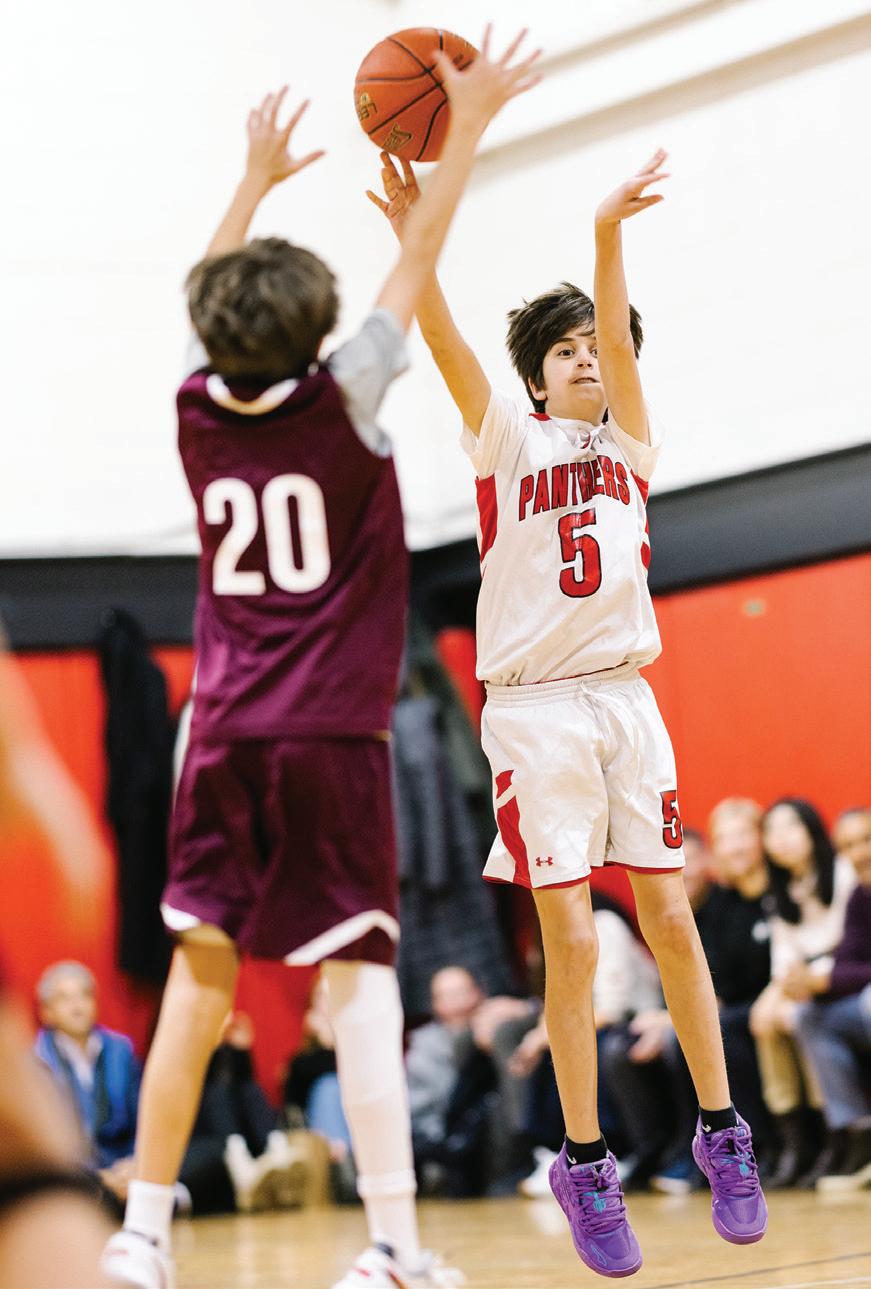
The Browning School Athletes
All our teams excelled this season, epitomizing the sportsmanship Browning is known for. The varsity golf team shone brightest, securing Browning’s first-ever golf championship by winning the NYCAL championships with a score of 150, narrowly beating Columbia Prep by one stroke. Varsity baseball ended on a high, defeating Calhoun in the NYCAL semifinals before a close loss to Columbia Prep. Varsity tennis
earned the prestigious Team Sportsmanship Award from the League coaches, with notable player improvement.
Our 7/8 baseball earned top of their division in a tie with Calhoun and UNIS. Additionally, varsity and 7/8 track both had impressive seasons, consistently improving and maintaining robust rosters, promising a bright future.
Thank you to all our Panthers and their coaches for their unwavering commitment!


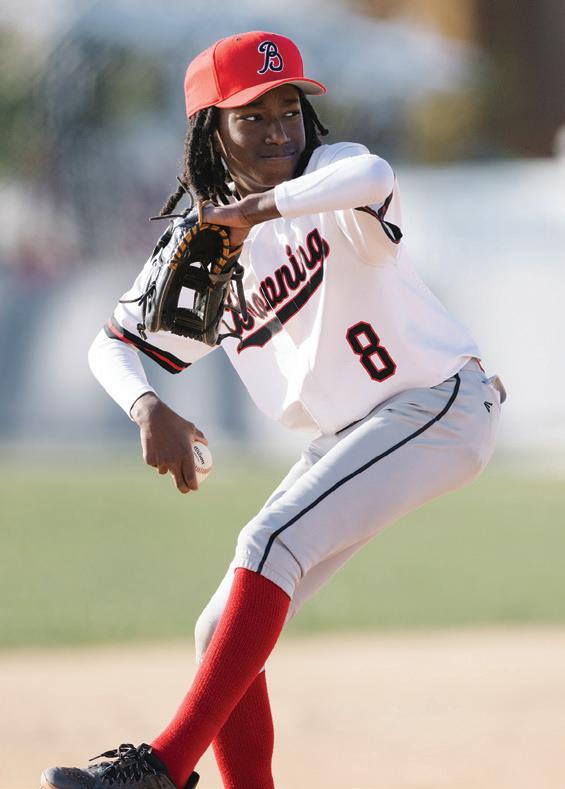
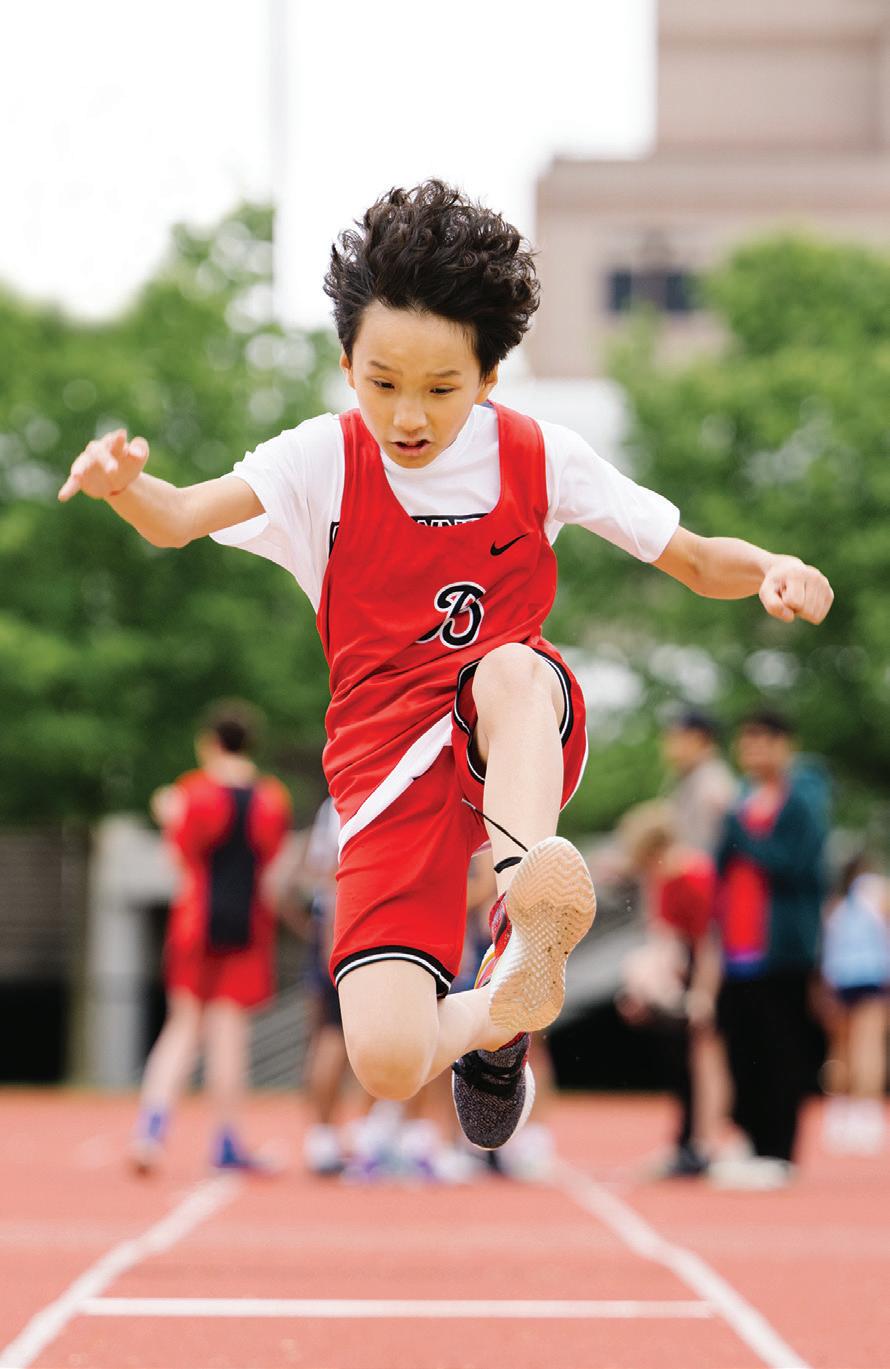
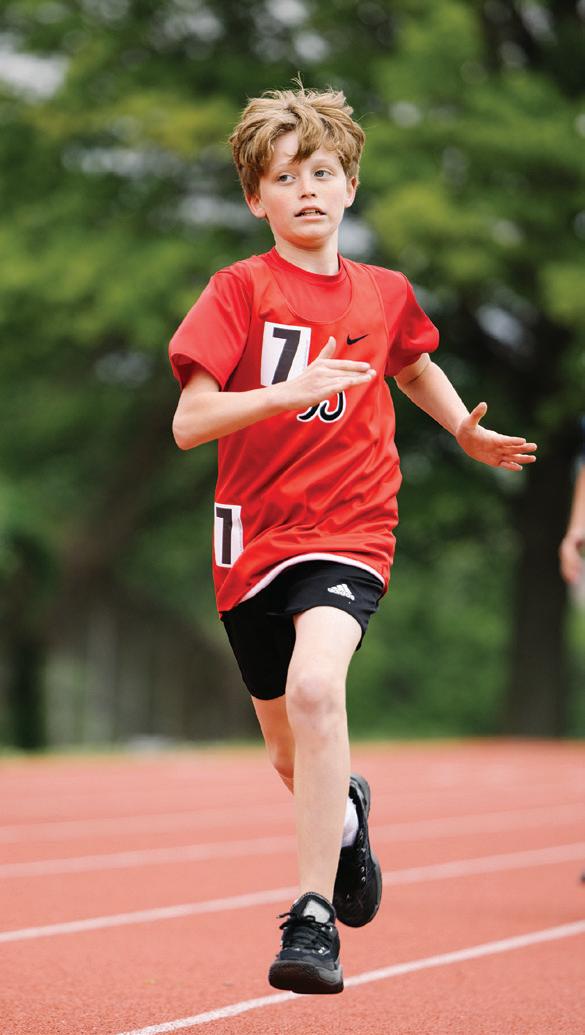


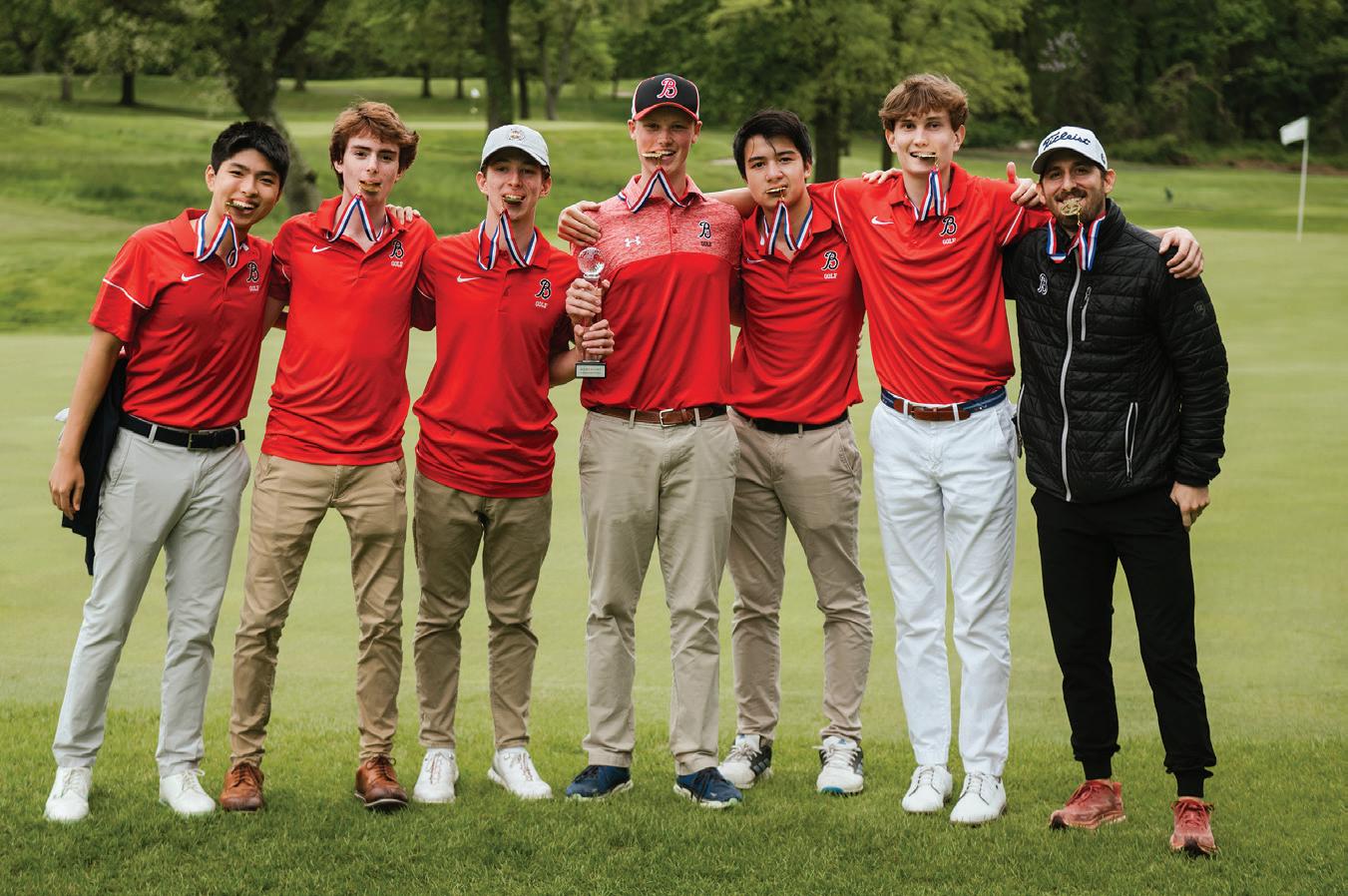
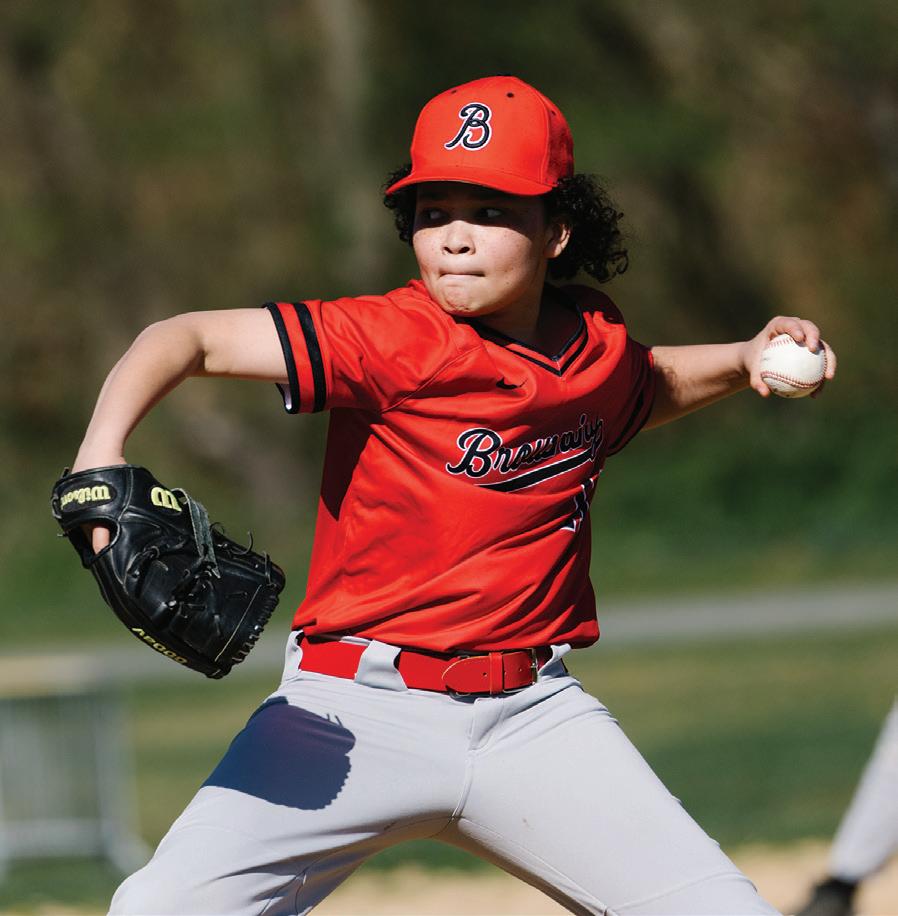
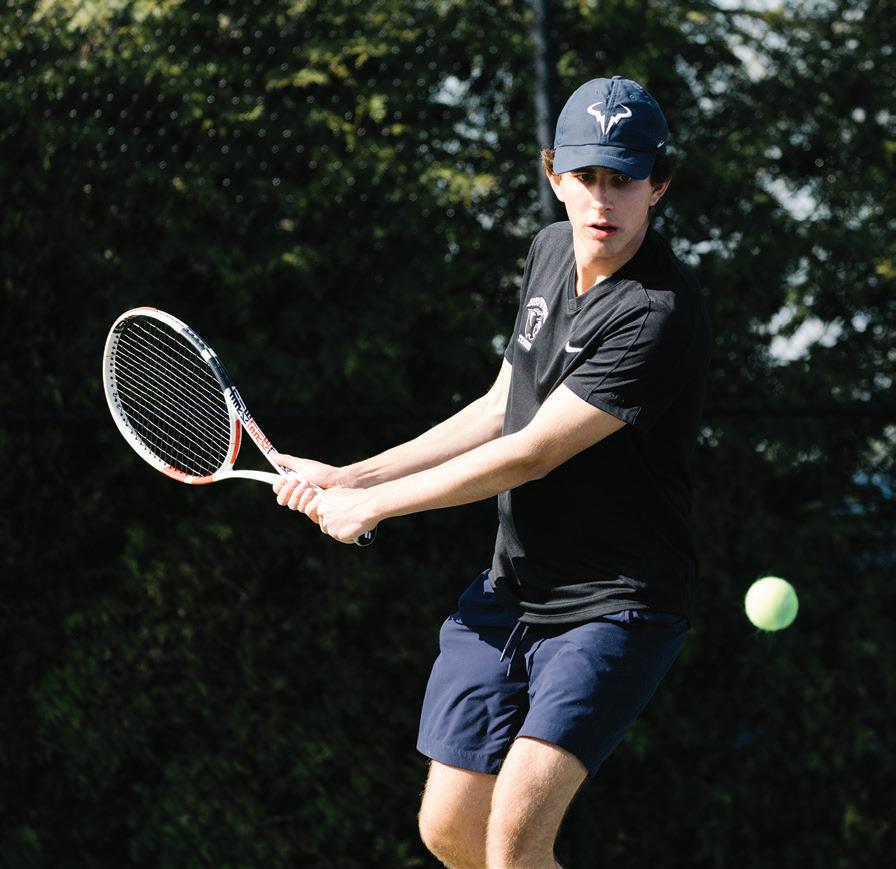



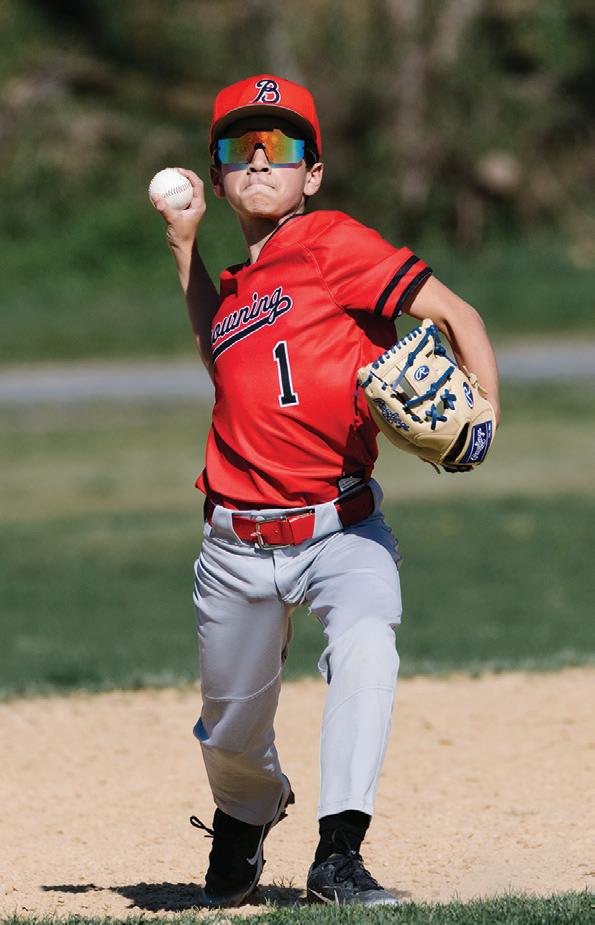

Deepening connections through therapy
IIt’s important that I approach therapy with a level of intentionality because being intentional and engaging with people is also a way of honoring the fullness of their humanity.
By Jan Abernathy Chief Communications Officer
n his family, Arthur Mensah ’15 is considered an “old soul,” having a composure that served him well when he moved from Ghana to attend The Browning School in Grade 10.
“I focused my attention on school and extracurricular activities and had specific goals on each front,” he said. “That made the idea of being in New York City, away from family, less daunting.”
Arthur, a graduate of Dartmouth College and Palo Alto University, moved to New York a year before his mother, a women’s rights and peace activist, joined him. He lived with a family friend while following a family tradition—several of his eight siblings attended high school in the US. Now a doctoral student in marriage and family therapy at Alliant International University in San Diego, Arthur credits Browning with inspiring some of the techniques he uses in his work.
“Writing has become a critical part of how I engage with the world and how I process a lot of things,” he says.“ I sometimes write poems for clients after reviewing my notes, to try to put their sessions into context. And the roots of that started in learning from Mr. Dearinger and Mr. Ingrisani and thinking about the impact of writing in touching human lives.”
a moment of grief or a season of grief or maybe even a life of grief. As I sit with people and they talk to me about how their grief unfolds, I constantly find myself learning.”
Such conversations can yield profound life lessons. “I had a session with a 16-year-old who said that in losing her father, she’s realized that there are certain impermanent things that we place too much emphasis on, and she doesn’t want to live her life pursuing impermanence. She wants to live her life pursuing meaning.”
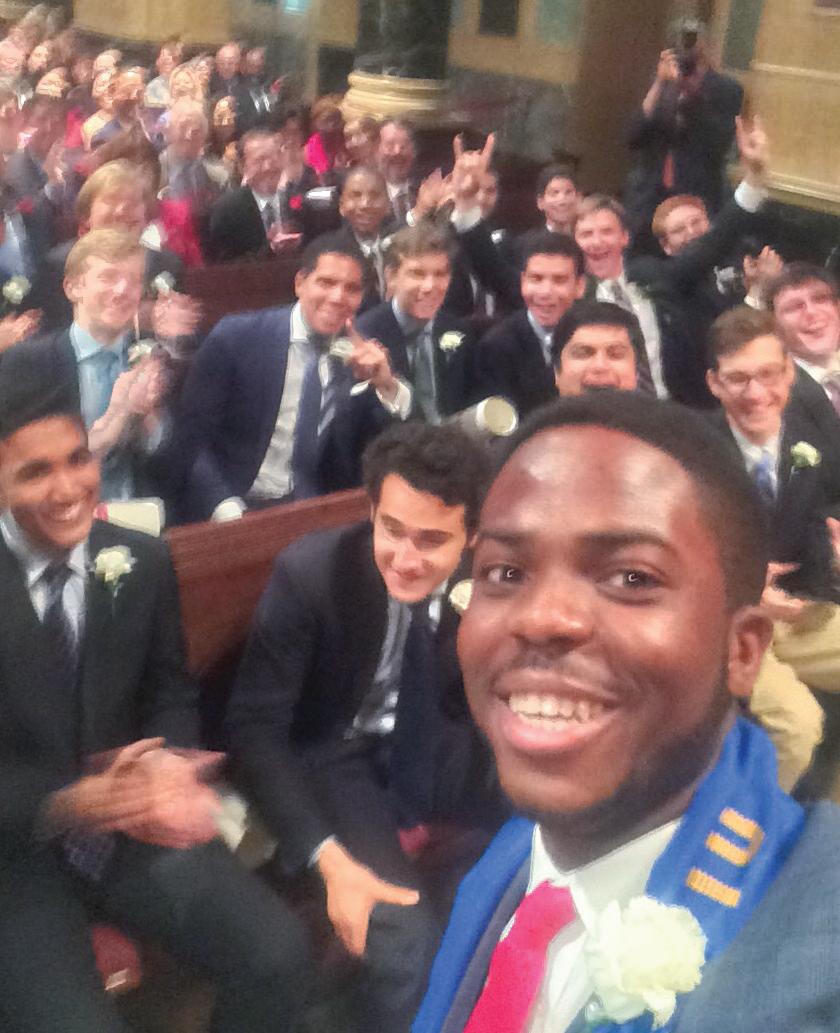
Some Browning faculty members also allowed him to see beyond a set career path. “Mr. Bernard, who was my French teacher and my track coach, provided an opportunity for me to see that you can have a career or job that’s worth pursuing, but you can also have passions outside of that.”
Now working at a hospice, Arthur says he sees his purpose as “an opportunity to mend broken things.” He notes that “working in hospice is an opportunity to shine light into dark spaces, to let people know that there are opportunities for hope beyond
He adds, “Hearing wisdom that people give to you in the midst of some of the hardest times is something to lean into because a life of purpose is a life of clarity, and it’s the fullness of experiencing love, both in giving and in receiving. So it’s important that I approach therapy with a level of intentionality because being intentional and engaging with people is also a way of honoring the fullness of their humanity.”
As someone devoted to helping people develop better relationships, it might surprise you to learn that Arthur hopes that someday his job won’t need to exist.
“There’s been a failure in teaching people how to do relationships well, that there’s an expectation that just because you exist in close proximity to people and you have conversations, it means you’re doing relationships well. My goal in my career is to find this work is no longer needed—to get people to a place where they’re leaning into the relationships in their lives, and not needing to pay for professional services to inform them how to form those rich relationships. Teaching people how to do relationships well is a way of hopefully moving society and moving culture towards a place where we can find value without having to spend our resources just to connect in a way that we should in relationships.”

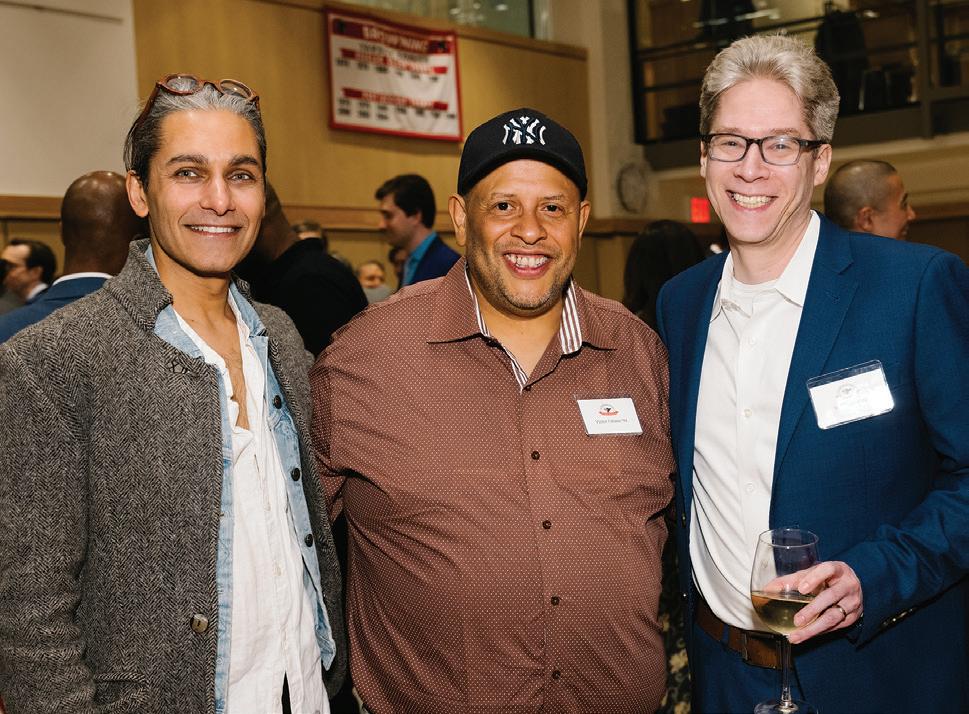
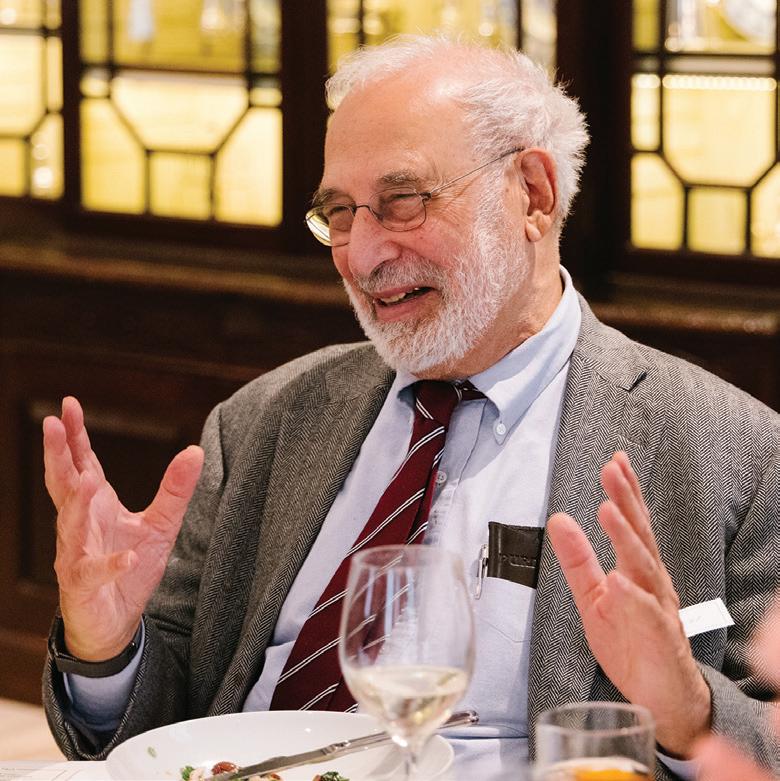

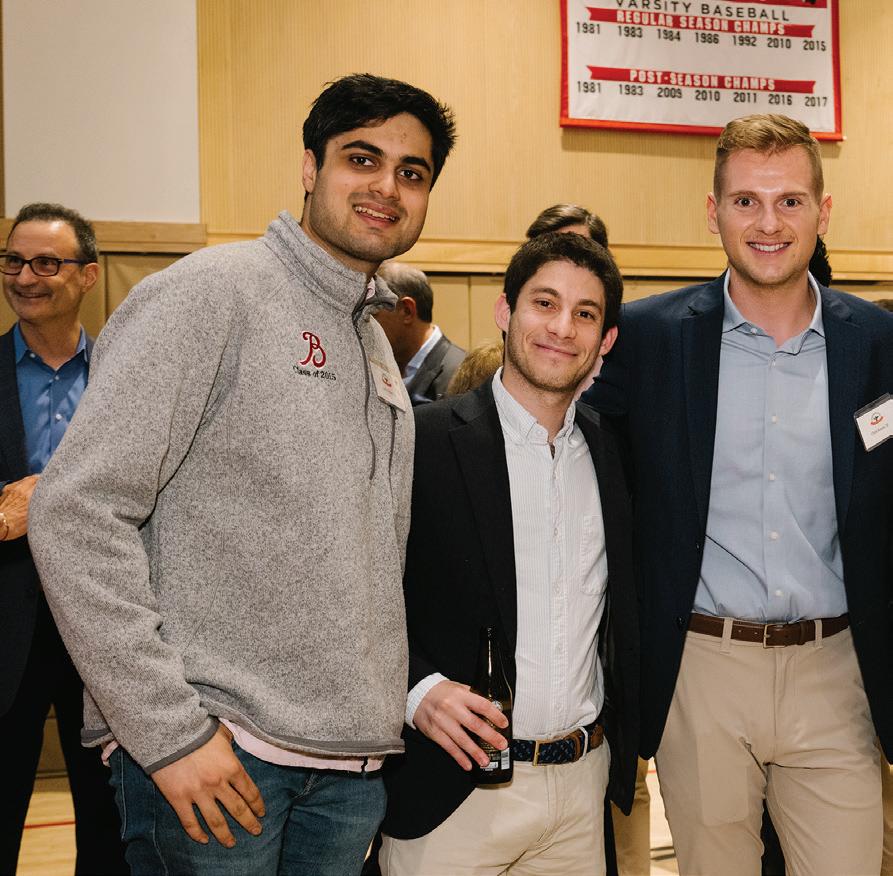
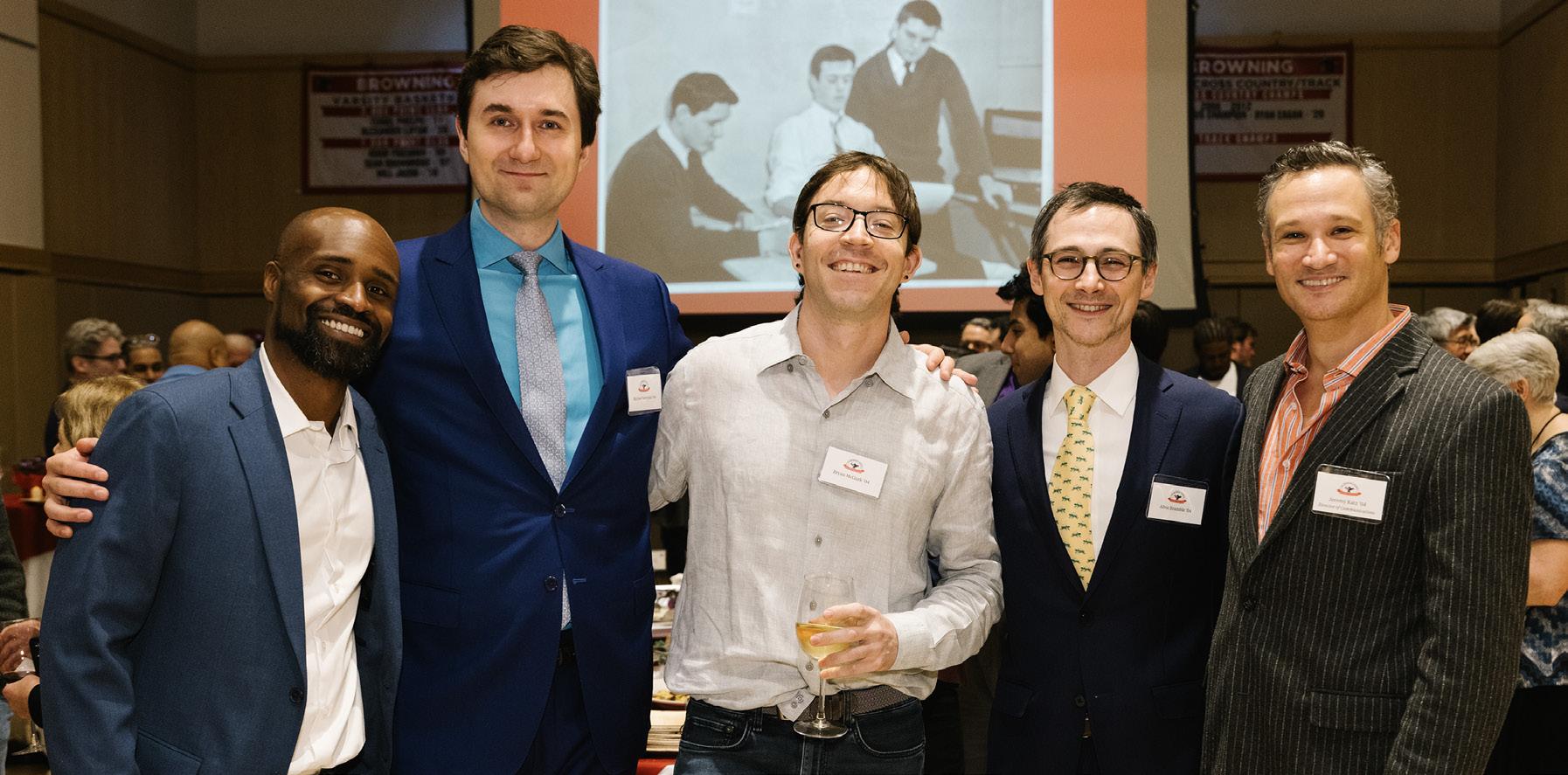
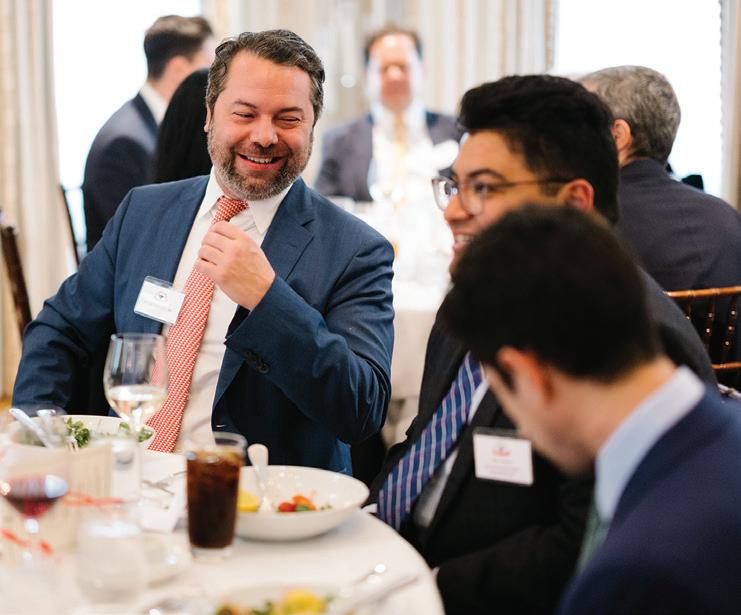
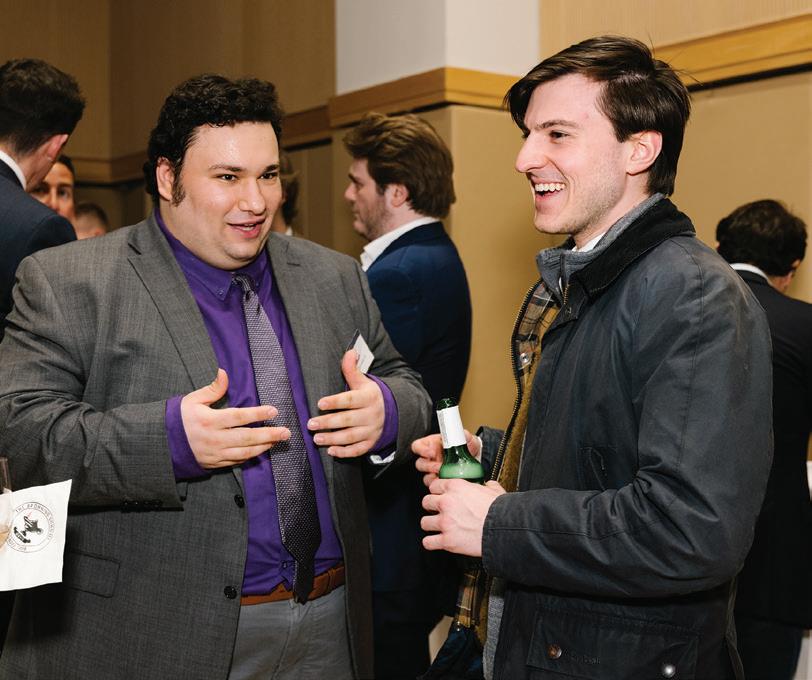
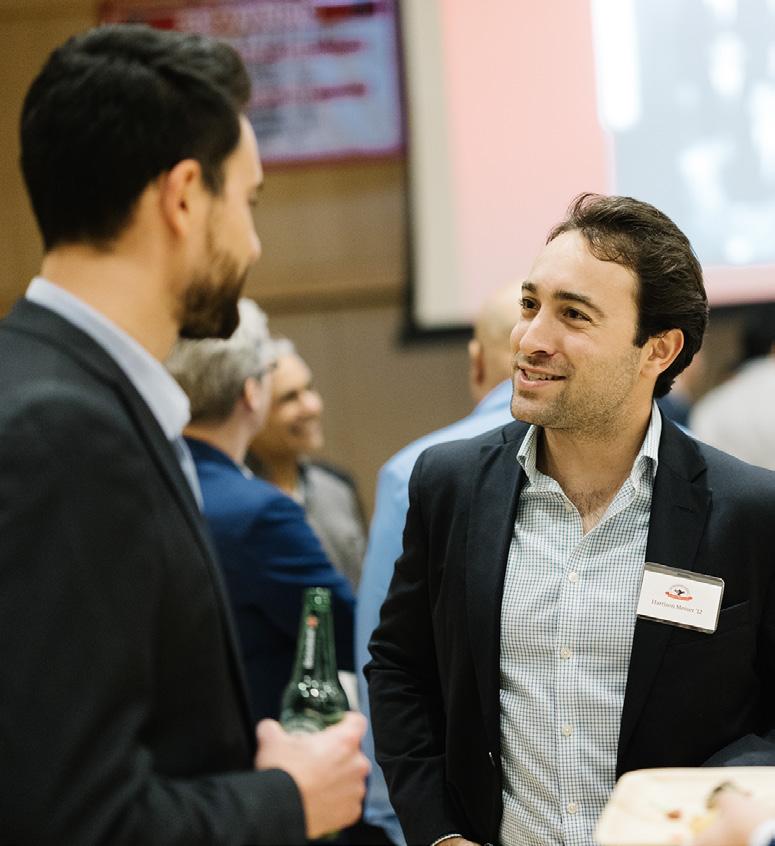
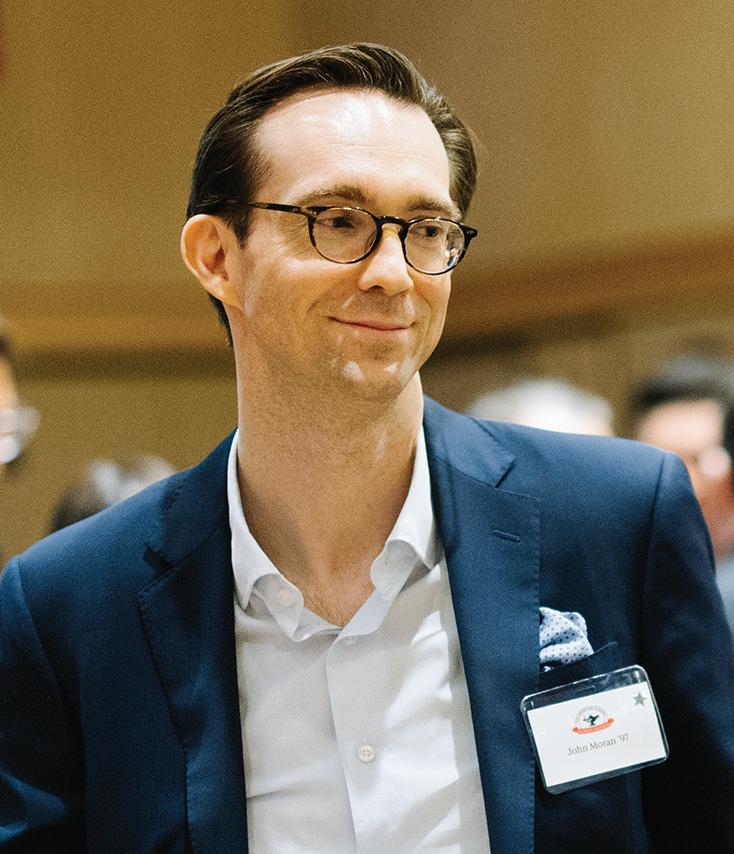
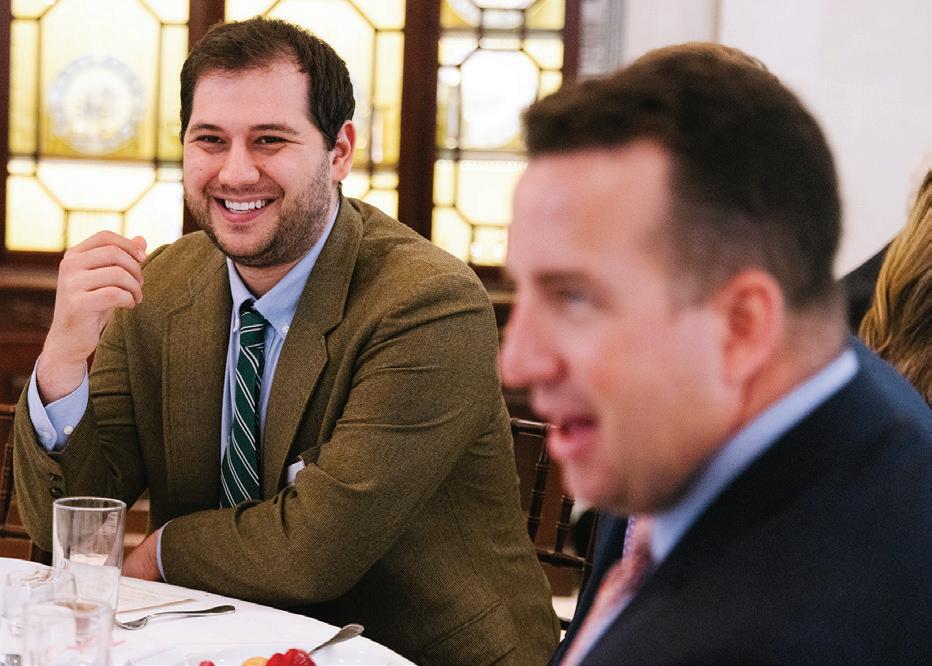
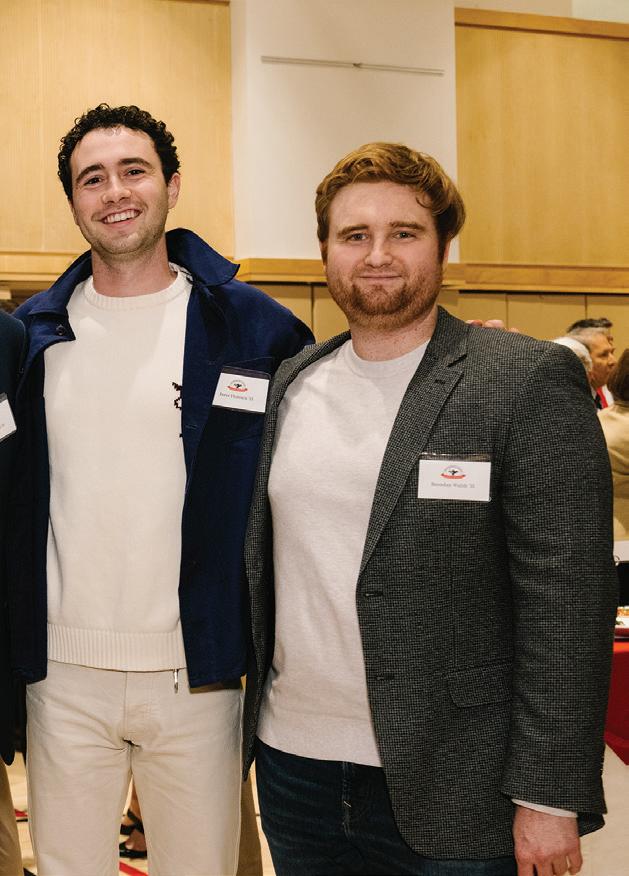
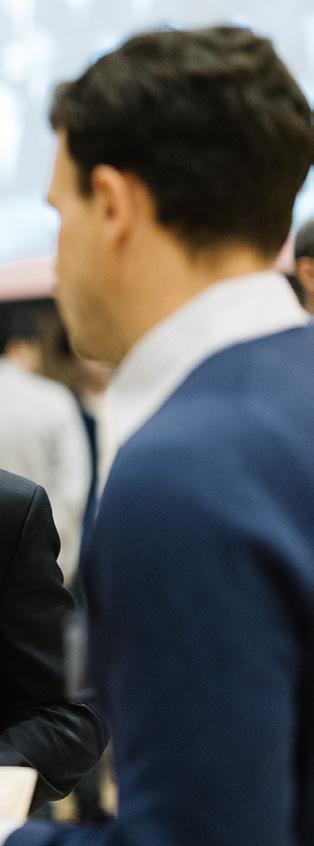
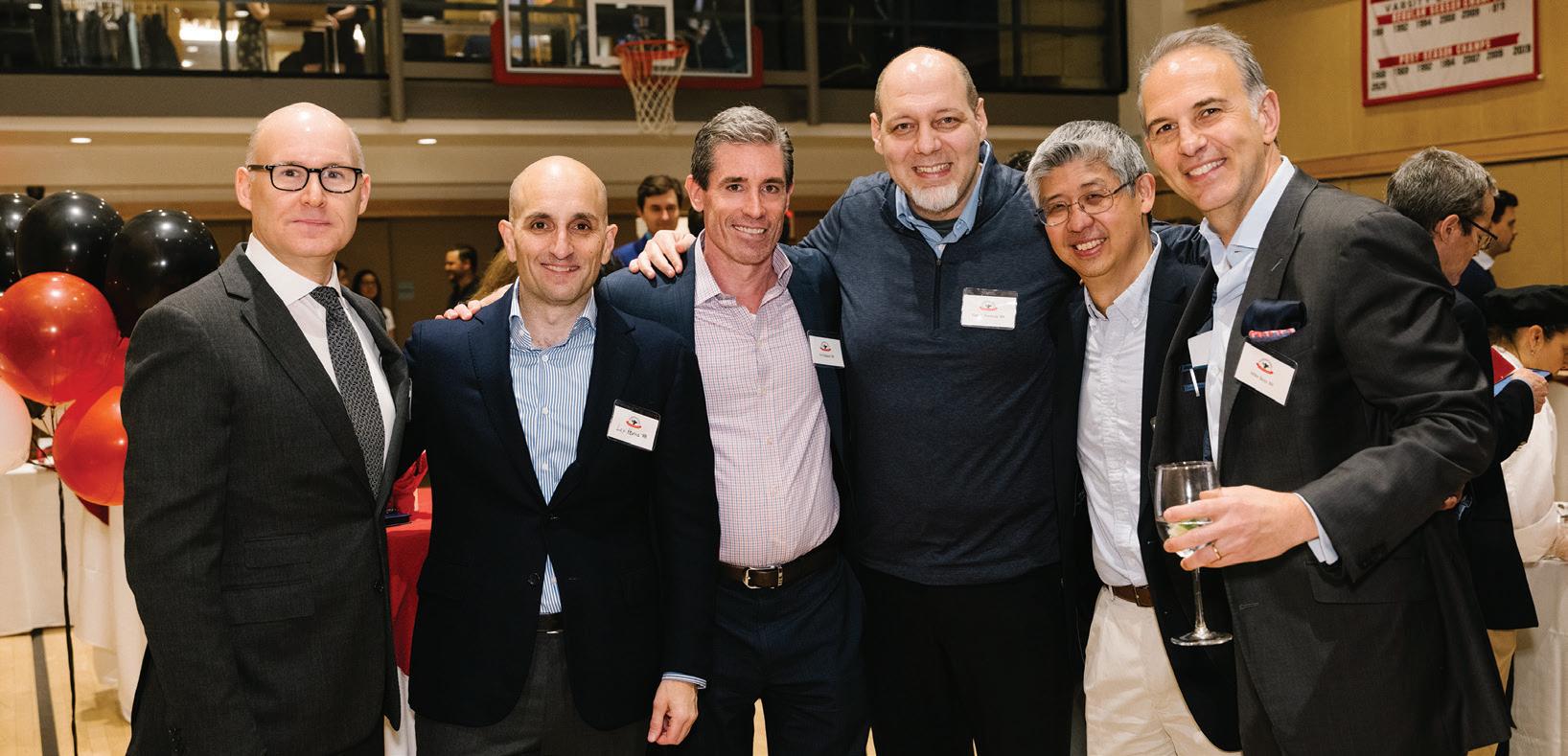
In April, alumni from across the decades returned to Browning for Alumni Reunion! Joined throughout the day by current and former faculty and staff, alumni had the opportunity to tour the 62nd Street schoolhouse, get a sneak peek at construction of the new Upper School campus on 64th Street, and celebrate a shared love of Browning with fellow alumni over food and drinks.
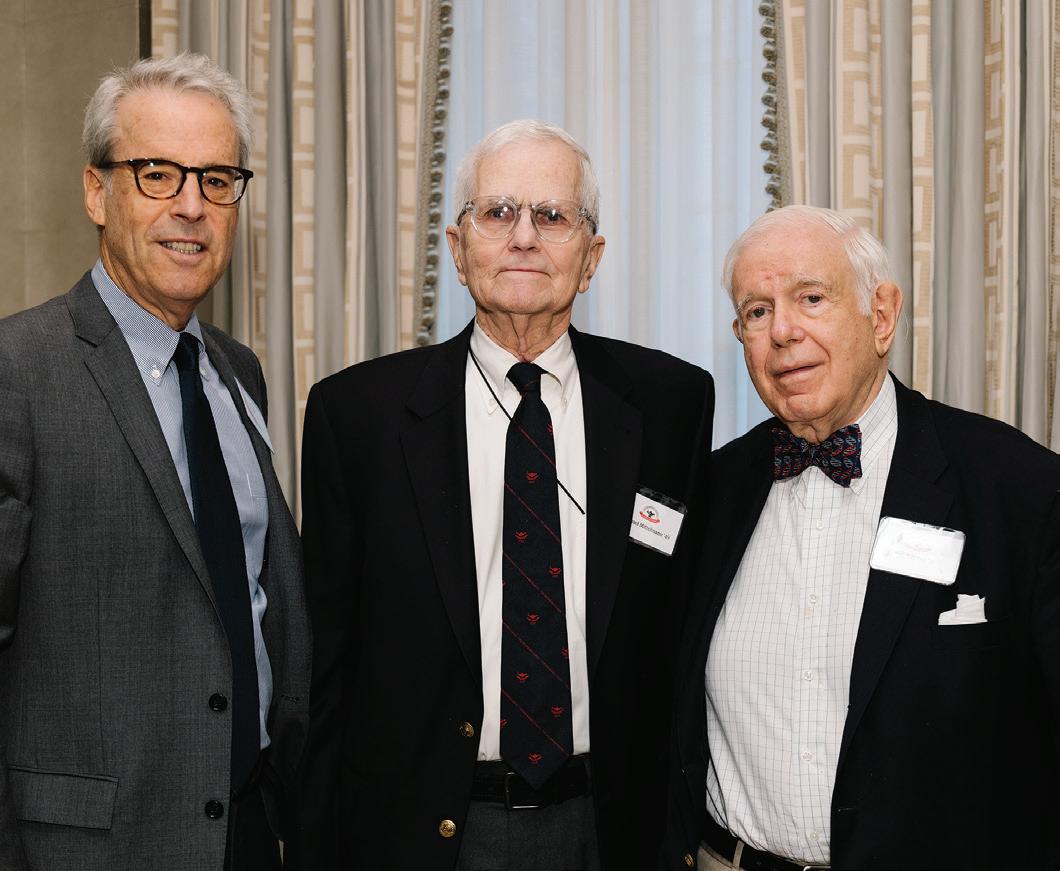
The day also featured a special Reunion Luncheon, where Director of Athletics Andrew West ’92 was awarded the 2024 Charles W. Cook ’38 Alumnus Achievement Award. We look forward to seeing everyone again next year!
View more photographs of the event at browning.edu/alumninews.
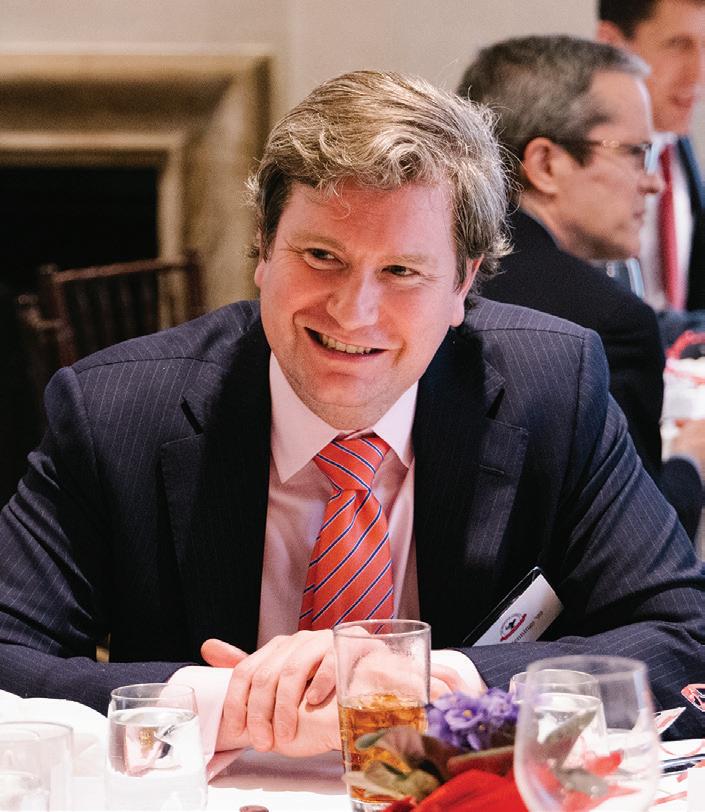
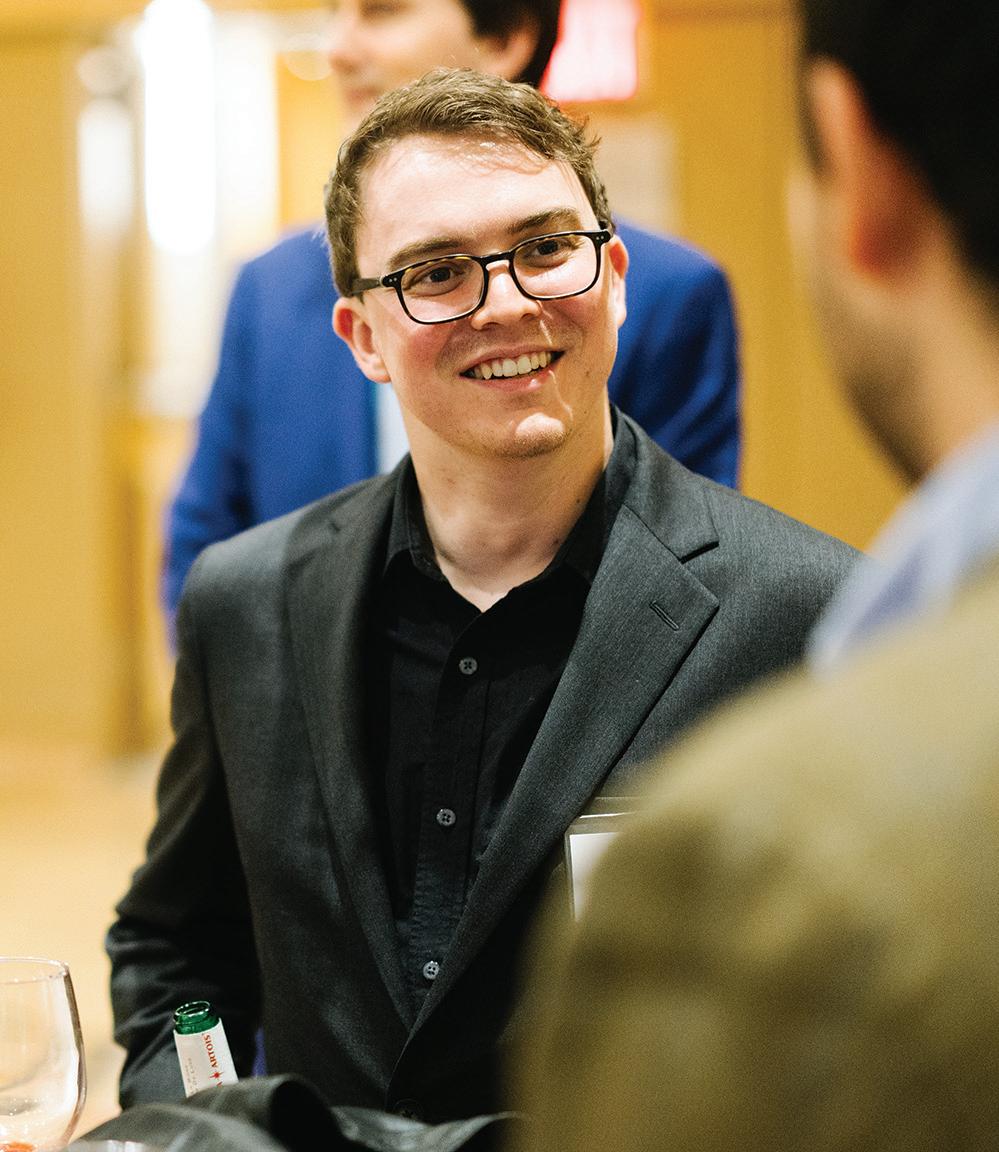

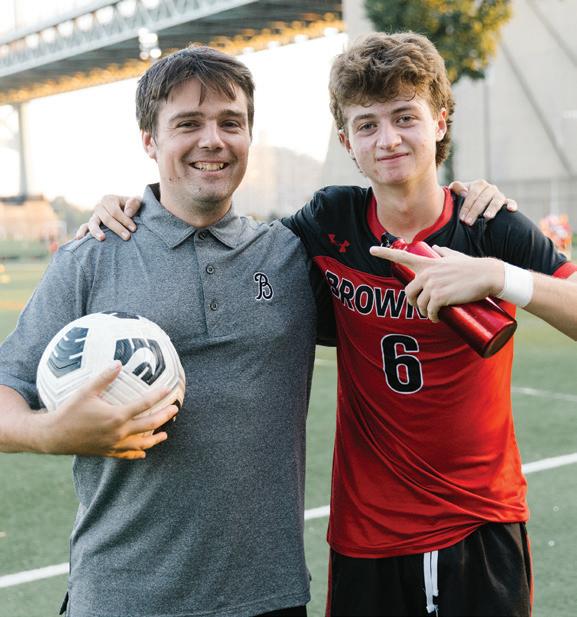
Young alumni embrace mentorship and purposeful engagement at Browning

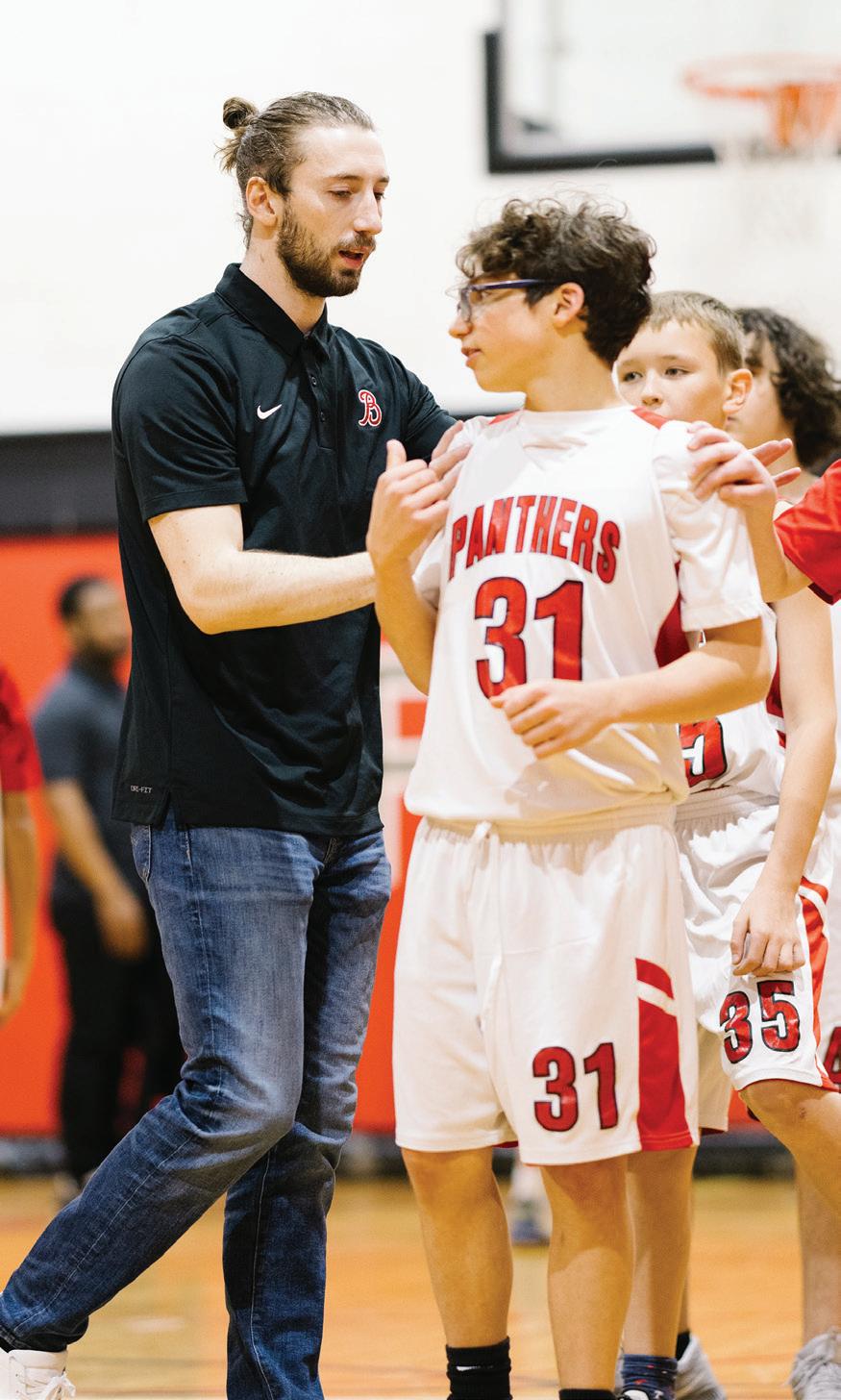
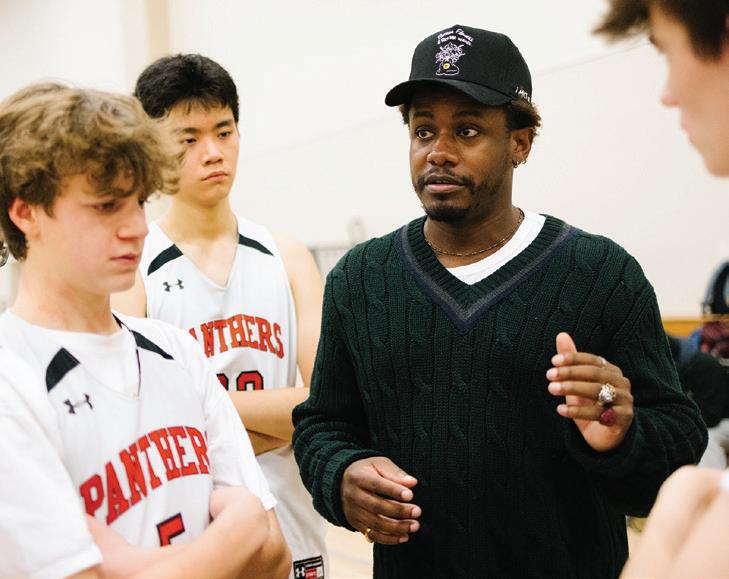
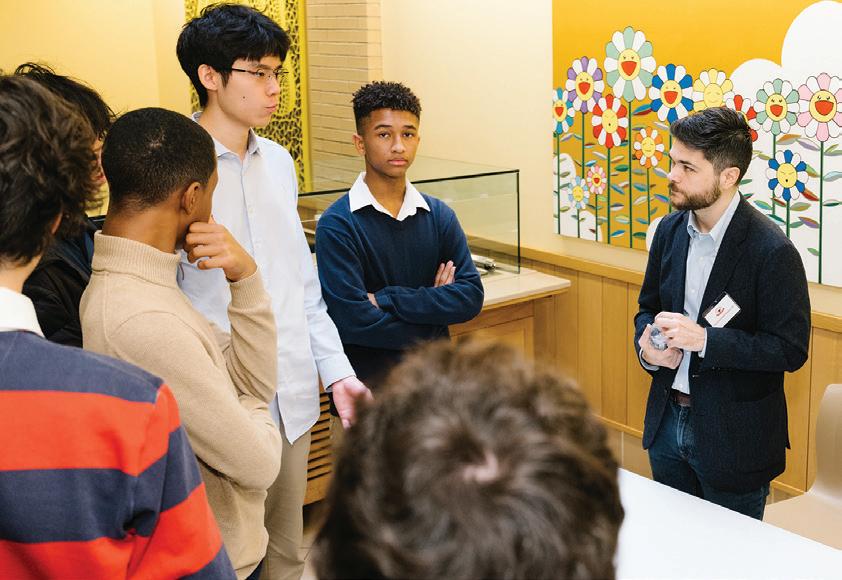
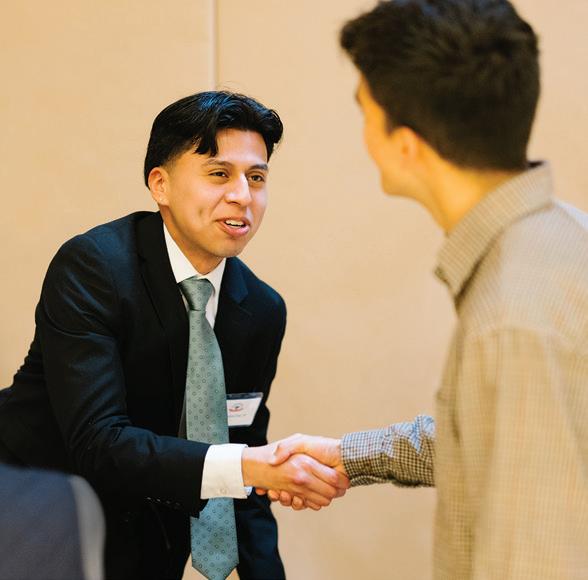
Browning alumni have always been eager to mentor and guide the next generation, thanks to the profound sense of purpose instilled in them by the School. This year there’s been a notable surge in the ways that alumni have been getting involved to give back.
A record number of Browning alumni coached their former teams in the athletics program last year. Chris Haack ’14, a former Major League Soccer staffer and California Institute of Technology soccer captain who assisted Browning’s varsity soccer team these past two years, sees the direct connection between sports training and life opportunities.
“I believe that through training and practicing, you can become better at anything you’re passionate about,” Chris says. “It makes me incredibly proud to see the students take themselves and their interests that seriously.” In addition to coaching, Chris has worked in data engineering. “Browning prepared me to lead by nurturing a penchant for risk-taking and tech innovation,” he says. “In business, genuine connections are key; collaborators value not only technical skills but also compassion and relationship-building prowess. Browning taught me how important it is to maintain those relationships later on.”
Terrel Phelps ’11, who netted over 2,000 points as a student-athlete, has coached multiple Browning basketball
By Jeremy Katz ’04 Director of Communications
teams over the years, most recently the JV squad. He’s formed strong connections with the current students who admire and seek his guidance on and off the court.
“It means everything to be an integral part of boys becoming men,” Terrel says. “I am teaching real-life lessons on the court that transcend basketball. As a former student, I can understand the boys and fill the gaps in places a classroom teacher wouldn’t be able to.”
Beyond athletics, the Panther Partners initiative has been another opportunity for young alumni to foster the Browning brotherhood and positively impact lives. Launched last spring, this program offers current Middle and Upper School students valuable opportunities for collaboration and support. Membership has already begun with Farouk Oni ’13, who coached basketball for Grades 5 and 6 last winter, with further expansion anticipated next year.
“These are men with a desire to help a fellow Browning Panther by sharing the tips and tricks they learned for being successful in college and beyond,” Naledi Semela, Director of Equitable Practices and Social Impact, says. “We believe that their involvement in a boy’s life can enhance a student’s academic performance while providing alumni satisfaction by impacting a young man’s journey.”
The Career Day segment of last spring’s Alumni Reunion brought Upper School
students and alumni together for robust conversations about college, the working world, and life after Browning. Alumni from diverse fields, including the arts, business, education, engineering, law, politics, and tech, shared their insights with our Upper School students.
“It feels right to give back to a community that has given me so much, especially if it means building connections with students from underrepresented backgrounds,” panelist Raymond Diaz ’19 says, who is an apprentice teacher at New Canaan Country School. “I encouraged the Upper Schoolers to explore their passions and embrace a growth mindset for learning opportunities. One should use one’s purpose to uplift and create opportunities for others.”
The tradition of young alumni returning to work at their alma mater is nothing new. For Director of College Guidance Sanford Pelz ’71, what began as a temporary plan to teach math and physics for just a couple of years turned into a lifelong commitment spanning nearly five decades at Browning.
“I’ve long advised students to seek careers that combine what they’re good at, what they enjoy, and what pays well. It’s rare to find all three,” Sandy says. “But recently, I discovered the Japanese concept of ikigai, which emphasizes adding purpose to one’s life that also benefits others. I’ve found my ikigai at Browning.”
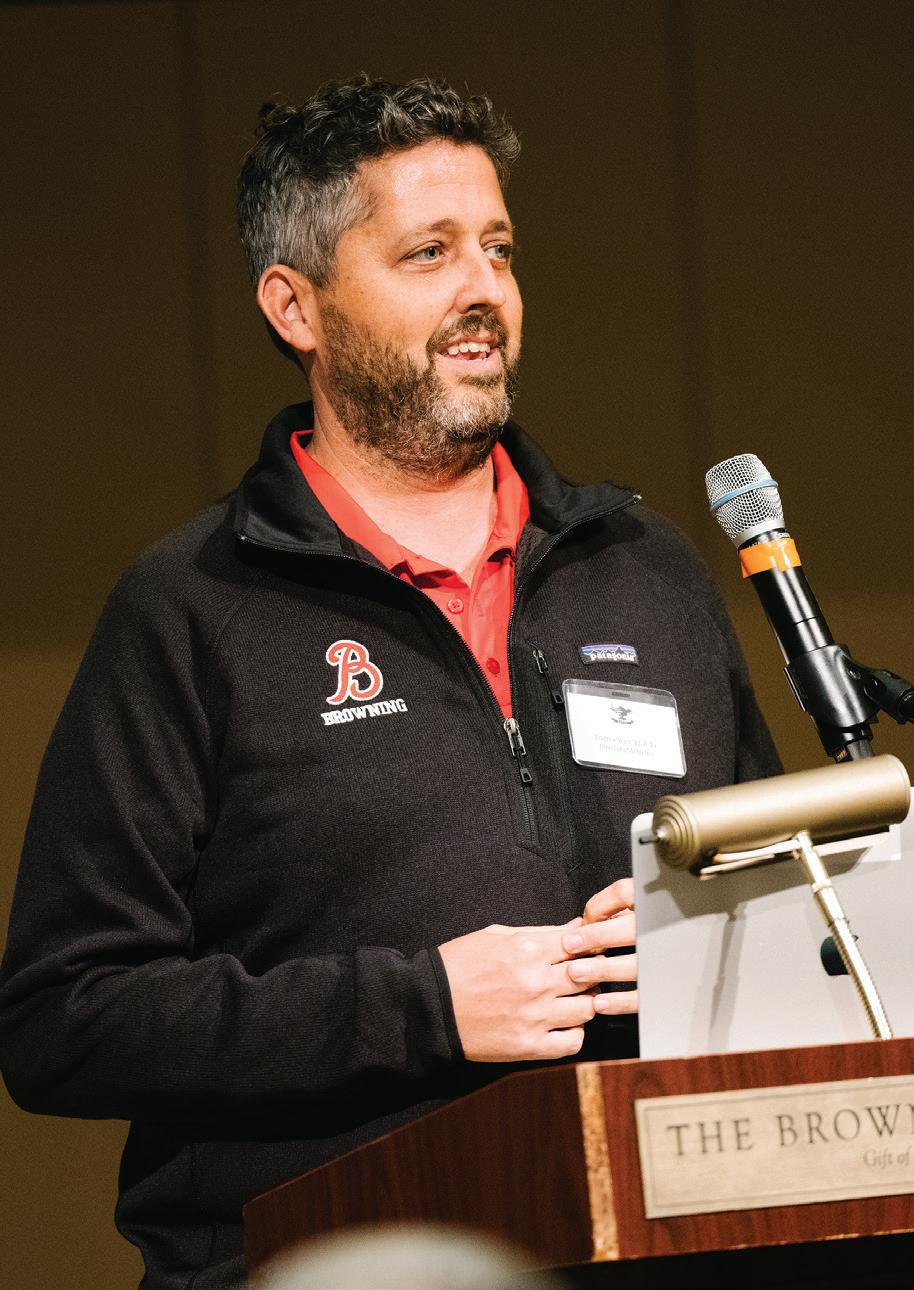
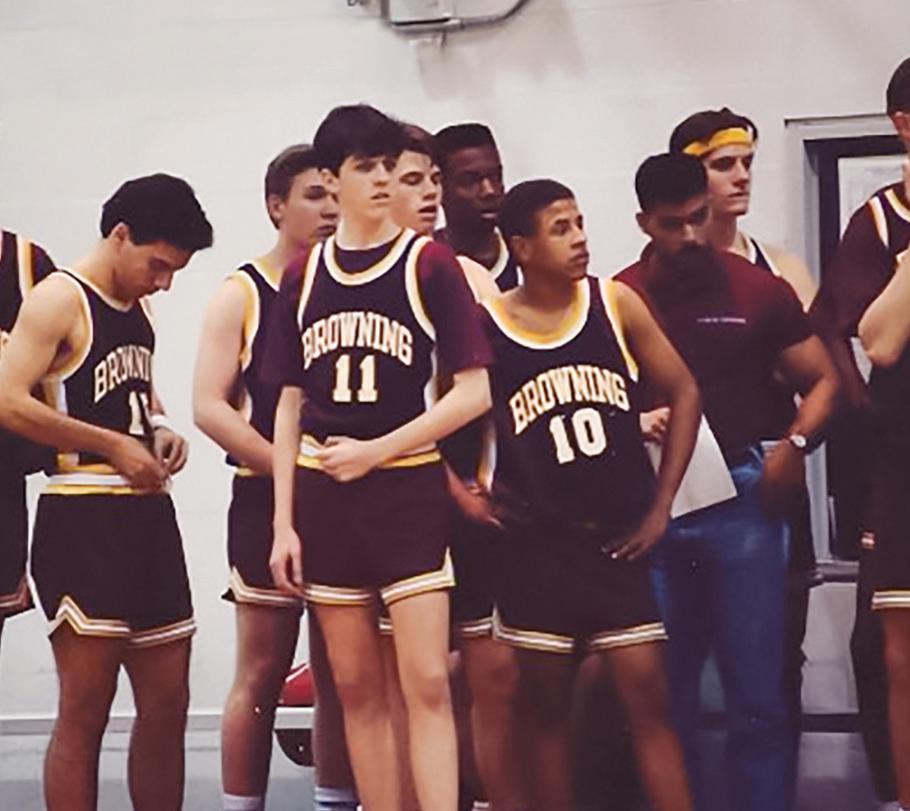
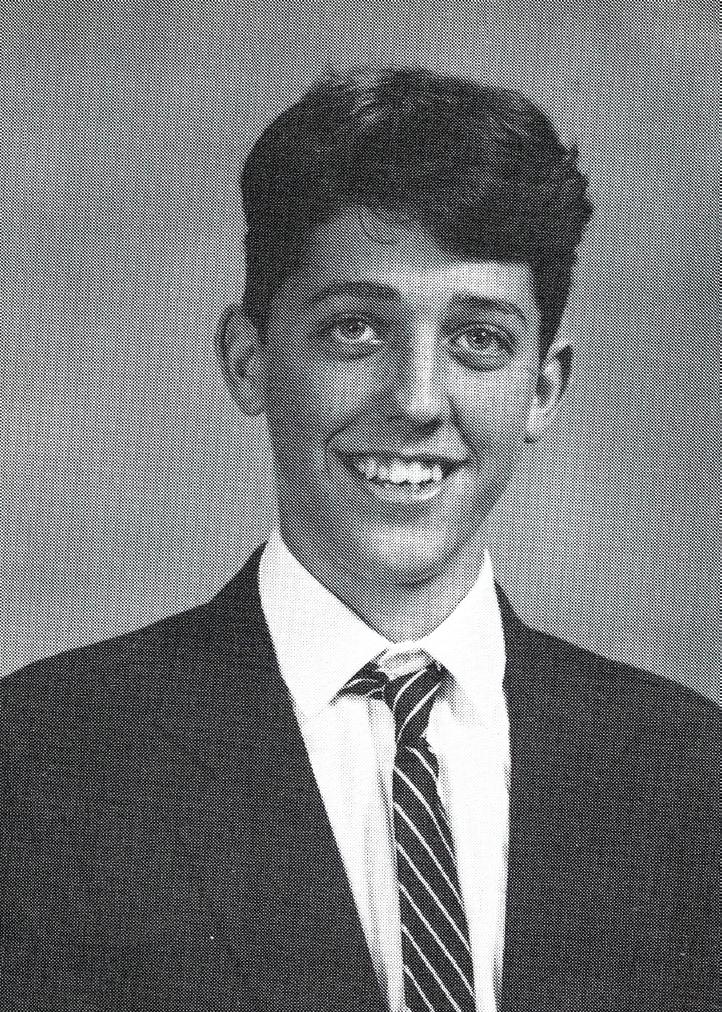
The Charles W. Cook ’38 Alumnus Achievement Award, established in 1991 in honor of Browning’s fourth head of school, is presented to alumni displaying the finest qualities of citizenship and distinguished achievement, in either the private or the public sector. Our 2024 recipient is Andrew West ’92, Browning’s Director of Athletics. He attended the School from 1986–1992, returned to serve on the faculty in 2000, and since then has served on the Alumni Council and successfully organized sporting events for both students and fellow alumni. In honor of his award, Coach West answered three questions to reflect on his time at Browning.
What is a favorite memory from your time as a student?
In reflecting on my time as a student at Browning, it is very hard for me to pinpoint a single favorite memory. I have vivid recollections of many baseball and basketball games (some culminating in championships), as well as the profound connections that I shared with my classmates, and also with teachers, such as Coach Suds, Coach T, Mr. Pelz, and Mr. Turner. What unifies all of my experiences and memories is these profound relationships, which is very much in keeping with so much of what Browning stands for. Notably, my best friend in Grade 7, Mike Anselmo, remains my closest friend even after more than 35 years. (We were college roommates as well, despite Mr. Pelz’s advice not to be!)
What makes you excited to continue working as a faculty member at Browning?
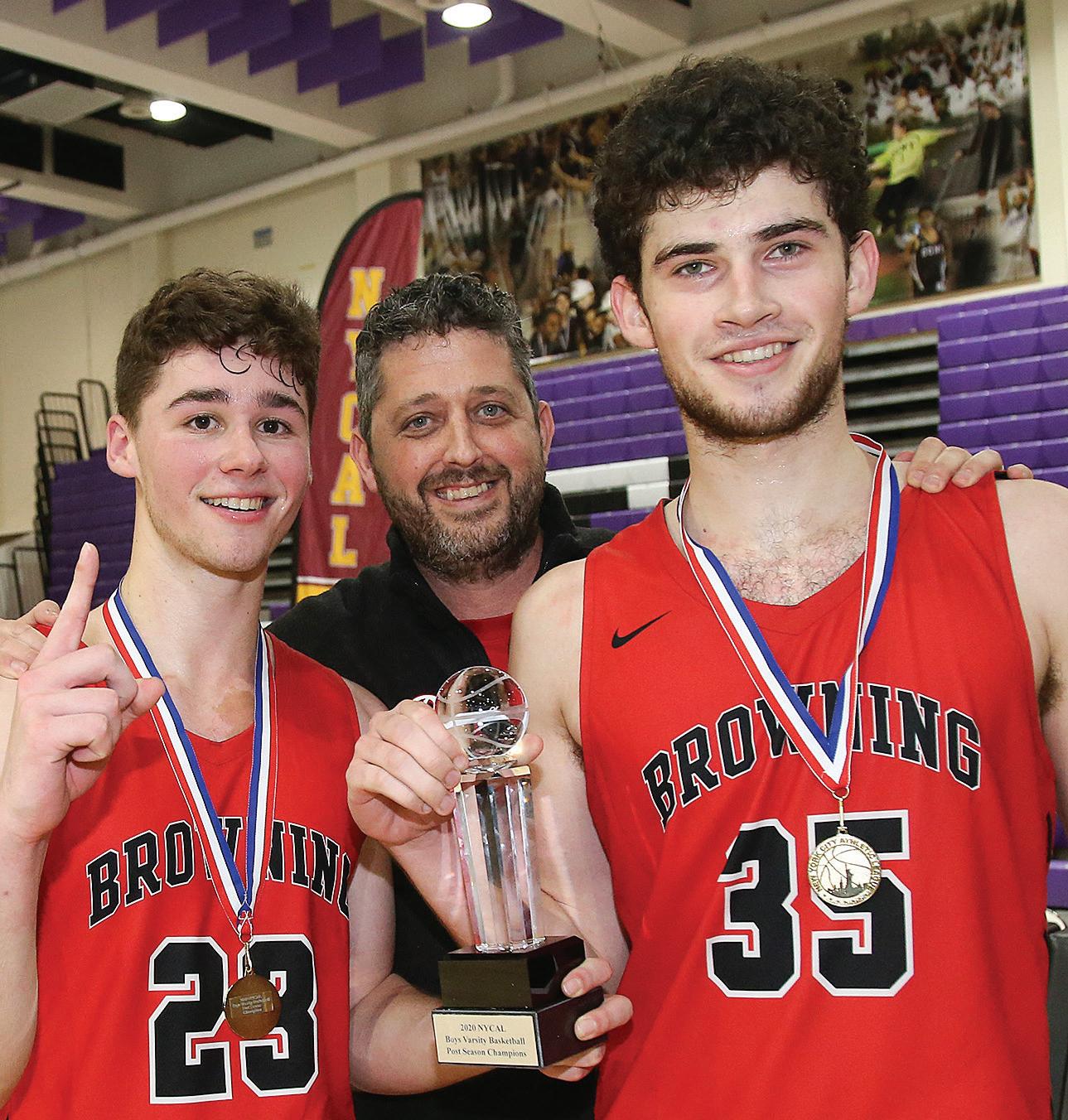
Like many young boys, growing up I aspired to become the second baseman for the New York Mets. I’ve had a deep passion for sports since childhood, and the prospect of representing my hometown heroes was the ultimate dream. While the Mets undeniably hold a special place in my heart as a professional team, my ultimate allegiance lies with the Panthers. As such, the opportunity to spearhead the athletics program at Browning continues to excite me and make me proud on a daily basis. While it is common to dread the arrival of Mondays, I actually find myself anticipating each day at Browning. I truly value the collaborative work with the other coaches, and I love working with the athletes I oversee and being a part of the Browning community as a whole.
What values did you learn at Browning that helped shape the rest of your life?
Since Browning was even smaller during my time as a student, it was impossible to hide—passive observation was not an option; you could not just sit in the back and coast through. Browning instilled in me the essential skills of attentive listening, respect for diverse viewpoints, and the courage to assert my own beliefs. While Browning has undoubtedly evolved over time, its unwavering commitment to cultivating moral character remains. I firmly believe that Browning excels in cultivating the leaders of tomorrow, and I am honored to be counted among their ranks.
Jeff Blanchard ’77 shared that Wilcox Snellings ’77 was inducted into the US Backgammon Hall of Fame at the Hyatt in Jersey City on January 6. “Among an appreciative crowd, including family and prominent figures in the backgammon world, Snellings also claimed victory in the New York City Backgammon Championship, featuring the largest US field in 30 years. Described as ‘one of the finest players in the history of backgammon’ and ‘the most feared money player on the planet,’ Snellings made a significant mark during the event.”
Charles Ashdown ’79 shared, “My wife, Philomena, and I are expecting our first grandchild in May. Last year, our eldest daughter tied the knot, and although she and her spouse reside in Manhattan, they spend a significant amount of time with us here in Cincinnati. I also earned a notable professional accolade recently, I was named ‘Lawyer of the Year’ by Best Lawyers®.”
From Joe Bucceri ’79 (left): “I retired in March 2023 and, while still doing some consulting, have been traveling. I took up boating years ago, and in 2021, we bought a trawler for extended cruising. In June 2023 we began our Great Loop adventure, navigating the East Coast Intracoastal Waterway (ICW), Great Lakes, inland rivers, locks, and the western ICW around Florida. We’ve successfully covered over 4,000 miles so far!”
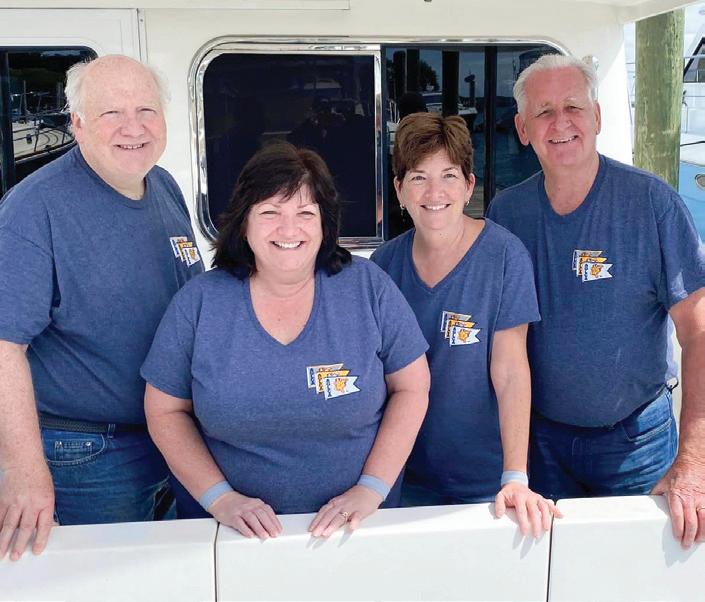
Matthew Caws ’85 (left), lead singer of the group Nada Surf, collaborated with the French-American group The Salt Collective for their 2023 album, Life. A music video for the single “Another Bus Coming” was released in January.

David Sica ’85 (left) met hockey legend Phil Esposito at the Westchester County Center in March.

On February 6, a day after his 55th birthday celebration in St. Lucia, Gordon Graham ’88 and his wife, Cat, had a vow renewal ceremony on the island.
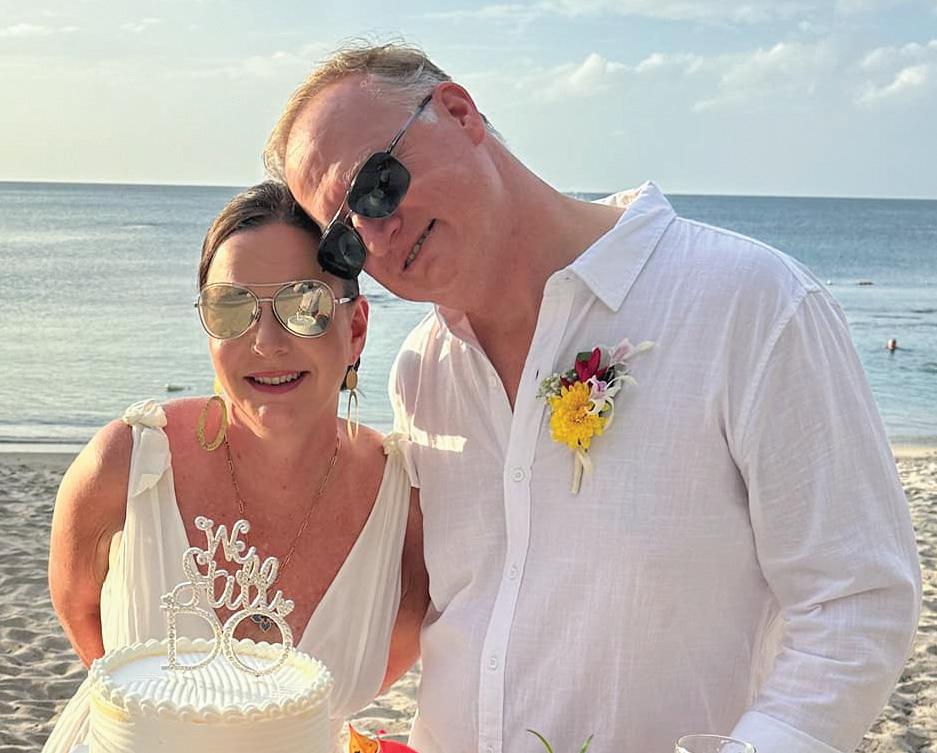
Craig Mooney ’88 began showcasing his paintings at art shows in Maine, Massachusetts, and the United Kingdom in June.
Peter Orphanos ’89 shared that his company, Orphmedia, launched a loyalty app on iOS and Android for STK Steakhouse worldwide.
Andy Sandberg ’01 served on the Awarding and Film Nominating Committees for the 2024 Chita Rivera Awards this past May. The awards recognize excellence in dance and choreography on both stage and screen.
Alex Sheridan ’04 was recently named Associate Head of School for Advancement at Lake Forest Country Day School in Illinois, where he leads enrollment, marketing, communications, development, and alumni engagement efforts.
Sam Morril ’05 performed at Madison Square Garden last November as part of the New York Comedy Festival. His The Class Act Tour continued after with performances in Florida, Massachusetts, and Australia. His most recent special, You’ve Changed, dropped on Amazon Prime this July.
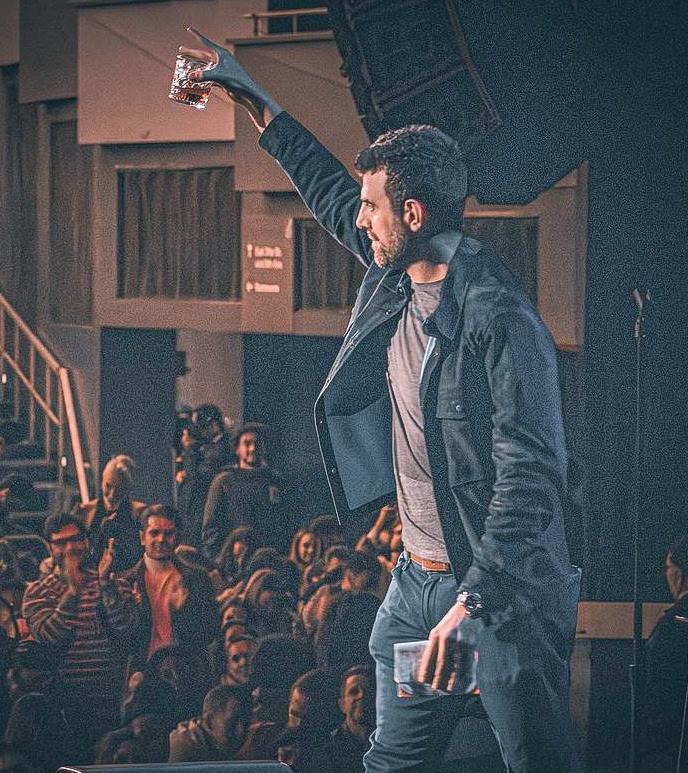
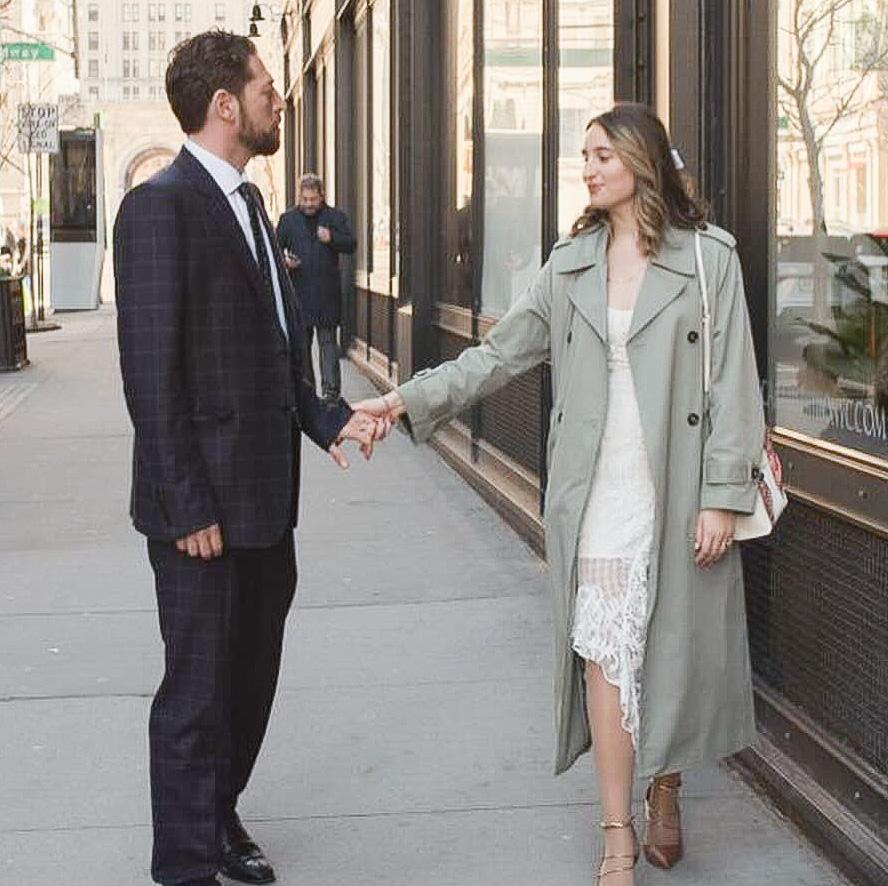
Ian Allen ’06 (left) was featured in Prep for Prep’s 2023 Annual Report for the work he and his fellow classmates have done to create Gameflo, a Black-owned indie gaming company. Their first card game, PickUp Basketball, hit Target shelves in June in over 1,700 stores.
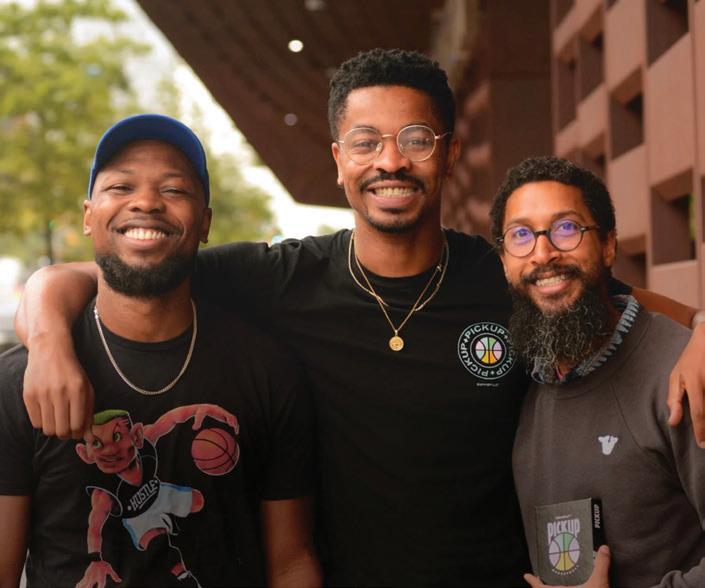
Bobby Arnot ’06 recently directed a branded documentary for WIRED & Wilderness exploring the wildlife preservation and sustainability efforts at Mombo Camp, a safari lodge in Botswana.
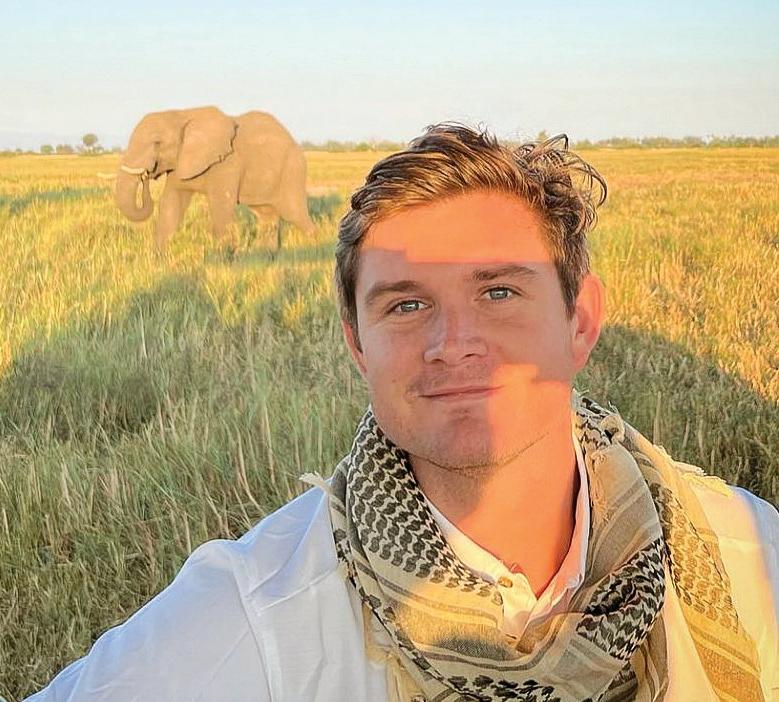
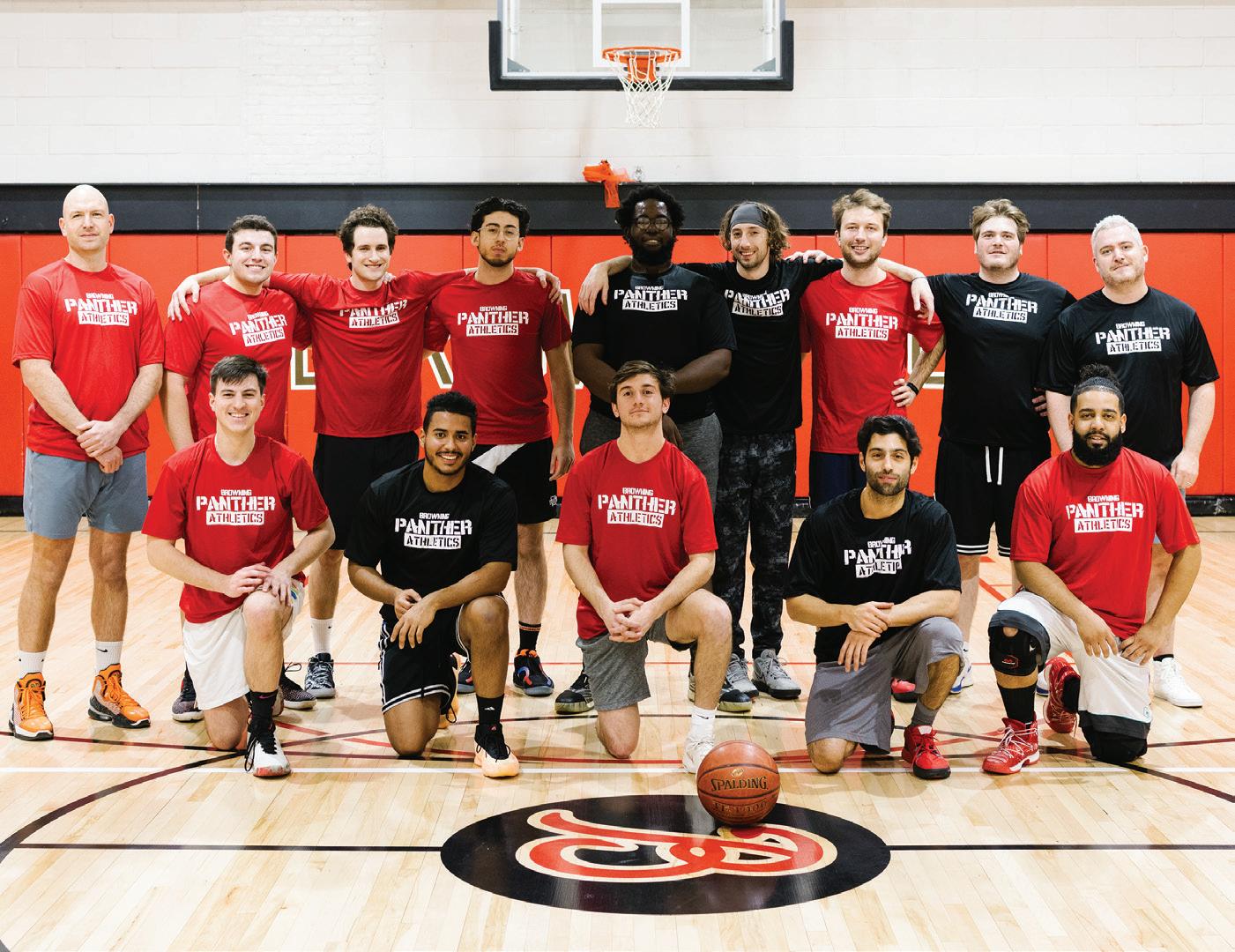
In January, both veteran and fresh players took to the court in the annual Alumni Basketball Game. The closely contested match saw the Odd Years (Black) team narrowly triumph over the Even Years (Red) team with a final score of 81-74.
Owen Canavan ’06 shared that he married Meghan Hibey in Nashville, TN, last May. He has expanded his real estate career by brokering car wash deals nationwide. Additionally, Owen is now volunteering with the Trauma Survivors Network at Vanderbilt Medical, where he leads the Trauma Peer Program, continuing his support for their important work.

Nate Garcia ’06, a Pfizer scientist pivotal in developing the COVID-19 vaccine, shared his journey and insights with Middle and Upper School students this winter. He covered antibody quantifying immunoassays with Grade 9, emphasized life beyond Browning and the significance of diverse teams and social skills with Grade 11 and 12 boys, and offered Grade 7 a hands-on pharmaceutical drug discovery experience. Nate currently also serves as a Browning Trustee and Panther Mentor.
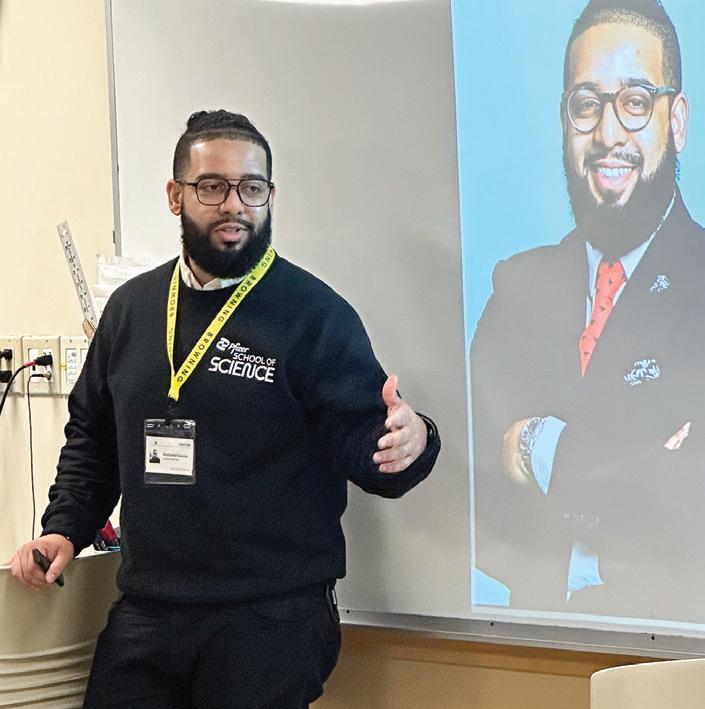
Matt Marciak ’06 and his wife, Liz, welcomed son Filip John Marciak, their second child, on November 15, 2023.
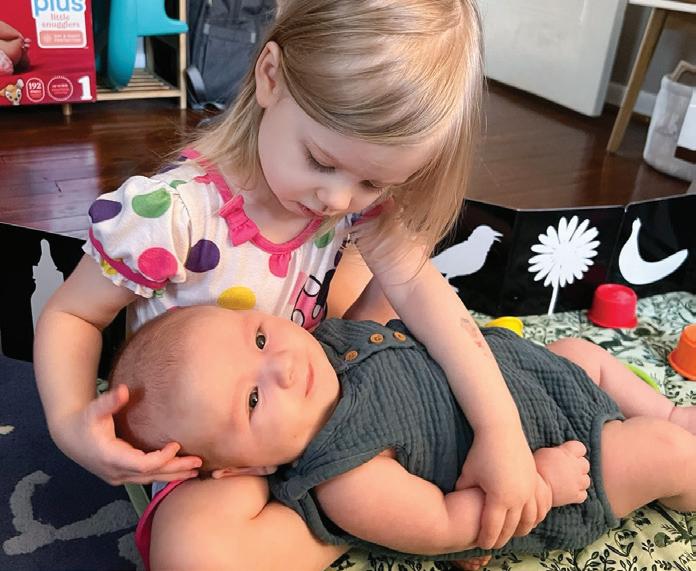
Mike Serman ’06 recently won Podbean’s Podcast Trailer contest for his work on the Blink of An Eye podcast. Mike is a season audio specialist and producer with over 14 years of experience working in entertainment.
Michael Wilner ’07 was promoted to Chief Washington Correspondent for McClatchy, a leader and award-winner in local news.
Barry Cregan ’09 (second from left) married his wife, Kate, on New Year’s Eve! Also in attendance were fellow Browning alumni (from left to right) Johnuel Nuez ’09, H. Harrison Fields ‘11, and Michael Glasser ’08
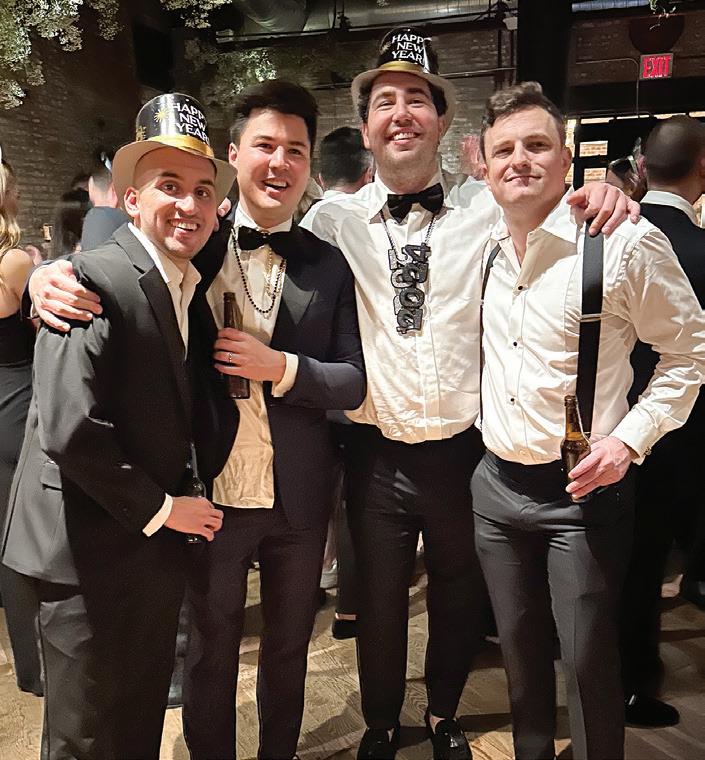
In December 2023, Fernando Hierro ’19, professionally known as Fernando José, unveiled Dreams, a short film he characterizes as “a journey of self-discovery.”
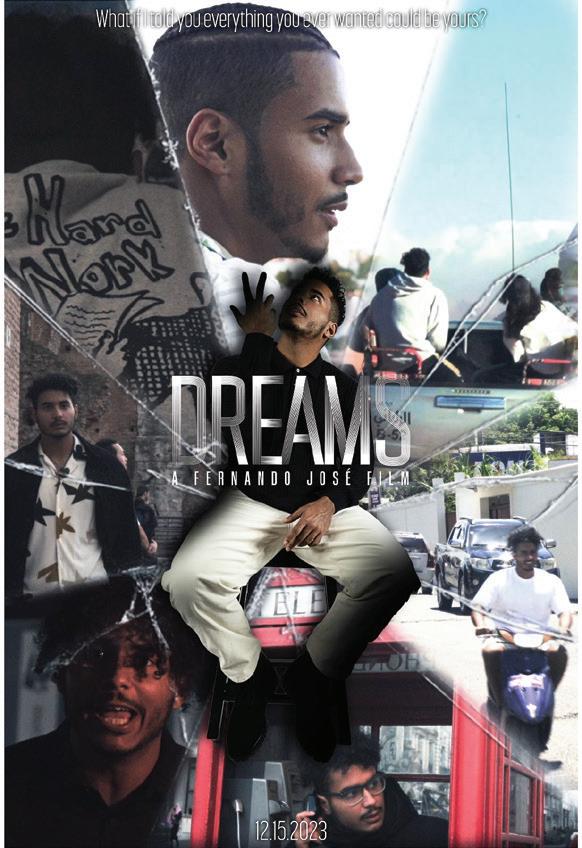
Nantucket Crisps, co-founded by Hayden Arnot ’12 (right), recently held its third Whale Aid Benefit concert in Burlington, VT, to benefit the Whale and Dolphin Conservation.
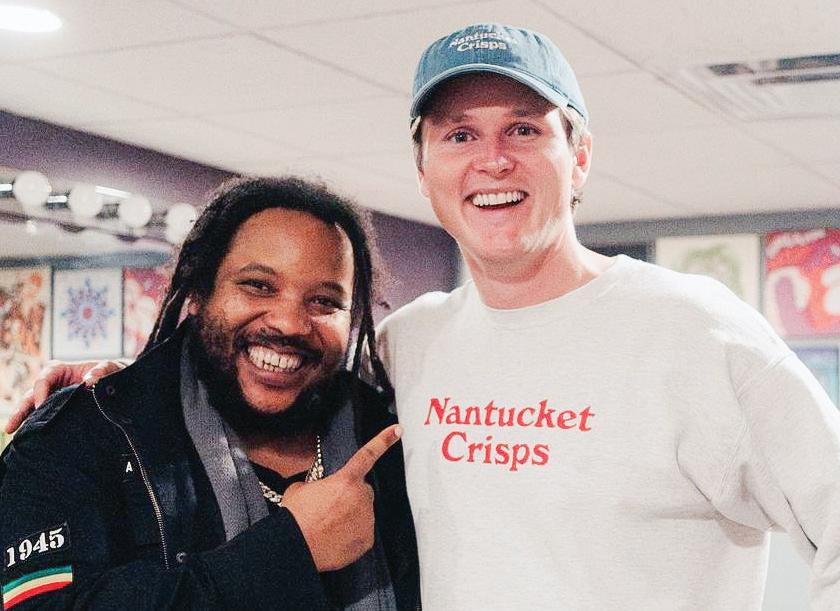
Fernando Cohate ’21 earned a varsity letter from Lehigh University last spring for his academic and athletic performance in soccer. He credits Browning for fostering his love for soccer and is grateful for the opportunities it provided.
Myles Mills ’11, who raps under the stage name Skizzy Mars, embarked on a crosscountry tour in the spring, which culminated in a June performance at the 2024 Governors Ball Music Festival in Queens.
Email John Morin, Director of Alumni Affairs and Special Events, at jmorin@browning.edu and view upcoming events at browning.edu/alumni
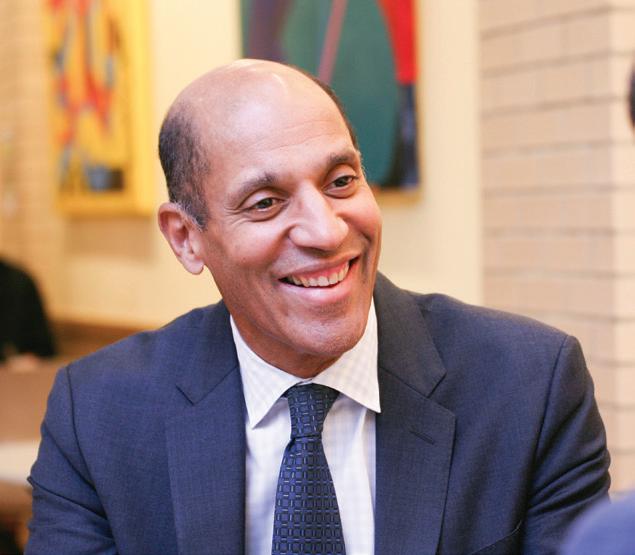
Former Head of Upper School
Remembered by Laurie Gruhn, former Assistant Head of School / Head of Lower School
When I think of Jim, I think of a smile coupled with a tip of his hat at the end of each day. Even in February, the man never wore a coat.
His optimism, style, and unwavering belief in the future linger in my thoughts. He was unrelenting in his faith in his students, seeing the best in each young person, insisting that they accept a role in their own learning and education. His generosity of spirit extended to families who relied on him, colleagues who valued him, and students who trusted him. His commitment to equity and inclusion was absolute. It mattered to Jim that anyone who walked the halls of Browning knew that they were seen and valued.
Jim embodied humility, vulnerability, and quiet strength, and extended grace and dignity to all he encountered. His is an example I’ll forever hold dear.
IN MEMORIAM
Enrique Bonfils-Roberts ’83
Donald “Win” Brown ’98
Georgia Grimbilas P ’80, GP ’18
Charles Day Halsey, Jr. ’46
Henry Reed ’73
Lila Prounis P ’79, GP ’18 ’21
As of June 2024, Building Our Future: A Comprehensive Campaign to Advance Browning’s Mission has raised $26 million, 52% of the $50 million goal. We are grateful to our many donors who have supported the Campaign so far, both through gifts to the Annual Fund and multiyear pledges to the three additional priorities: Facilities, Financial Aid, and Programs and People. We look forward to involving more Browning community members to fulfill our goal and fund as many key initiatives as we can. We are delighted to highlight the following donors and their specific Campaign commitments:
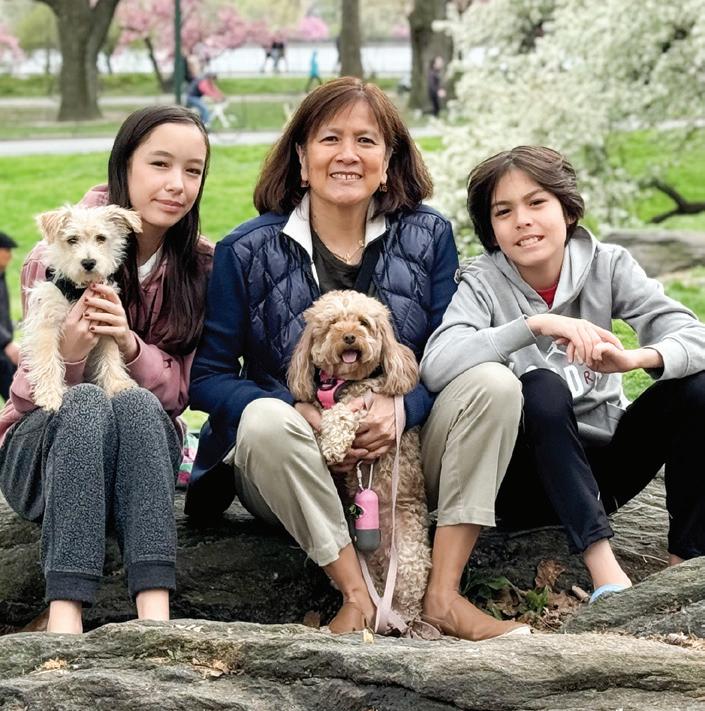
HAYLEY BROADBENT P ’29
Hayley has been a member of the community since 2016, when her son, Sebastian, enrolled in Kindergarten. She made a multiyear gift to the Campaign in support of both the Annual Fund and Facilities. Hayley is looking forward to choosing a space at either the 62nd Street or 64th Street building to name in honor of her late husband, Peg Broadbent: “I am so glad to be able to help Browning in this way and can’t wait for Sebastian to attend Upper School in the new building.” Sebastian will be in Grade 8 in the fall; his twin sister, Grace, attends the Marymount School. Hayley is a stalwart ambassador for Browning: she joined the Board of Trustees in July 2022 and serves on the Annual Fund Committee.
Campaign Leadership Donors to Date 0 5 10 15 20 25 5 4 13 18 21

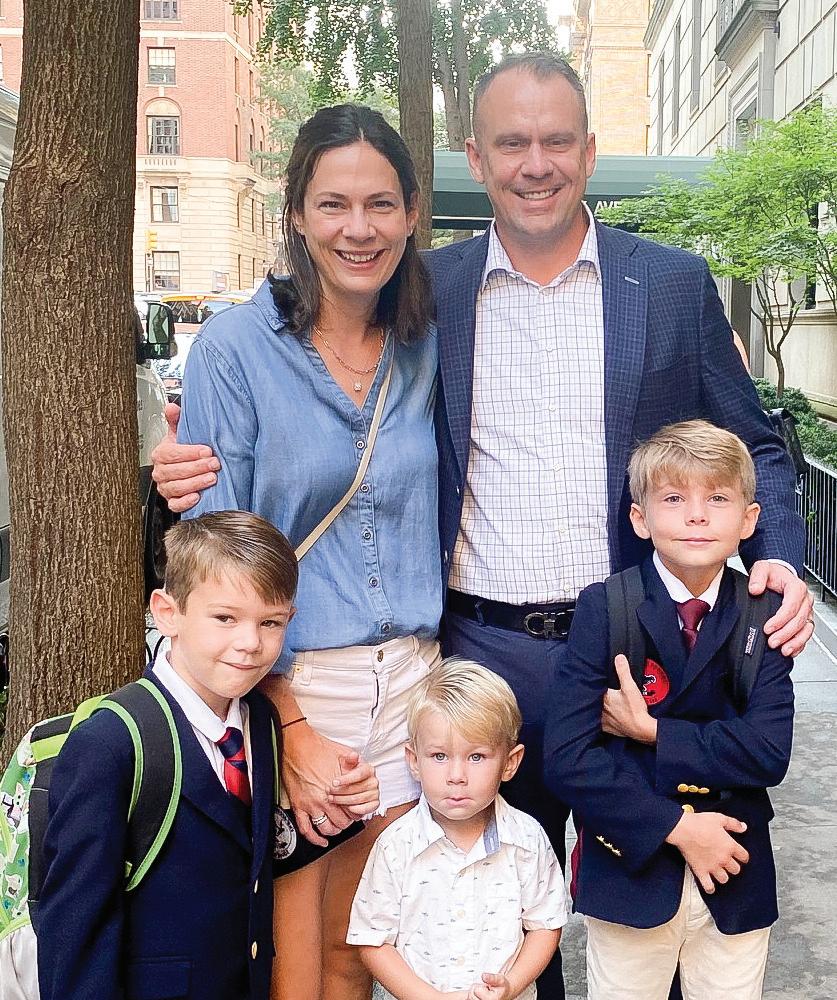
Hadley and Chris have chosen to support the Building Our Future Campaign with a multiyear commitment to the Annual Fund and to name the Seminar Room within the Learning Center at the new Upper School. Proud parents of William and James, who will be in Grades 3 and 2 respectively this fall, as well as their three-year-old son, Alexander, Hadley and Chris are excited about the new facility and what it means for Browning:
“We liked the idea of naming a space where Browning boys can gather to not only learn, but also to connect with each other and their teachers.” Hadley has served as a Class Representative for James’ class and on the Annual Fund Committee since September 2022. Chris joined the Board of Trustees in July 2024.
To learn more about the Building Our Future Campaign and to get involved, contact Francesca Ryan, Senior Director of Major Gifts, at 646-844-2605 or fryan@browning.edu.
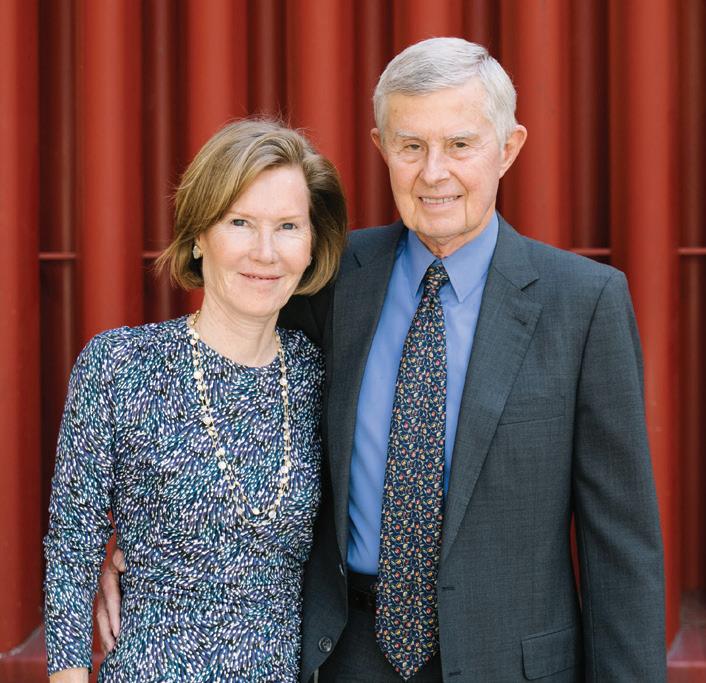
Elizabeth and Richard are delighted to establish The Miller Family Endowment to fund school-wide learning support initiatives at the Learning Center at the new Upper School. “Browning’s Learning Support specialists and services had such a positive impact on our son, Nathaniel, when he was a student here and as he continues his studies at Dartmouth, where he is a rising junior. We are thrilled to help ensure that current and future Browning boys receive the support they need to reach their academic potential.” Elizabeth and Richard have been leadership Annual Fund donors since 2016 and Building Our Future Campaign Co-Chairs since 2022. In addition, Elizabeth sits on the Campaign Executive Committee, served on the Board of Trustees from July 2018 through June 2024, and chaired the Advancement Committee during much of that time. Their daughter, Lia, graduated from St. Andrew’s School in 2023 and is a rising sophomore at Amherst College.
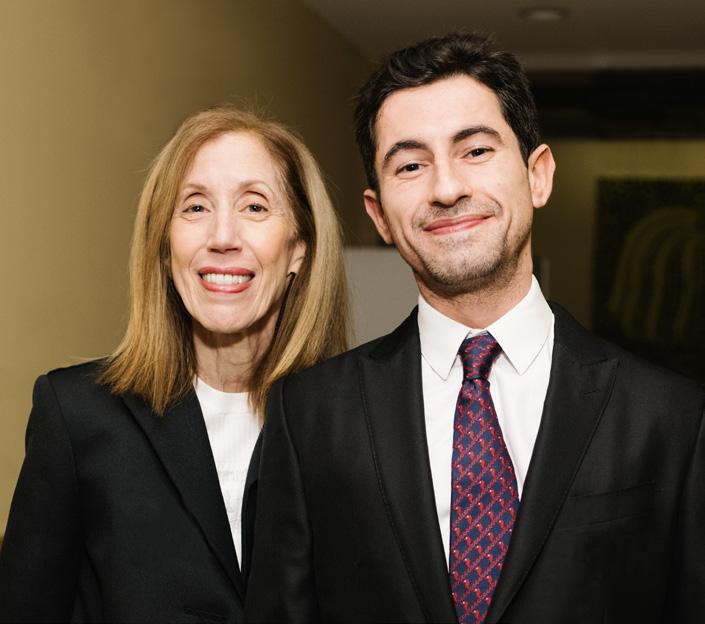
Phyllis and her son, Stevie, are thrilled to be naming a Kindergarten classroom at the 62nd Street schoolhouse as part of their multiyear commitment to the Building Our Future Campaign: “Education is a particularly important cause we both stand behind. We are excited to be a part of this extraordinary chapter for Browning and its legacy.” Phyllis and Stevie have been engaged and supportive members of the community since Stevie enrolled at the school as a ninth grader. They both serve as Campaign Co-Chairs and have hosted several Campaign cultivation events for alumni and parents. In addition, Stevie assumed the presidency of the Alumni Council this July.
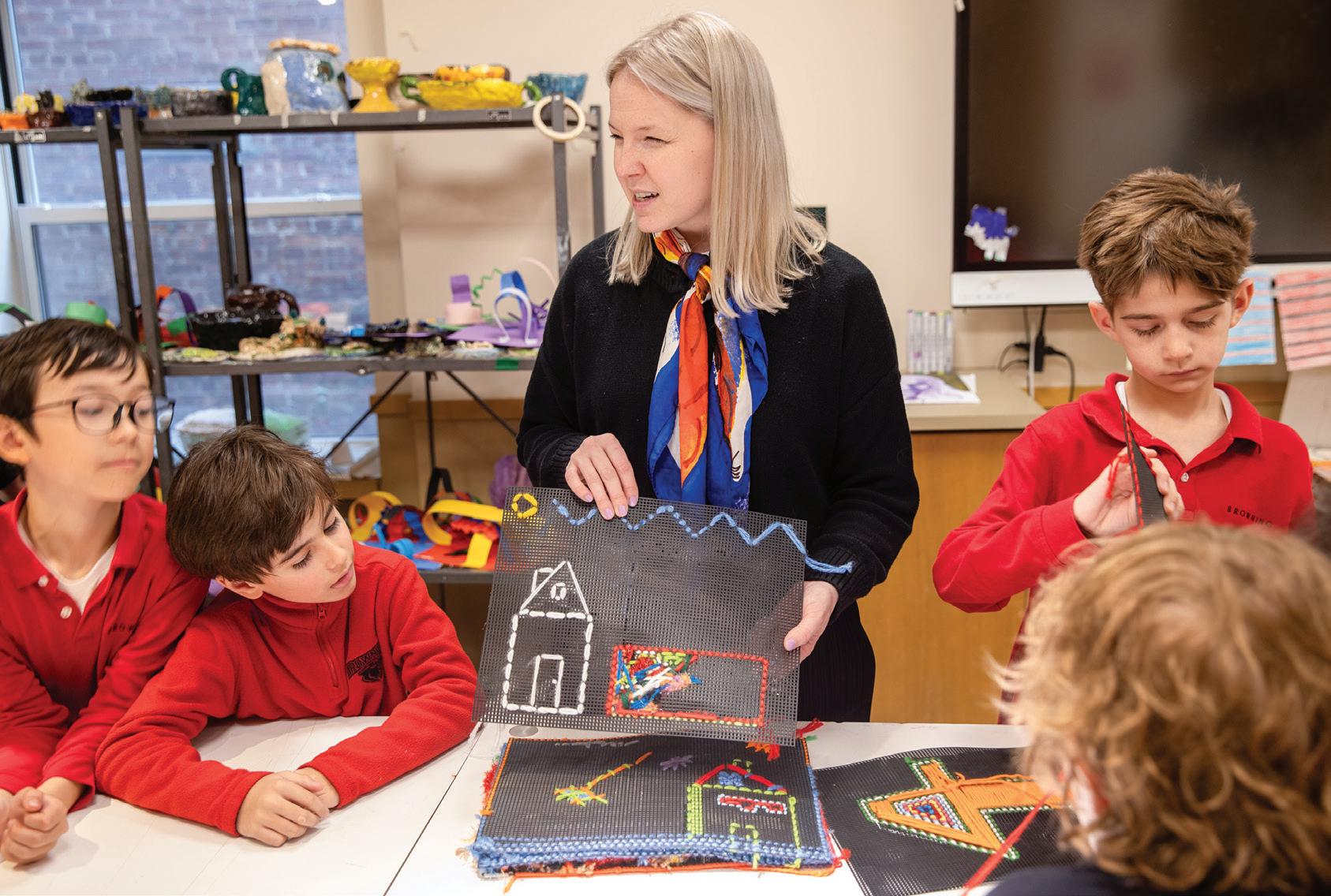
This year marks the start of Browning’s arts program integrating textile projects as a significant component of the curriculum across divisions. In Grade 1, boys are introduced to Kente cloth and paper weaving. Progressing to cardboard looms in Grade 2, they weave fabric in Grade 3 and create autobiographical embroideries inspired by artists, which are completed by Grade 4. In Grade 12, the seniors design embroidery that corresponds with text they’re studying in English class.



“As a boys’ school, the students benefit from an extra layer of learning throughout their textile projects,” art teacher Kate Bancroft says, “With this art form that has been historically considered feminine, the boys can experience firsthand how gender stereotypes limit opportunities for everyone and can therefore reject them, realizing that art is for everyone regardless of societal expectations. Textile arts not only hold cultural significance but also offer mental health benefits, enhancing self-esteem, happiness, emotional regulation, and stress relief.”
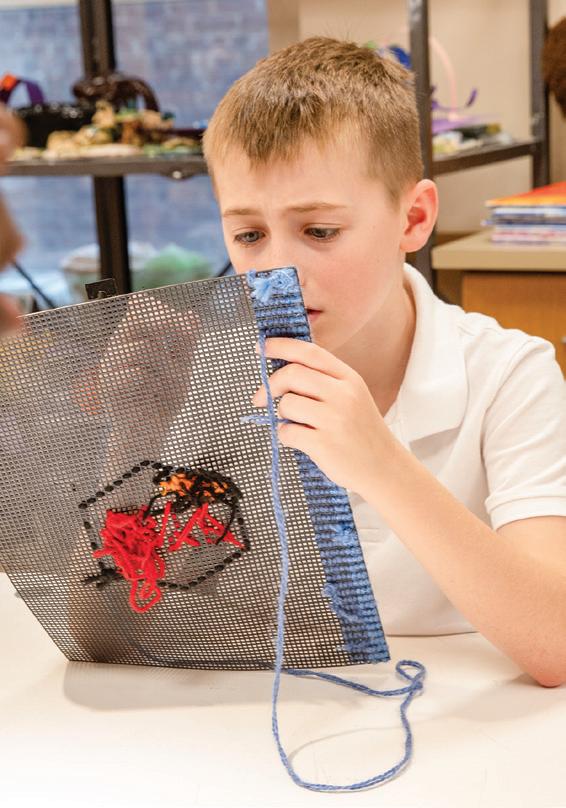
Grade 4 boys explore global cultures and artists’ lives through storytelling embroideries and artwork analysis. They create autobiographical embroideries, mastering basic stitches like the running stitch before advancing to techniques such as the chain stitch and french knots.
The continued generosity from Browning parents, alumni, faculty, grandparents, and friends is inspiring. Your support affirms Browning’s mission and endorses our school’s values: honesty, curiosity, dignity, and purpose.
Thank
you for
being a team player and investing in our school!
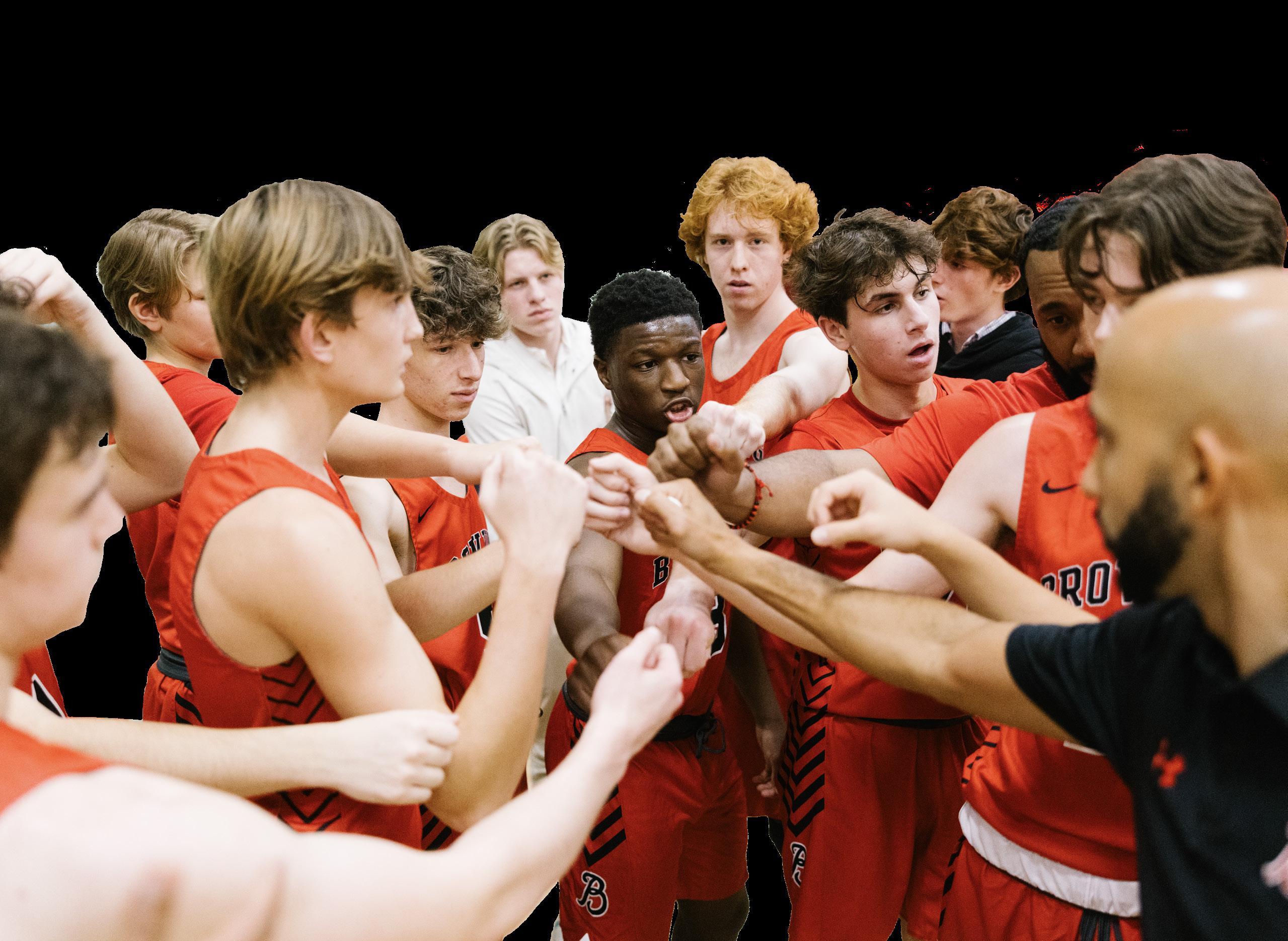
TO UPDATE YOUR ADDRESS
Please email Krizia Moreno-Cruz at kmoreno-cruz@browning.edu.
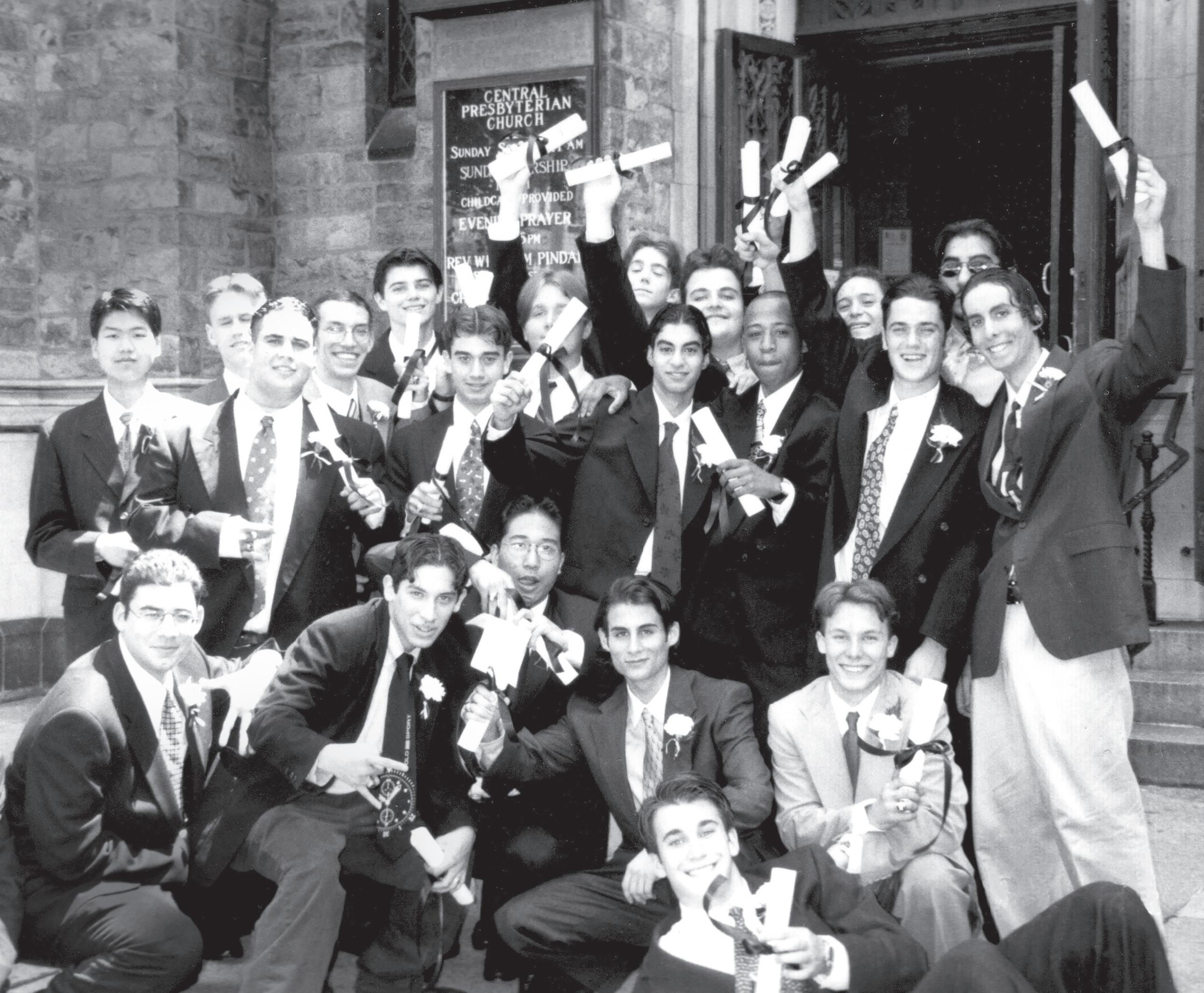
The Class of 1997 at their graduation. Browning is dedicated to cultivating students who embody empathy, forge meaningful connections, and prioritize service to others. Learn more on page 6.